
















As North America’s most diversified steel and steel products company, Nucor is committed to delivering quality, on-time reliability, and sustainability to the renewable energy market. Our Energy Solutions team is your partner in optimizing the design and installation of your next solar and wind projects.

Let’s work together to make your next project a success.

Following solar policy is like scheduling a flight right now — with the shortage of airline workers, extreme weather and other factors, you don't want to get your hopes up that you’ll arrive on time, and if you actually do, you're ecstatic. The odds are high that there will be cancelations and rescheduling along the way.
Such was the case with the solar priorities that SEIA and other industry advocates have been aiming for ever since President Joe Biden took office in 2021. Solar incentives began popping up in new legislation and federal policy platforms, starting with a standalone storage tax credit and 10-year ITC extension in March 2021, followed by a solar production tax credit in September 2021. Then in the Fall, to the industry's delight, the Build Back Better Act was introduced, containing most of those priorities and solar manufacturing tax credits.
That didn't end well. But even after Sen. Joe Manchin made it clear he wouldn't support the bill in December 2021, the solar industry remained positive about getting these priorities to the White House. SEIA’s president and CEO Abigail Ross Hopper said after the Manchin statement that the organization still believed strongly that members of Congress would continue to press ahead.
And press they did — both the solar industry and members of Congress kept working behind the scenes to include solar legislation in budget reconciliation. After yet another hiccup in July 2022, with Manchin again saying he couldn't support reconciliation legislation in its current form, he and Sen. Chuck Schumer shocked the country by announcing a surprise deal two weeks later that included almost every single solar policy request from the industry.
Now, these federal solar incentives are law. They include a 10-year ITC extension, standalone storage ITC, domestic manufacturing incentives and many more provisions that are expected to transform the industry. Solar installers and developers will greatly benefit from long-term certainty and a path to more
American-made, non-tariffed solar products; and American homeowners, nonprofit organizations, tribes and more will benefit from tax credits that make going solar more affordable for more people. Read my story on everything the law does for the solar + storage industry on page 26, and follow Solar Power World over the coming months as we dive even deeper into each element that will impact your solar business. Although it was unpleasant to spend hours researching the fine print of bills only to see them languish over the past year and a half, it's all the more gratifying when the legislation finally reaches the president's desk. In the end, it was well worth it to book that flight. SPW
Kelsey Misbrener Managing Editor kmisbrener@wtwhmedia.com
























































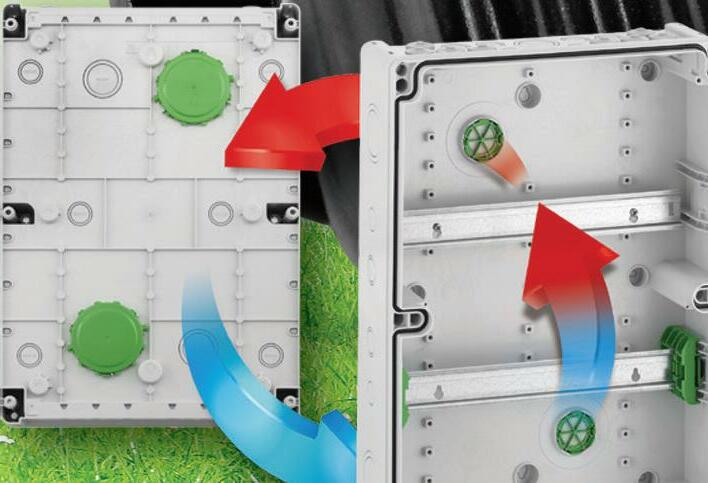



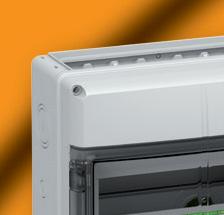












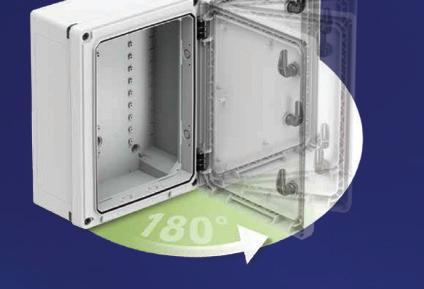

















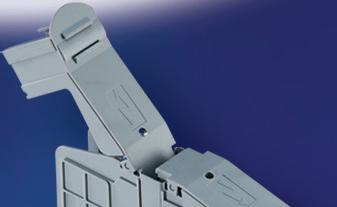














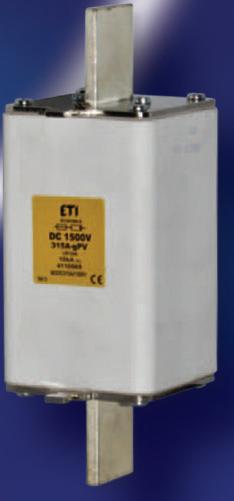









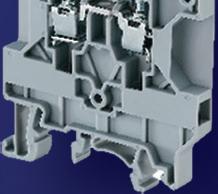









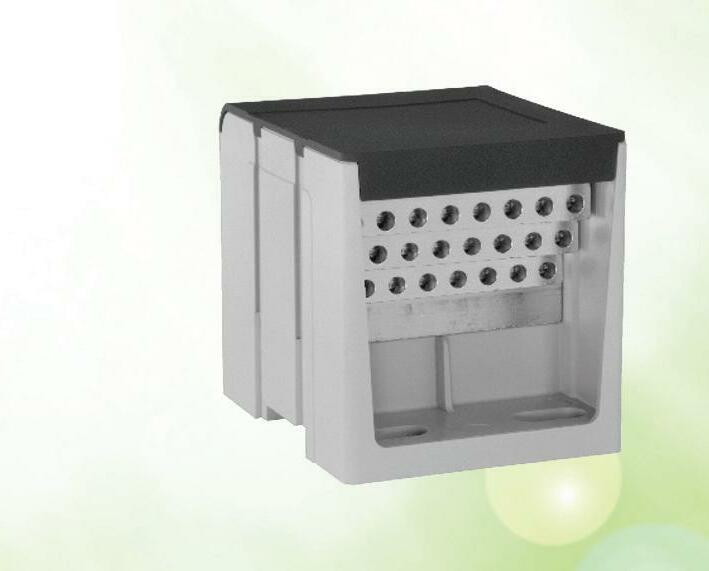













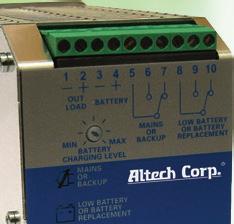


























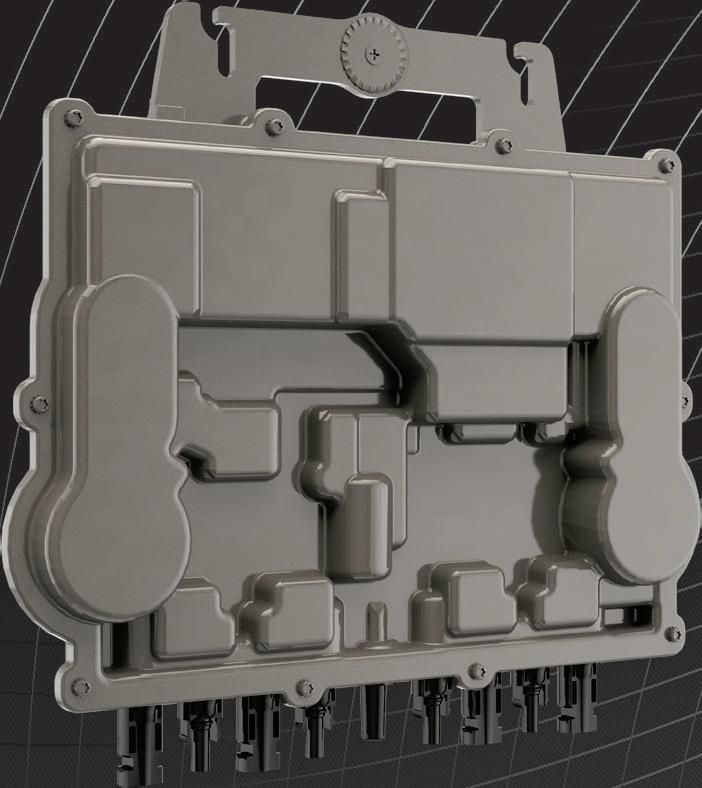
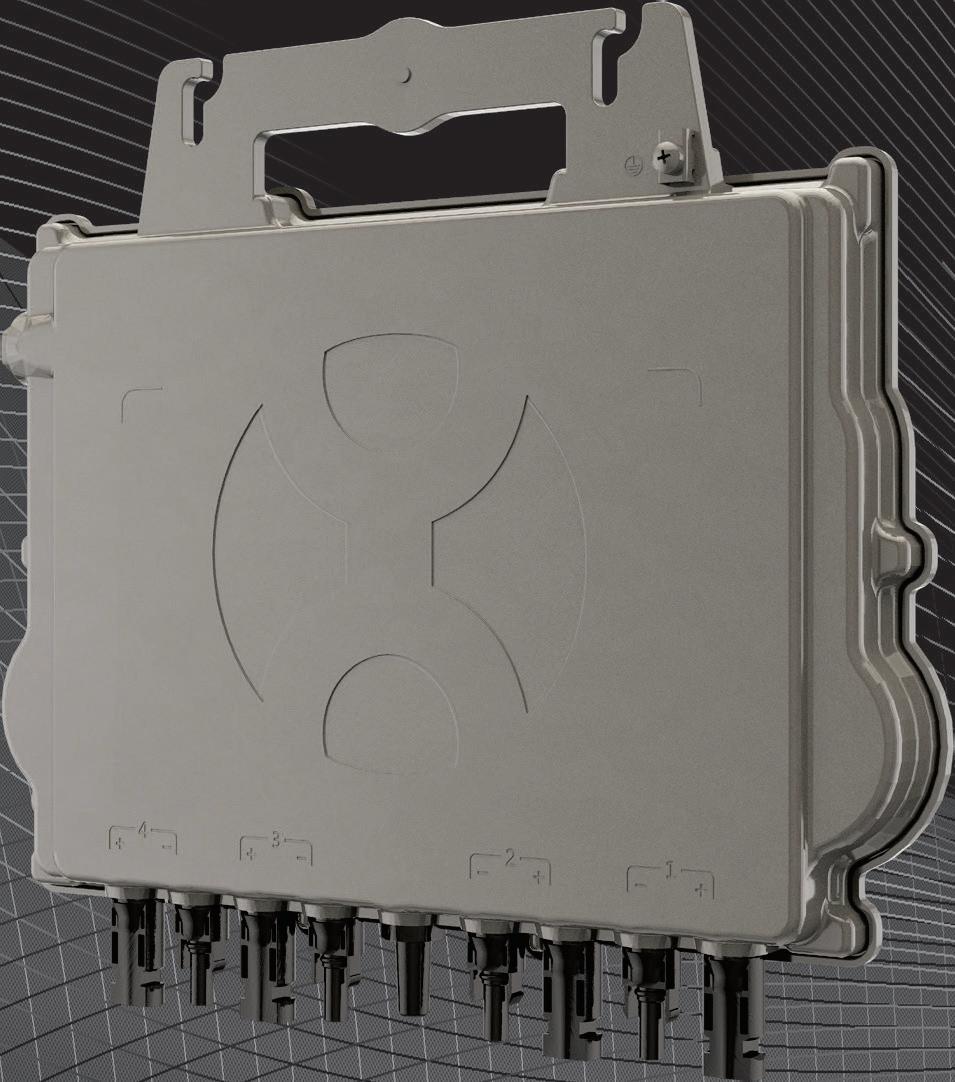








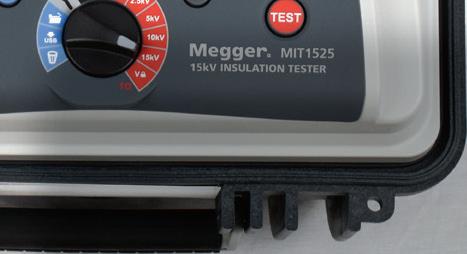
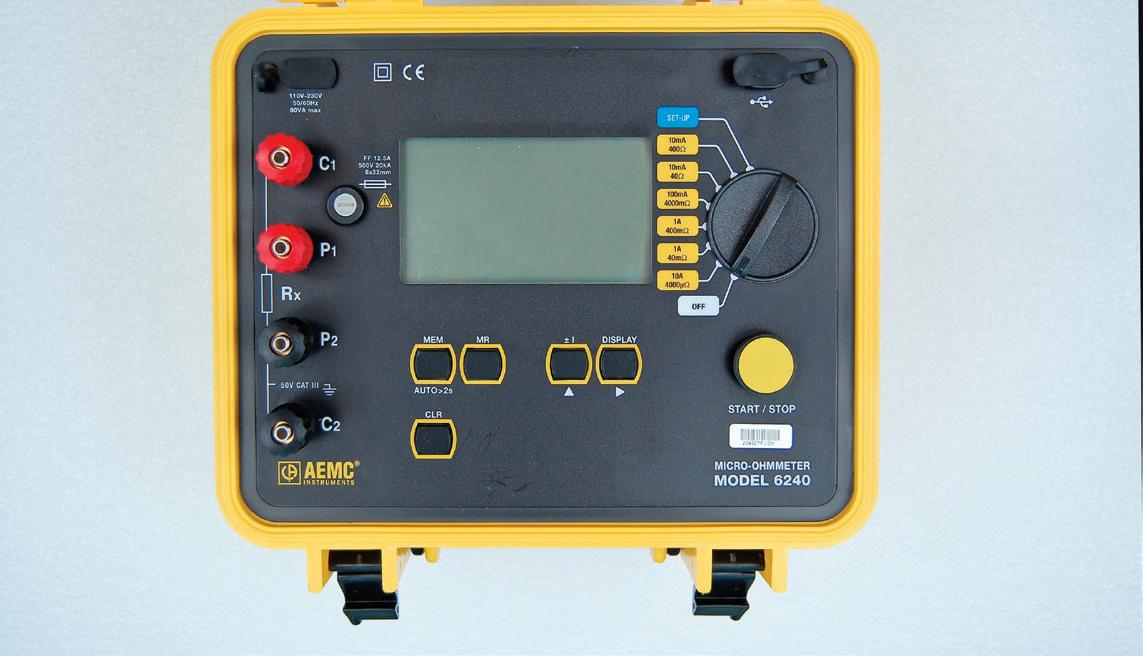



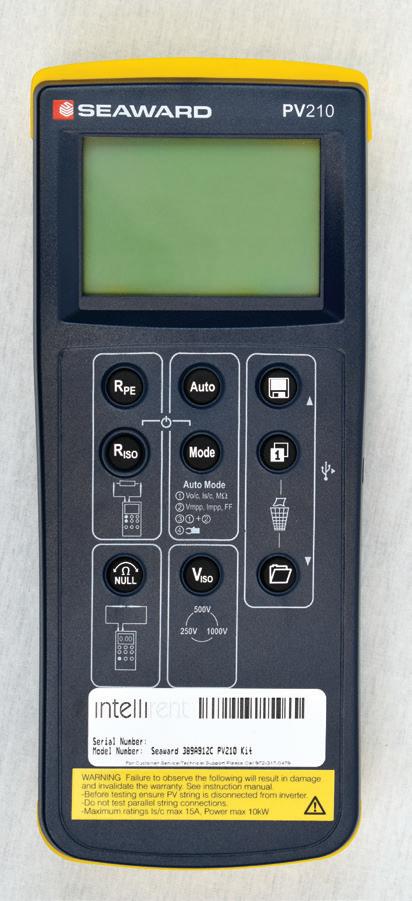




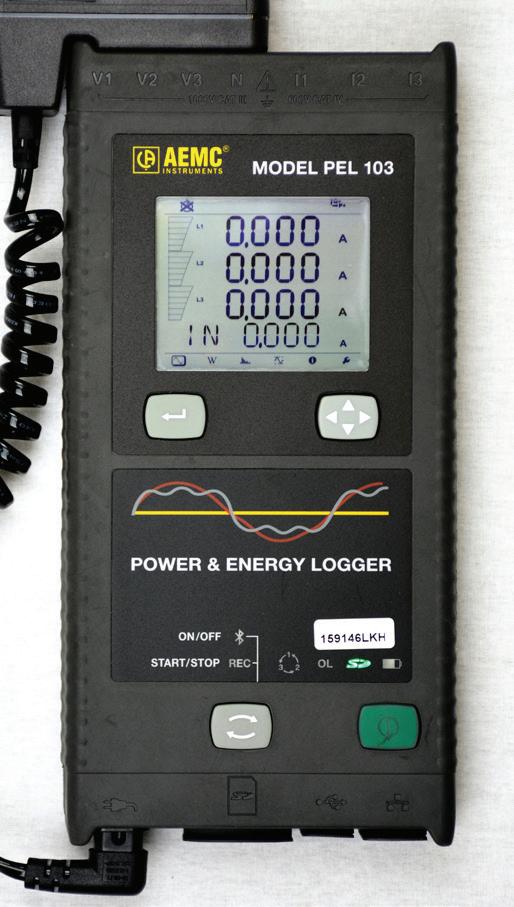
PUBLISHER Courtney Nagle cseel@wtwhmedia.com 440.523.1685
EDITORIAL
Editor in Chief Kelly Pickerel kpickerel@wtwhmedia.com @SolarKellyP
Managing Editor Kelsey Misbrener kmisbrener@wtwhmedia.com @SolarKelseyM
Associate Editor Billy Ludt bludt@wtwhmedia.com @SolarBillyL
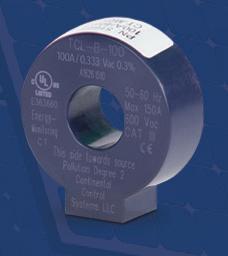


VP of Creative Services Mark Rook mrook@wtwhmedia.com
Art Director Matthew Claney mclaney@wtwhmedia.com
Senior Graphic Designer Allison Washko awashko@wtwhmedia.com
Graphic Designer Mariel Evans mevans@wtwhmedia.com
Director, Audience Development Bruce Sprague bsprague@wtwhmedia.com
MARKETING (CONT.)
Digital Production/ Marketing Designer Samantha King sking@wtwhmedia.com
Marketing Graphic Designer Hannah Bragg hbragg@wtwhmedia.com
Webinar Coordinator Halle Sibly hkirsh@wtwhmedia.com
Webinar Coordinator Kim Dorsey kdorsey@wtwhmedia.com
Web Development Manager B. David Miyares dmiyares@wtwhmedia.com
Digital Media Manager Patrick Curran pcurran@wtwhmedia.com
Digital Production Manager Reggie Hall rhall@wtwhmedia.com
Front End Developer Melissa Annand mannand@wtwhmedia.com


Digital Production Specialist Nicole Lender nlender@wtwhmedia.com
Digital Production Specialist Elise Ondak eondak@wtwhmedia.com
IN-PERSON EVENTS
Customer Service Manager Stephanie Hulett shulett@wtwhmedia.com
Customer Service Representative JoAnn Martin jmartin@wtwhmedia.com
Customer Service Representative Tracy Powers tpowers@wtwhmedia.com
Customer Service Representative Renee Massey-Linston renee@wtwhmedia.com
Customer Service Representative Trinidy Longgood tlonggood@wtwhmedia.com


Controller Brian Korsberg bkorsberg@wtwhmedia.com
Accounts Receivable Specialist Jamila Milton jmilton@wtwhmedia.com
Videographer Manager Bradley Voyten bvoyten@wtwhmedia.com
Videographer Garrett McCafferty gmcca erty@wtwhmedia.com
Videographer Kara Singleton ksingleton@wtwhmedia.com MARKETING
VP of Digital Marketing Virginia Goulding vgoulding@wtwhmedia.com
Digital Marketing Manager Taylor Meade tmeade@wtwhmedia.com
Digital Marketing Coordinator Emily Gillespie egillespie@wtwhmedia.com

Events Manager Jennifer Kolasky jkolasky@wtwhmedia.com
Event Marketing Specialist Olivia Zemanek ozemanek@wtwhmedia.com
WTWH Media, LLC : 1111 Superior Avenue, Suite 2600, Cleveland, OH 44114 Ph: 888.543.2447 | Fax: 888.543.2447
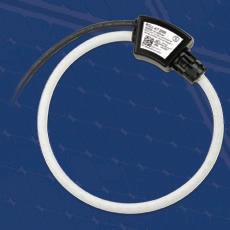



SOLAR
SOLAR
by-lined articles express the views of the author and not necessarily of the publisher or publication. Every e ort is made to provide accurate information. However, the publisher assumes no responsibility for accuracy of submitted advertising and editorial information. Non-commissioned articles and news releases cannot be acknowledged. Unsolicited materials cannot be returned nor will this organization assume responsibility for their care.
SOLAR POWER WORLD does not endorse any products, programs, or services of advertisers or editorial contributors. Copyright©2022 by WTWH Media, LLC. No part of this publication may be reproduced in any form or by any means, electronic or mechanical, or by recording, or by any information storage or retrieval systems, without written permission from the publisher.
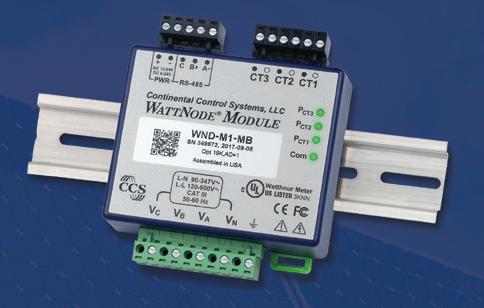
SUBSCRIPTION RATES: Free and controlled circulation to qualified subscribers. Non-qualified persons may subscribe at the following rates: U.S. and possessions, 1 year: $125; 2 years: $200; 3 years $275; Canadian and foreign, 1 year: $195; only U.S. funds are accepted. Single copies $15. Subscriptions are prepaid by check or money orders only.

SUBSCRIBER SERVICES: To order a subscription or change your address, please visit our web site at www. solarpowerworldonline.com





SOLAR
POSTMASTER: Send address changes to Solar Power World; 1111 Superior Avenue, 26th Floor, Cleveland, Ohio 44114.



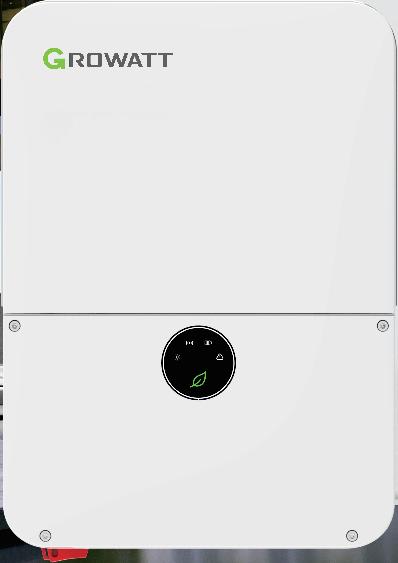




After more than a year of stops and starts, landmark legislation for the solar + storage industry has become law in the form of the Inflation Reduction Act. All solar sectors will see new or expanded tax incentives.

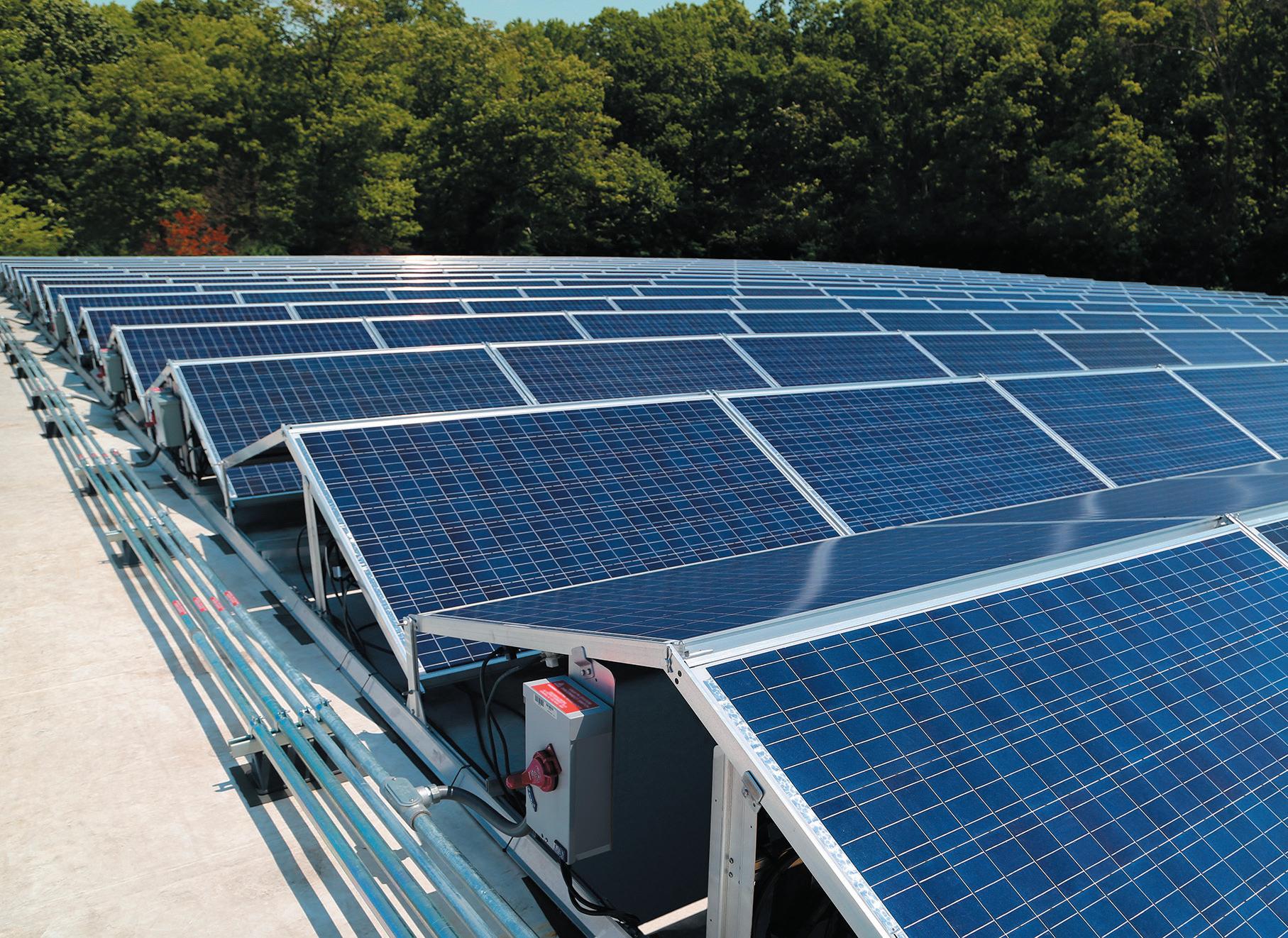



The patented M18KD gearless, dual-axis tracker from Mechatron Solar is the highest-yield solution in the industry. With the smallest land use footprint, it's the uniquely winning design solution for C&I and utilityscale installations.

Benefits include:
40% higher yield than fixed tilt installs with the same number and type of panels
20% higher yield than single axis installs with the same number and type of panels
15%+ yield boost from bifacial panels, depending on substrate
Supports up to 40 KW of solar, compatible with all PV module types
Sustains up to 135 mph winds due to elliptical tube design and double-band brake system
High survivability due to self-slippage under extreme wind conditions
Operating temperature range -20°C (-68°F) to +70°C (158°F)
Quick and easy installation with patented zero-backlash gearless drive mechanism
Rural-to-urban applications with 360° range of motion and 0-60° degree elevation
Reliable 99.6% up-time, measured for over a decade across thousands of installs
Typical payback time is 3 years or less with the lowest LCOE in the industry
Bankability Report by Black and Veatch & Certified to UL 3703 Tracker Standard
See detailed specs at www.mechatron-solar.com or scan the QR Code



































With a new law in place, Massachusetts solar installers can now sell larger residential projects that still qualify for net metering.
New CPUC proposed decision on NEM 3.0 expected by September 29
Sacramento, California


After many months of solar industry protests, the California Solar & Storage Association is expecting the CPUC to release its proposed decision on net metering in the state on or before September 29. The CPUC issued an initial proposed decision in December 2021 that would have added new grid-use charges and shifted to a net billing structure.

Boston, Massachusetts

Gov. Charlie Baker signed climate legislation in Massachusetts that included significant investments in solar power. Most notably, the law doubles the size of residential solar projects eligible for net metering to 25 kW and establishes incentives for pollinator-friendly commercial-scale projects.

Consumers Energy adjusts community solar rules to expand access
Jackson, Michigan
Michigan utility Consumers Energy reached a settlement with stakeholders to expand opportunities for residential and business customers to purchase renewable energy. The new provisions include an “anchor tenant” option that allows a central tenant, like a school or business, to host community solar projects.
Biden signs Inflation Reduction Act with many solar and storage provisions
Xcel Energy can now cap the amount of clean energy on sections of grid
St. Paul, Minnesota
The Minnesota Public Utilities Commission approved changes to the state’s interconnection rules allowing Xcel Energy to cap the amount of clean energy installed on a section of the grid. The Interstate Renewable Energy Council found this change increased the number of sections of the grid closed to new renewables by 4%.
Mississippi raises solar netmetering cap and creates new rebate program
Missouri strikes down property tax exemption for certain solar systems
Jefferson City, Missouri
Missouri’s Supreme Court struck down a 2013 state law exempting large solar projects from property taxes, according to the Associated Press. The court said the tax break was not allowed under the state’s constitution, so now some solar project owners could owe back taxes.
Biden Administration announces new grant funding for solar job training, manufacturing
Jackson, Mississippi Washington, D.C. Washington, D.C.
President Joe Biden signed the Inflation Reduction Act after climate provisions were revived by Senators Chuck Schumer and Joe Manchin. The bill includes a long-term extension of the solar ITC, standalone storage credits, direct pay for nonprofit entities, solar manufacturing tax credits and much more.
Illinois Commerce Commission approves detailed roadmap to reach 40% renewables by 2030
Springfield, Illinois
The Illinois Commerce Commission approved a long-term plan that outlines the steps the state must take to reach 40% renewables by 2030. This includes a roadmap for how the state will expand the Illinois Solar for All low-income program using a dedicated $70 million now available each year.
The Mississippi Public Service Commission recently raised the state’s net-metering participation cap and added a $3,500 state rebate for homes and small businesses that go solar. The commission also announced higher rebate payments to households earning up to 250% of the federal poverty level.
New Mexico’s hard-fought community solar legislation now in jeopardy
Santa Fe, New Mexico
After a yearlong, stakeholder-involved process establishing community solar rules in New Mexico based on 2021 legislation, the Southwestern Public Service Company filed a motion that could potentially stall the program for years. Advocates are asking for the Supreme Court to dismiss the case and move forward with the program.
The Biden Administration announced a slate of new initiatives and $56 million in new funding to spur innovation in solar manufacturing and recycling. The administration separately announced a $10 million investment in expanding community solar access and solar job training opportunities in underserved communities.
Georgia Public Service Commission approves 200 MW of new solar projects
Atlanta, Georgia
Georgia’s Public Service Commission voted to expand solar arrays throughout the state by 200 MW and increase energy storage deployment. The commission also voted to establish a DG Working Group — with five out of 20 seats going to solar developers — to work toward the goal of streamlining solar project approval.
It’s common for technologies to leave the solar market. The industry is constantly growing and changing, and not every manufacturer survives.
What’s uncommon is for a solar technology that’s been dormant for half a decade to resurface under a new name.
In 2017, solar racking and module manufacturer tenKsolar shuttered. Today, its technologies are available again from a new company called Global RAIS.
Greg Cox, co-founder and president of Global RAIS, and his business partner Todd Broome are responsible for reviving tenK’s proprietary interconnected-cell solar modules and kit-based racking. Cox is an environmentalist and former solar contractor who used the “dual-tilt” systems in the past, installing several projects using tenK technology on buildings belonging to Broome.
tenK was founded in 2008 and shuttered nine years later. The manufacturer was known for its prepackaged “wavelets” primarily installed in the commercial market. Solar panels, racking and microinverters were sold together as kits.

Many tenK systems began failing after deployment due to a microinverter manufacturing issue that caused water damage. One report said that in 2015, 100 installations in Minnesota alone were malfunctioning.
tenK was addressing the microinverter failures when it went out of business in 2017 for an unrelated issue. Global RAIS plans to help previous tenK customers replace faulty inverters with its current, compatible microinverters.
As tenKsolar was closing its doors, Cox was in the middle of several projects, so he acquired some of the company's remaining product inventory.
"I was curious as to what was going to happen with the technology," Cox said. "It was a really good technology, and I was sad to see it go away."
So, he and Broome formed a company to purchase the intellectual properties belonging to tenK. By that point, tenK had ceased all operations, sold the rest of its inventory and laid off its employees. But the former owners still had possession of the technology’s IP and patents.
Cox and Broome pitched the former tenK owners on acquiring the technology, which included 30 patents relating to solar module and racking design. The pair officially acquired tenK’s IP in June 2019 and prepared to
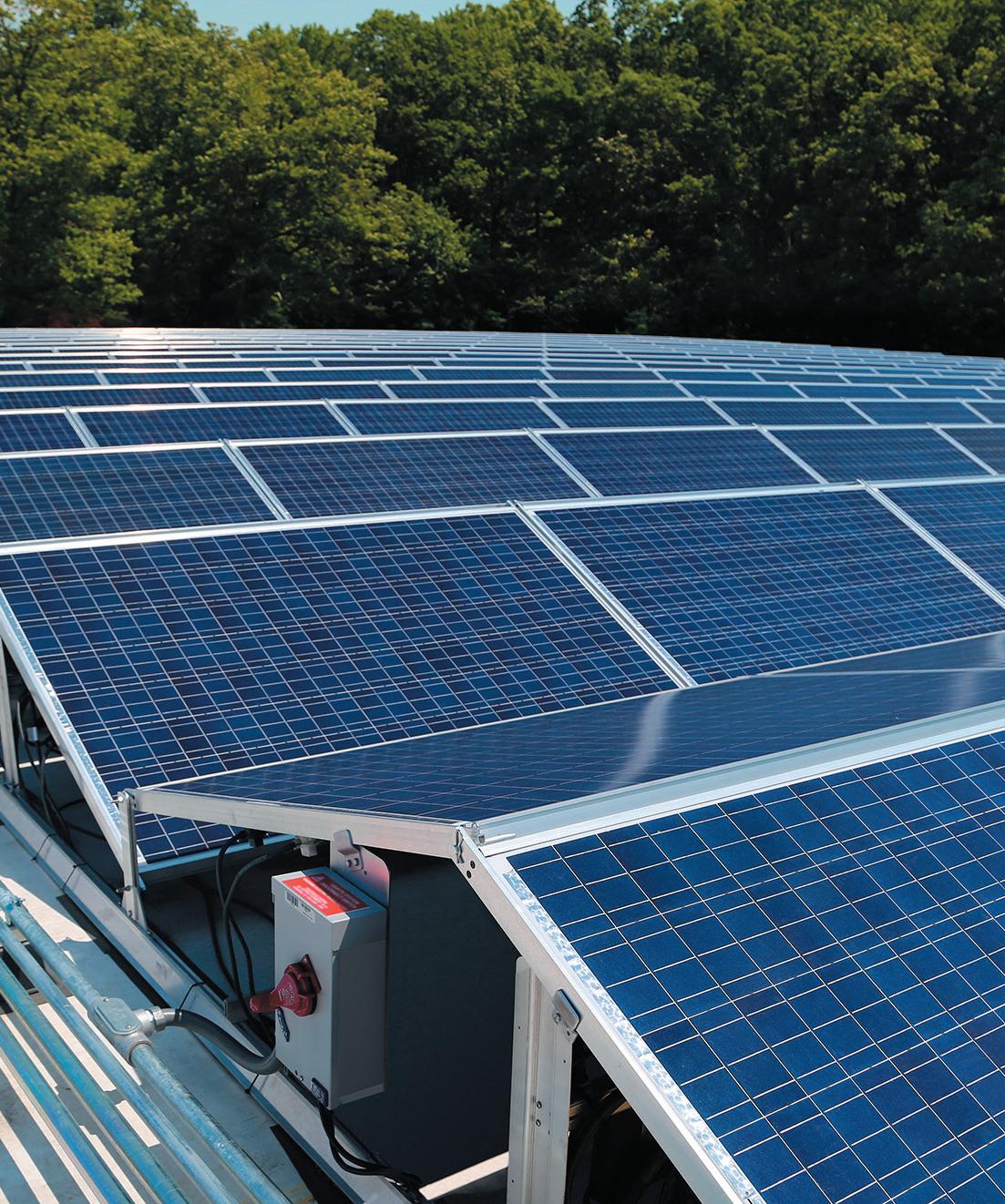

revive the dormant solar technology as soon as investors were secured. But then COVID-19 hit.
"COVID was actually a blessing in disguise for us, all of the devastation notwithstanding," Cox said. "It’s allowed us to really rethink and strategize and position ourselves to be successful. Clearly, we’ve learned lessons from what tenK went through and we’ll not repeat some of the same processes. I’m a big believer in needing to walk before we run."


The company name Global RAIS is a reference to one of the key patents on tenK's technology. It stands for “Redundant Arrays of Integrated Solar.” What differentiates Global RAIS's solar panel technology is its solar cell structure.
"Rather than being serial-based architecture where every cell is connected to the next cell and so forth — and you build voltage as you add cells and add modules — this IP allows us to build everything in a matrix fashion," Cox said. "So, each cell is connected to the next cell in multiple pathways."
This means that individual cells in Global RAIS panels can still perform without hindrance from neighboring cells that are underperforming; whereas solar cells with typical connections can underperform if neighboring cells experience performance loss, like shading or microcracks.





Global RAIS demonstrated the durability of its panels in a side-by-side test with a

I was curious as to what was going to happen with the technology. I was sad to see it go away.

competing module brand by simulating shading and damaging the panels with a baseball bat, bullet holes and even by throwing a whole kitchen sink at each panel. Due to its parallel cell structure, the Global RAIS module continued to produce power throughout the test.
This ability to operate through shading and other obstructions is what makes Global RAIS panels suited for commercial rooftops with HVAC systems casting shade throughout the day, Cox said. The company is so unconcerned with shading, Global RAIS’s system is designed to work with shadows.

The dual-tilt racking places panels back-to-back at 26° and 16° angles in each row. With those varied panel angles and the compact nature of the racking, inter-row panel shading is unavoidable during the day. But Global RAIS is betting
that the ability to pack more panels onto a surface and mitigate that inevitable shading means these systems will outperform traditional arrays.
“It allows us to put a much higher density of potential energy generation in a smaller footprint because of the shading,” Cox said. “In traditional solar, you’ve got to account for that shading. We don’t need to deal with that, so we can pack a much higher amount of power in a smaller footprint.”

The system can be designed in east-west, north-south or any orientation off-azimuth, and it can be mounted to the ground. The panels and racking are sold together as one package and can’t be mixed and matched.
Global RAIS modules are currently using Northern Electric Power BDM-800 microinverters with customized firmware
In traditional solar, you’ve got to account for that shading. We don’t need to deal with that, so we can pack a much higher amount of power in a smaller footprint.


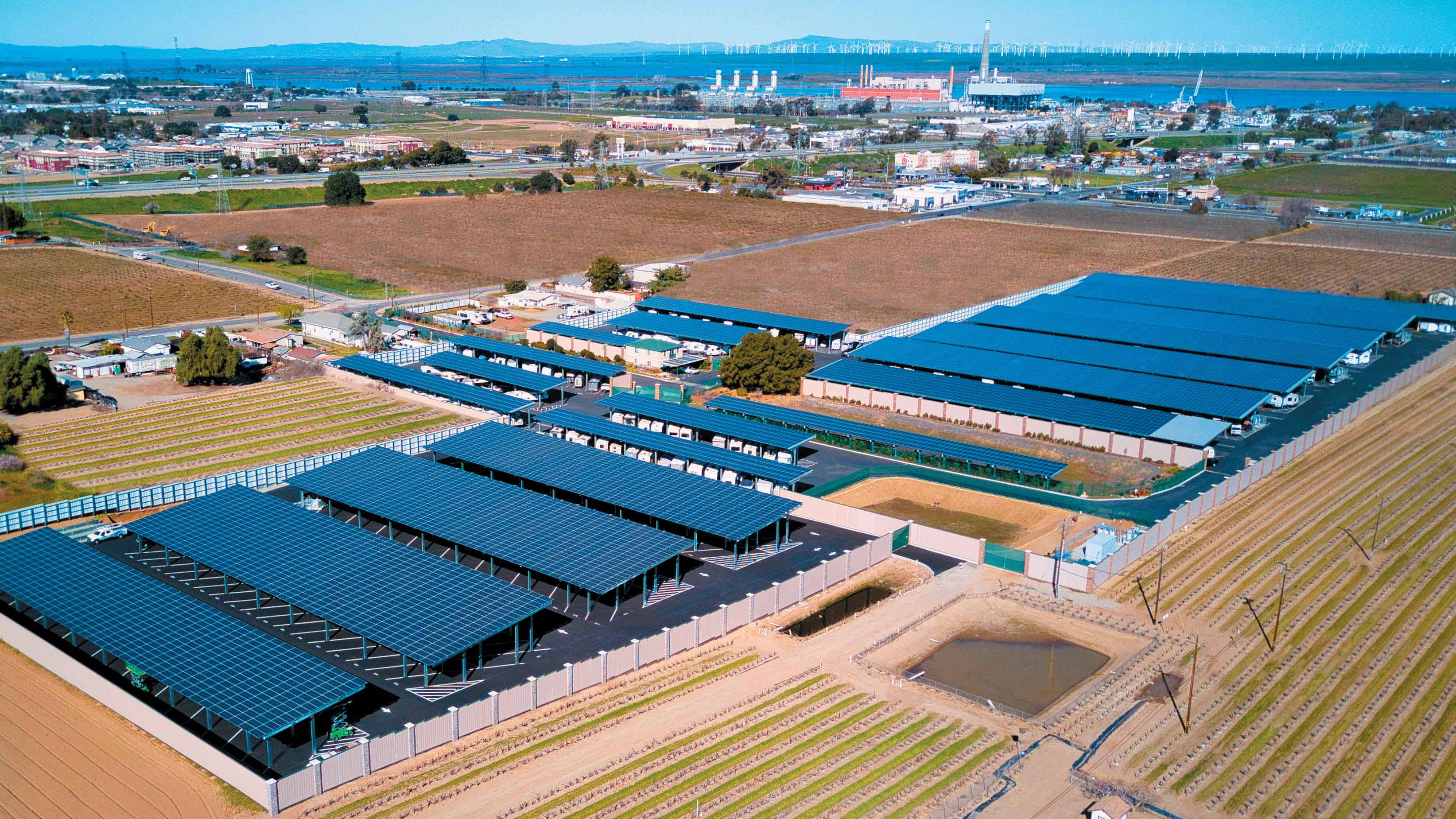
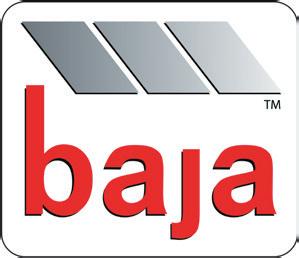
that adapts to their low-voltage output, but the company is exploring other collaborations too. DC-coupled storage integration is made simple with Global RAIS’s module-level electronics package, which features configurable voltage controls that eliminate the need for an additional battery management system.
“That storage-ready module, that’s a key component. If there’s one thing that’s really convinced us that we should come back to the market now, it’s this direct-tostorage piece,” Cox said.

Reviving a solar technology that left the industry years ago has made Cox reflect on the choices that led to tenK’s demise. He saw an opportunity to fill a niche in the market with this hardware that he loved enough to pursue the patents, but he also recognizes opportunities at an institutional level to operate differently.
Global RAIS is pursuing a B Corp certification, which will mean flattening corporate governance among employees, being transparent about the company’s

performance and, of course, prioritizing sustainability within the company and all the way up the supply chain.
The company is also planning to install solar systems for clients that provide critical public services during natural disasters, like food banks and medical centers.
"We seek to do good with this product, and we need to do good with this product in places where this is going to make a huge difference to how people live,” said Robin Cox, chief sustainability
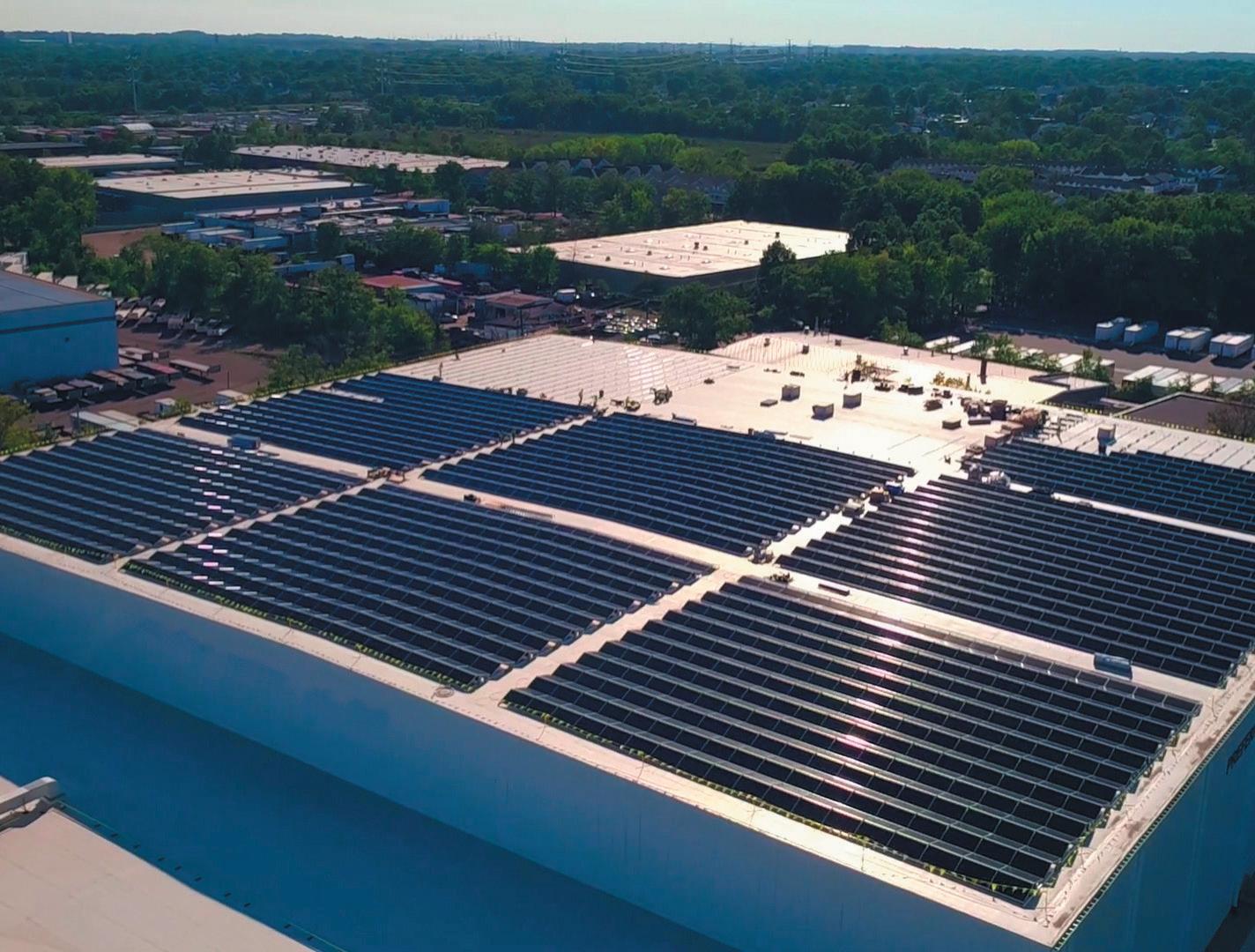





officer at Global RAIS. “In a lot of places, you need reliable, readily available clean energy, so the B Corp certification allows us to do that within the same corporate structure."


After pursuing and acquiring the rights to a dormant solar technology, reestablishing manufacturing operations and emerging from a pandemic, Global RAIS solar modules and racking are once again a reality. The company has sold its first projects, but this is just the beginning of its re-entry into the solar market.
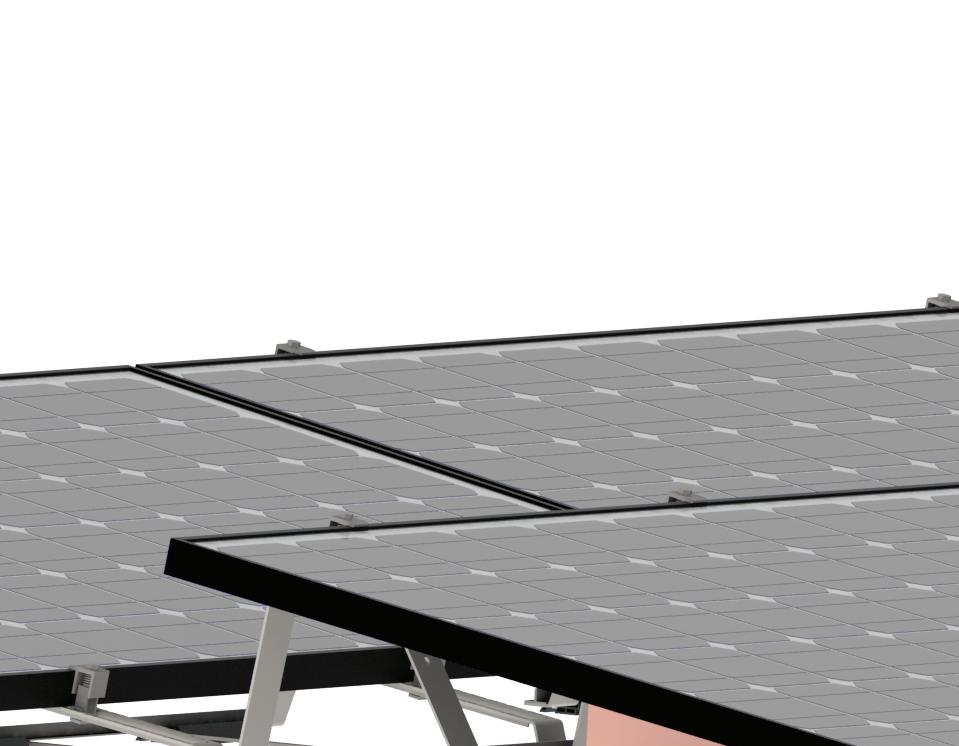
“We don’t have a magic mirror,” Robin Cox said. “We don’t know what the future holds, but we teach and learn better by doing it ourselves. As the company grows, our intent is to do it different and figure it out along the way.”
SPW



































































THE Inflation Reduction Act, packed with incentives for the solar + storage industry, was signed by President Joe Biden on August 16. Solar advocates believe the sector will boom thanks to the long-term certainty provided by this law.
“The changes to the ITC are monumental. They are things that will create a longer runway for clean energy growth in America,” said SEIA president and CEO Abigail Ross Hopper. “The ITC, as we know, is the No. 1 policy driver in the solar industry and has helped us build the industry to what we have today.”

Here’s what’s in the IRA.
The personal income tax credit for solar power is raised to 30% and extended by 10 years, with stepdown beginning in 2033. Standalone residential batteries over 3 kWh, purchased after December 31, 2022, are also eligible for the 10-year, 30% ITC. There is no direct pay option for residential projects.
Commercial solar incentives in the IRA fall into two categories based on project size.
Commercial projects under 1 MWAC can receive the 30% ITC with
no prevailing wage or apprenticeship requirements to receive the full benefit.
Commercial projects over 1 MWAC can receive the 30% ITC if prevailing wage and apprenticeship metrics are met. These labor requirements will take effect for projects that begin construction 60 days after the Dept. of Treasury defines the metrics. Companies that begin construction before the 60 days are over are exempt from meeting the requirements to reach the full 30%.
After the 60-day period, commercial projects over 1 MWAC will receive a 6% base credit, with 24% more available if projects meet those

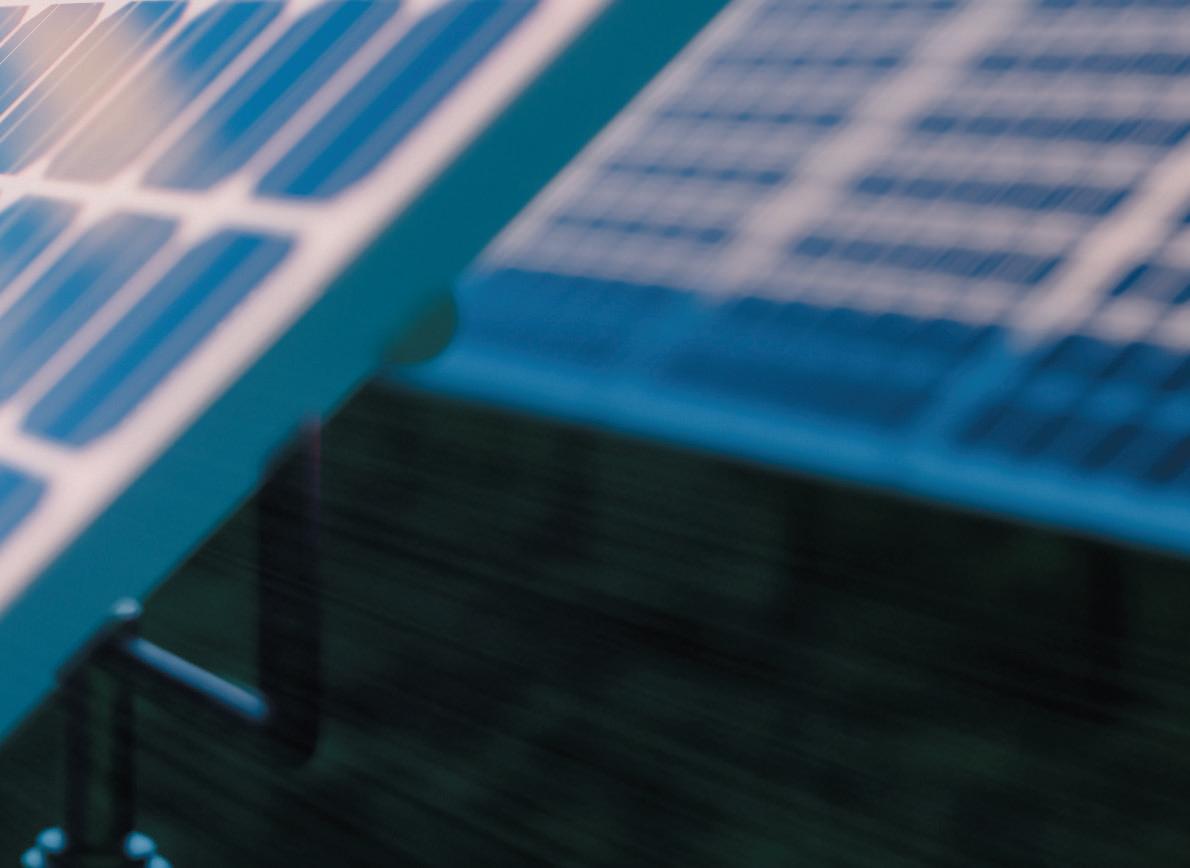













additional labor requirements to make a total of 30%.
Both prevailing wage and apprenticeships are closely based on union labor. A prevailing wage is set by states and is the basic hourly rate of wages and benefits paid to a number of similarly employed workers in a given geography, according to The Center for American Progress. Some states do not have established prevailing wages, according to Pari Kasotia, senior director of policy at DSD Renewables, so the Dept. of Labor will need to create guidance for those scenarios.
Apprenticeships too are typically union-led programs. The IRA dictates what percentage of a project’s workforce must be made up of apprentices, starting with 10% for projects beginning
construction in 2023, increasing to 12.5% in 2024 and 15% in 2025.
“I cannot underscore [enough] the need to ensure appropriate levels of training programs to meet the growing demand for labor that would come from this bill,” Kasotia said.
After 2025, the continuation of the commercial solar and storage ITC for the following seven years is contingent on whether the solar sector and electric sector meet the Treasury Dept.’s greenhouse gas emission goals. The credits will continue until the electric sector’s emissions have dropped 75% below 2022 levels.

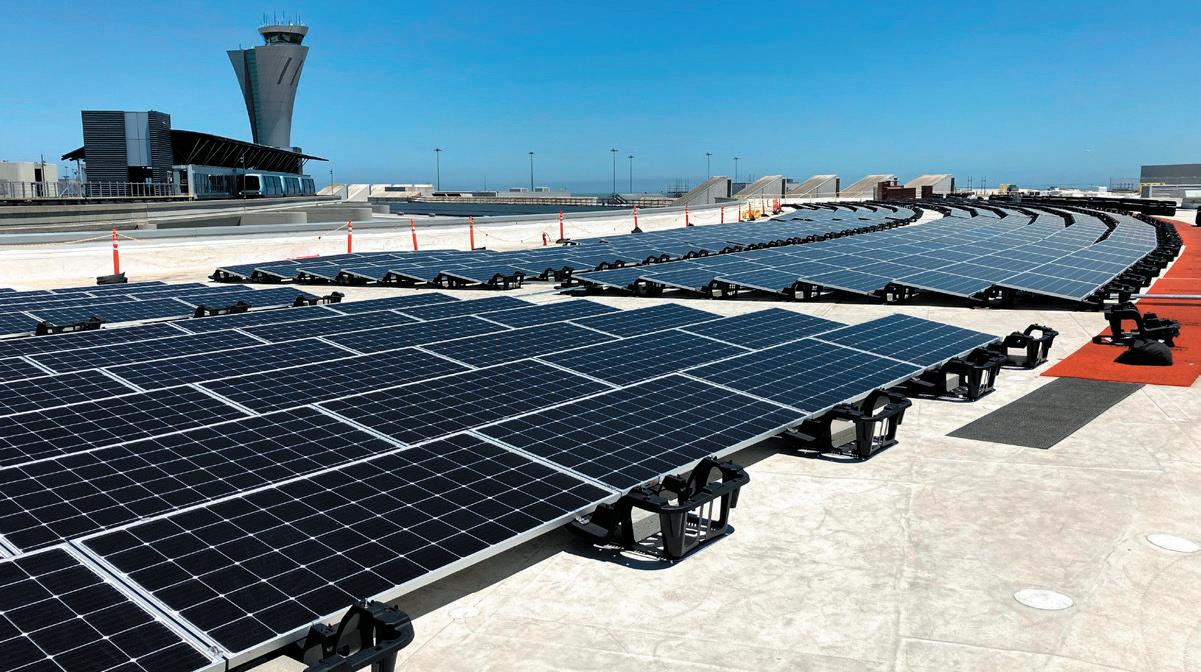
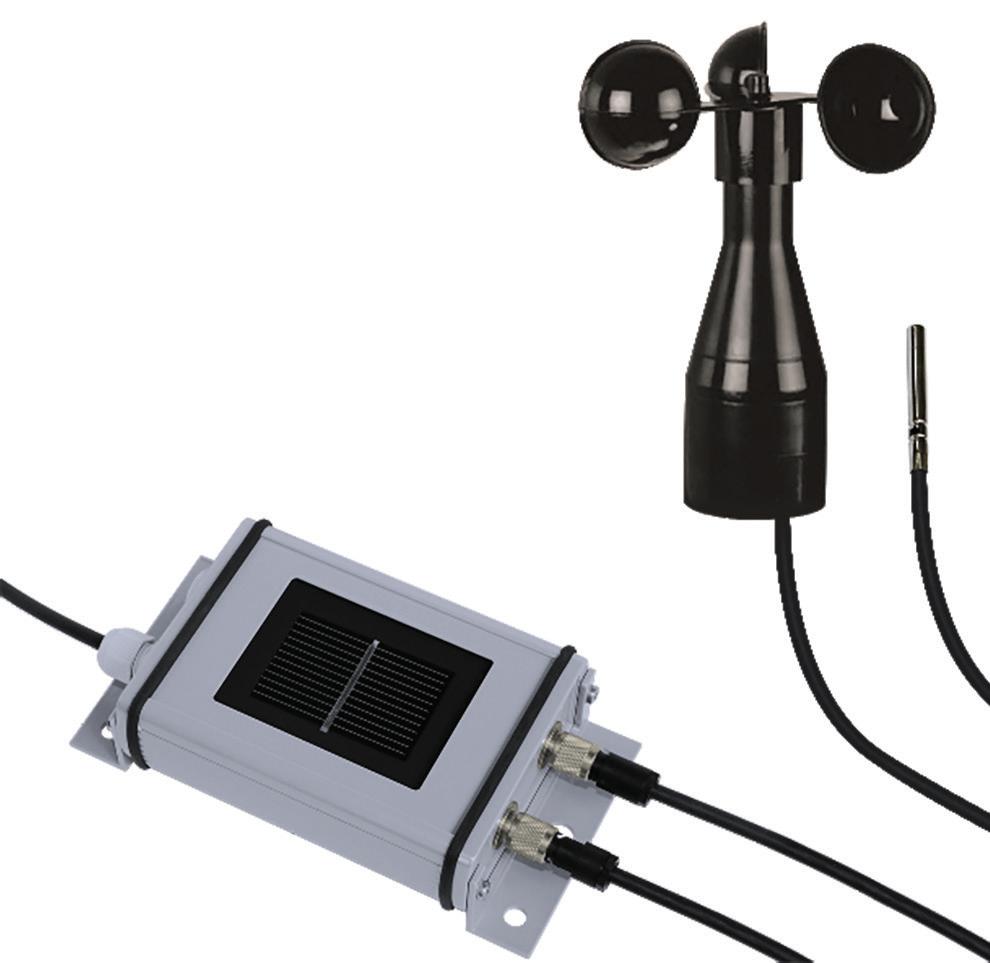

Commercial solar and storage projects are also eligible for a number of adders


I cannot underscore [enough] the need to ensure appropriate levels of training programs to meet the growing demand for labor that would come from this bill.

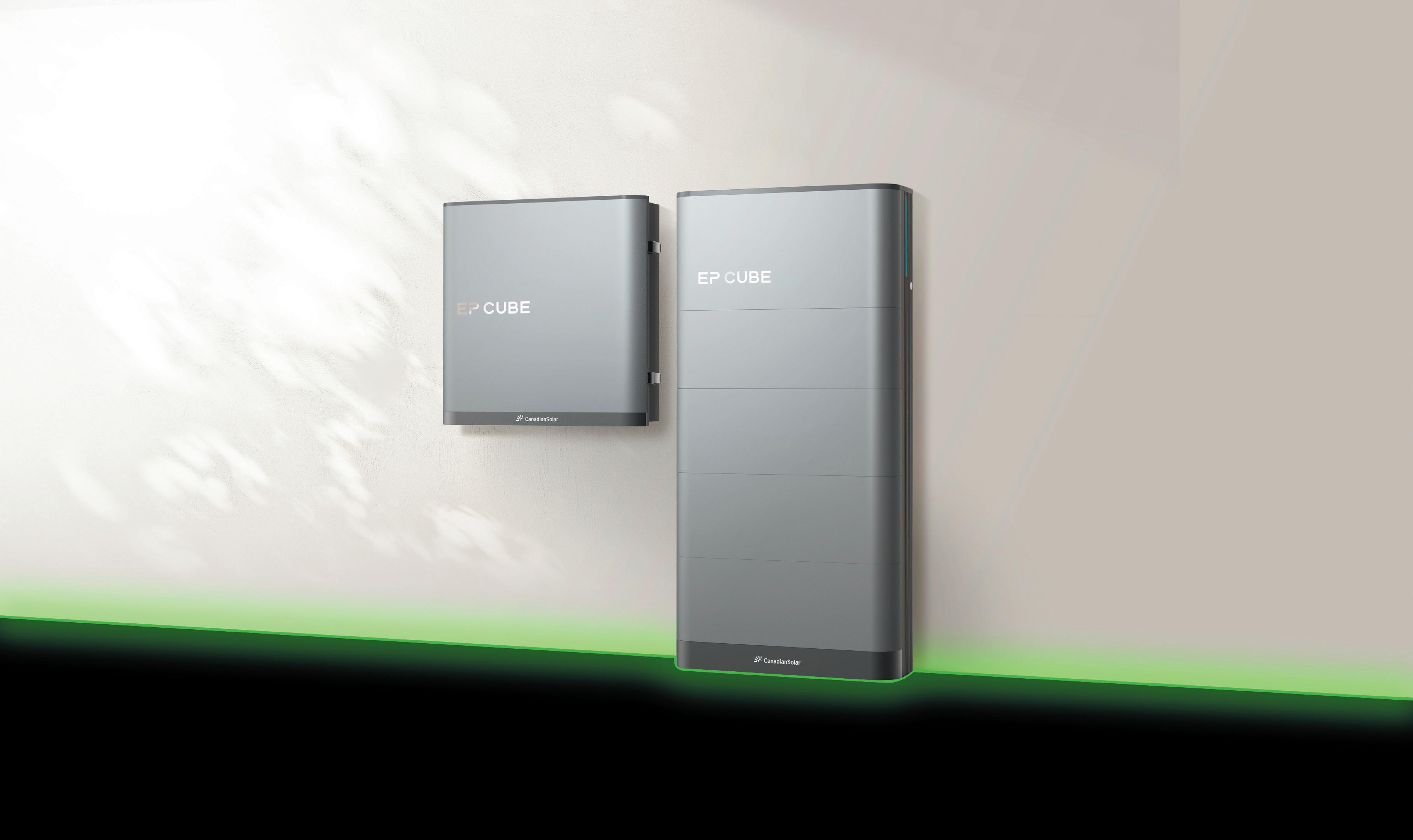
that can take that credit even higher.
Those adders include:

• 10% for meeting domestic content standards, meaning a certain percentage of any manufactured product is made in the United States;

• 10% for siting projects in “energy communities,” meaning places with brownfield sites or coal plant closures;
• Up to 10% for projects smaller than 5 MWAC that are located in low-income communities or tribal lands; and
• Up to 20% for projects smaller than 5 MWAC that qualify as residential building projects or economic benefit systems.

The 5-MWAC cap for some of the adders could be especially fruitful for
community solar projects, which are usually under that size and often serve those incentivized communities.

“There are ways to increase the credit up to 50 to 60%, but, obviously, the details would matter,” Kasotia said. “Ensuring that you are able to cleanly check all of these boxes is important, so the guidance from Treasury will dictate a lot of those details on what it looks like to receive these bonus credits.”
Projects under 5 MWAC can also now receive the ITC for interconnection costs.

The IRA now allows commercial solar developers to choose whether to collect the ITC or PTC on any given project. The
PTC is currently at $0.026/kWh for 2022 and rises with inflation.
While the Investment Tax Credit (ITC) is based on the upfront cost of a solar project, the Production Tax Credit (PTC) is based on the output of the project. The ITC is available in the year a project is placed in service, while the PTC can be claimed every year over the 10-year credit period beginning when the project is placed in service, according to Kevin Pearson, partner and tax attorney at Stoel Rives.
The PTC is especially attractive for high-output, low-cost projects — for example, huge utility-scale arrays.



As the leader in solar charge controllers since 1993, SureSine is the inverter line our customers asked us to build. And our competitors will wish we hadn’t.
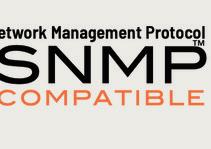
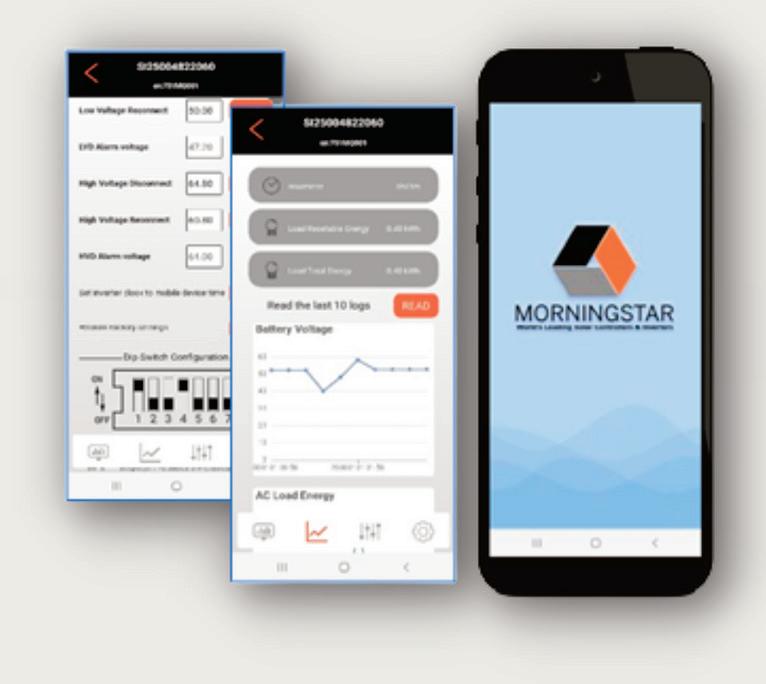



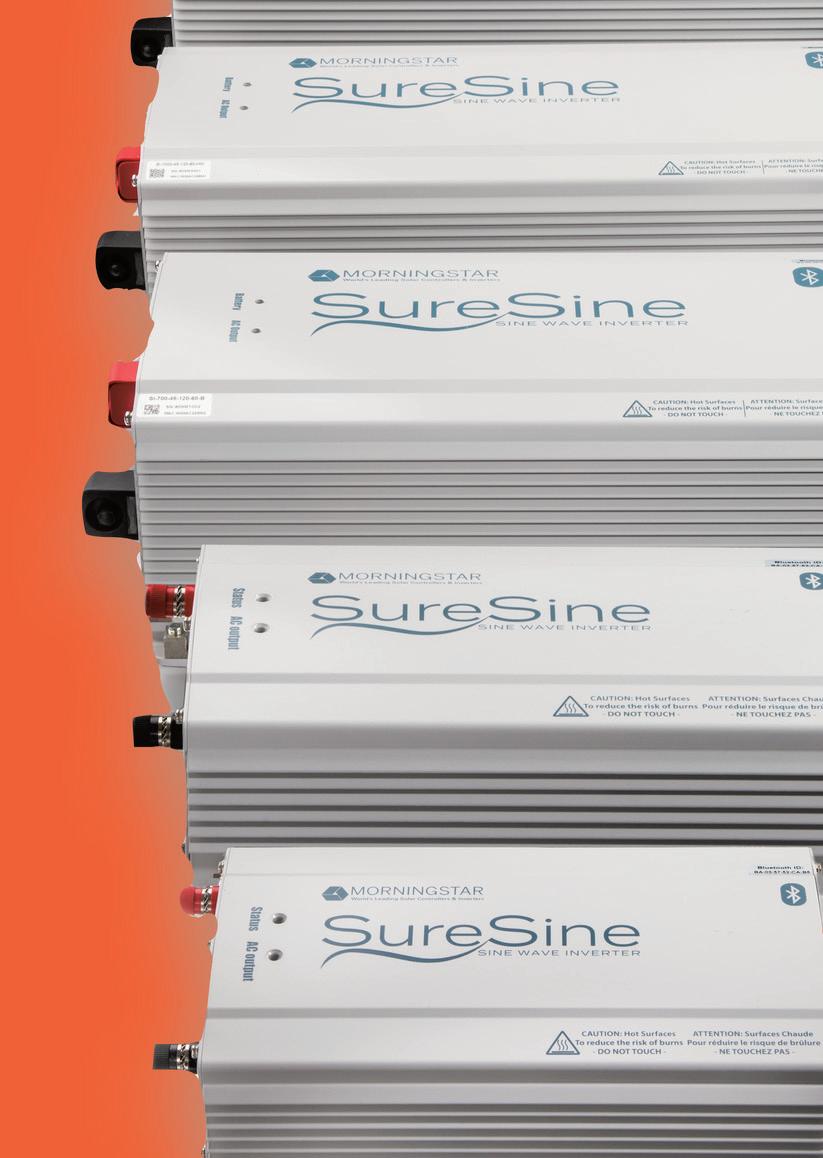
ureSine starts with the same industry-leading quality and performance standards of our charge controllers and adds a long list of advanced inverter features and technologies: full communications capabilities, wireless utility apps, seamless system integration, multiple AC wiring options, and more. We also built-in the safety, noise and performance standards required to achieve industry-leading NRTL conformance certifications—a unique advantage in this class of inverters.
capabilities, wireless utility apps, seamless system integration, multiple AC wiring options, and more. We
With six power classes ranging from 150 to 2500 Watts offering models with 120, 127 or 230V output and 12, 24 or 48V DC input options, there’s a Morningstar SureSine perfect for your next project
Commercial storage projects larger than 5 kWh are now eligible for the ITC, with the same structure as the commercial solar ITC — with prevailing wage and apprenticeship requirements to reach the full 30%.
In the past, storage had to be paired with solar to receive the ITC. A battery could only take advantage of the solar ITC if it was at least 75% charged directly from the PV asset it was paired with for five years. That meant the paired batteries couldn’t perform many of the additional demand arbitrage functions they were capable of, lest they forfeit the ITC.
The IRA changes that structure, allowing batteries to perform their full breadth of functions while collecting tax credits.
“I like the fact that the bill took the electric system as a whole and provided incentives for each technology that is set to play a significant role in a clean energy grid — solar, storage, wind, electric vehicle infrastructure, interconnection. I’m really glad that they made sure that storage could be combined either with solar or as a standalone system,” Kasotia said.





The IRA now allows for transferability of tax credits after 2022, including both the PTC and ITC. In the past, only a few banks and insurance companies had enough tax liability to
finance large solar projects. The ability to transfer tax credits could allow individuals to finance solar projects through investment funds and other mechanisms, according to Pearson. This new provision could mean smaller projects that can’t get financing from the big banks could get financed by individuals instead.
“That’s a totally groundbreaking concept,” Pearson said. “It’s a very effective way to encourage people to invest in these projects.”


The IRA includes manufacturing tax credits for a number of solar components, from solar panels to trackers and inverters (see sidebar on left). SEIA has already
It starts out as best-in-class. And gets better from there

Introducing GenStar MPPT: the industry’s first fully-integrated solar DC system controller
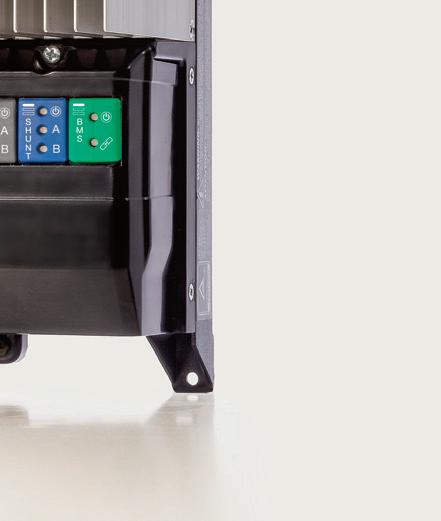






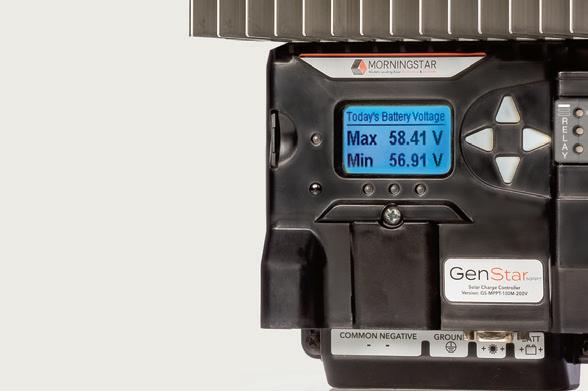
Out of the box, GenStar is an overachiever —an all-new design with “lithium DNA.” Standard features include advanced communications and control, powerful load control, and oversized PV array input capability. On top of that, our innovative ReadyRail architecture makes it easy and cost-effective to add a solar professional’s “wish list” of advanced features and control technologies, including battery metering/monitoring, lithium battery communications and control, signaling and advanced load control, and more. Our snap-in ReadyBlocks make GenStar fully futureproofed for evolving system needs.

With three models up to 100A maximum current GenStar’s ready to bring success your next critical project
Shown with optional ReadyBlocks installed
Snap-in ReadyBlocks enable advanced features to be built-in and fully integrated, instead of wired outside the system as accessories
• Residential solar ITC: 30% until stepdown starts in 2033
• Residential storage ITC for batteries over 3 kWh: 30% until stepdown starts in 2033
•
• Commercial solar projects: 30% ITC until 2025. Credits in 2025 and later are contingent on whether the Dept. of Treasury determines carbon reduction goals are met
• Prevailing wage and apprenticeship requirements to receive full 30%
• These requirements take effect for projects that begin construction 60 days after the Dept. of Treasury defines the metrics
• These requirements do not apply to projects under 1 MWAC
• Commercial storage ITC for batteries over 5 kWh that are placed in service after 2022: 30% ITC until 2025. Credits in 2025 and later are contingent on whether the Dept. of Treasury determines carbon reduction goals are met
• Prevailing wage and apprenticeship requirements to receive full 30%
• These requirements take effect for projects that begin construction 60 days after the Dept. of Treasury defines the metrics
• ITC adders available (for both commercial solar and storage)
• 10% for domestic content usage
• 10% for siting in “energy communities”
• Up to 10% for projects smaller than 5 MWAC located in low-income communities or tribal lands
• Up to 20% for projects smaller than 5 MWAC that qualify as low-income residential building or economic benefit systems
• Projects under 5 MWAC can receive ITC for interconnection costs
• Commercial solar projects can choose whether to receive the PTC or ITC
• PTC is currently at $0.026/kWh for 2022 and rises with inflation
• Credits are transferable after 2022, potentially allowing individuals to invest in projects
suggested that the tax credits in IRA could spur upwards of 30 GW of new solar panel manufacturing capacity in the United States.
Although individual tax refundability did not make it into this bill, direct pay for some nonprofit entities is expected to boost the benefits of solar for these organizations.
The IRA extends direct pay to nonprofit organizations, other community organizations, rural electric cooperatives, Native American tribes, school systems, units of state and local government, the Tennessee Valley Authority and other entities.
•
• Available for nonprofit entities, state or local governments, the Tennessee Valley Authority, rural electric cooperatives or tribal governments
• No direct pay available to residential projects
•
•
• Thin-film or crystalline silicon PV module: 7¢/WDC
• Thin-film or crystalline silicon PV cell: 4¢/WDC
• Thin-film or polysilicon PV wafer: $12/m2
• Solar-grade polysilicon: $3/kg
• Polymeric backsheet: 40¢/m2
•
• Torque tube (defined as: rotated by a tracker drive system): 87¢/kg
• Structural fastener (used to connect a tracker’s mechanical/drive system to the foundation, torque tubes to drive assembles, or segments of torque tubes to one another): $2.28/kg
Before this direct pay provision, nonprofits typically had to partner with tax equity entities to be able to afford a solar installation. The tax equity partners owned the systems and received the tax benefits through power purchase agreements.
“That comes at a cost that cuts into the benefits the direct beneficiary of the system would otherwise get if they owned it themselves,” said Andie Wyatt, policy director and legal counsel at GRID Alternatives.
Some organizations seeking small or otherwise less profitable solar installations may have been unable to find tax equity partners at all in the past.
•
• Central inverter (>1 MWAC capacity): 0.25¢/WAC
• Utility inverter (>125 kWAC, <1 MWAC): 1.5¢/WAC
• Commercial inverter (>20 kWAC, <125 kWAC): 2¢/WAC
• Residential inverter (<20 kWAC): 6.5¢/WAC
• Microinverter (<650 WAC and connects with one solar module): 11¢/WAC
“The reason the industry as a whole was arguing that [nonprofits] should get direct pay is because there’s not an infinite pool of tax equity to partner with. Partners want the highest returns, and that kind of cuts against the most equitable projects a lot of the time,” she said.
•
• Battery cell (>12 Wh capacity): $35/kWh
• Battery module (>7 kWh): $10/kWh
• Electrode active materials (cathodes, anodes, anode foils, solvents, additives, electrolyte salts): 10% of cost of production
Direct pay could bring solar power and its many benefits to far more organizations that do not pay taxes.




















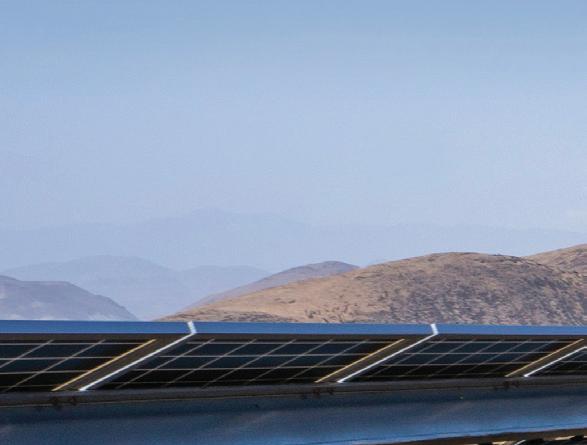










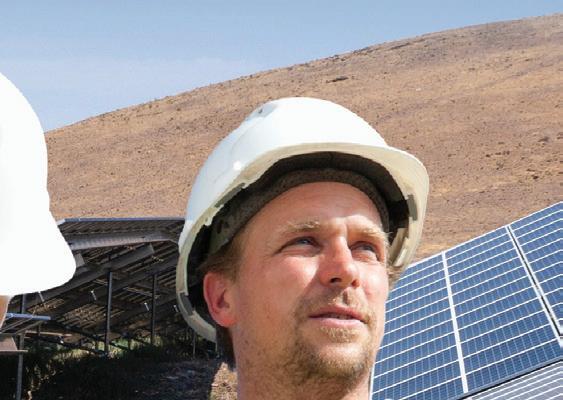

“It just gives us more options and gives the communities we work with more options to consider how to structure and benefit from clean energy projects,” Wyatt said.




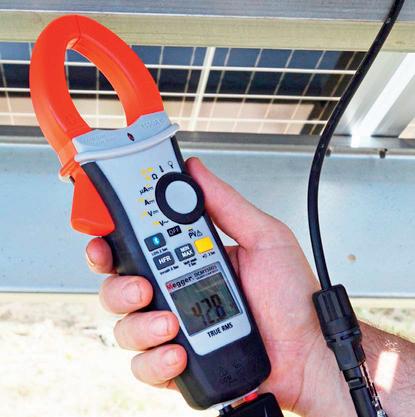


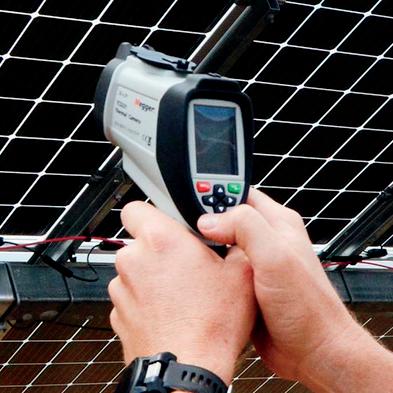









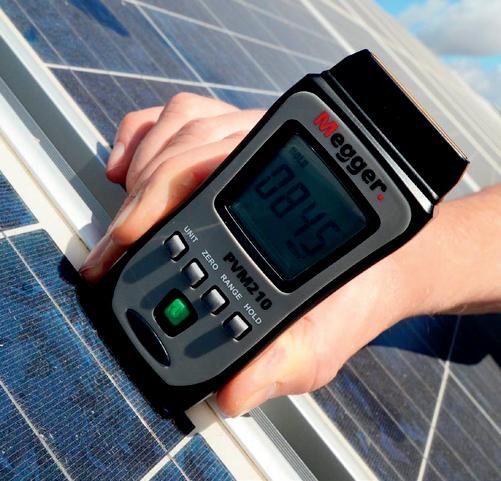




Some organizations may still be interested in PPAs for the convenience of giving a third party the responsibility of maintaining a system through its lifetime. But many could reap far more benefits from direct ownership.
“Having these entities be able to access the systems directly and own the systems if that’s what they choose is a huge step forward for energy sovereignty,” Wyatt said.
She expects there to be much implementation work to come, as well as a need for education to inform organizations about the incentive and how to take advantage of it. GRID stands ready to help with that outreach.
“There’s going to need to be a lot of networking, outreach and education, not just top-down from the IRS and the Dept. of Energy, but any organization, including GRID, that has the capacity to work with our partners to spread the news of how these [incentives] work,” she said. “There’s also going to be a lot of implementation work at state and local levels and in federal agencies as they build this all out. It’s going to be just a tremendous few months to be involved in climate policy.” SPW


Technology evolves quickly. Keep up with CPS America 250/275kW 3-phase string inverters designed to work with solar sites from 2MW to 2GW.







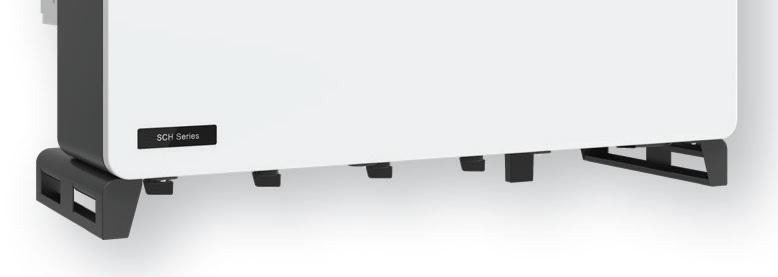
Significant design flexibility for solar plants of all sizes


More granular data analytics and monitoring

Available now, without the long lead time.

When maintenance is required, only 275kW is impacted versus 5MW, minimizing harvest loss. Get back up and running quickly with service performed by local electricians instead of waiting for highly specialized manufacturer’s technicians.

Welcome to a new era in solar with CPS America string inverters. www.chintpowersystems.com
Ready for a new era in solar?
Visit us at RE+ • September 19-22, 2022 • Booth 2804
















capsule days.

THE Ulysses S. Grant Cottage National Historic Landmark is a preserved time capsule of the 18th president’s final days. Built in 1872 atop Mt. McGregor in eastern New York state, the cottage was where Grant wrote his final memoirs before succumbing to throat cancer. Today, the building contains many of the late president’s belongings to preserve the history of the man who led the Union army to victory in the American Civil War.
historical preservation, the New York State Office of Parks, Recreation & Preservation installed a 30-kW off-grid solar + storage system to power the cottage and affiliated historical site facilities.



Continuing a 150-year legacy of Office facilities.
Prior to Grant’s arrival at Mt.
McGregor in 1885, the site was also home to a mountaintop resort. The cottage and remaining buildings were outfitted with an early form of electricity
made by a steam-powered generator. It powered lights in the hotel buildings, including the cottage.
Grant Cottage maintains that record for electrical history by being the first facility in the New York Parks network powered by an off-grid solar array.
Down the mountain from the cottage is the Mt. McGregor Correctional Facility, a former prison and tuberculosis sanitorium that was decommissioned eight years ago and has been vacant ever
powered generator was a power line that ran from the prison up the mountain to supply electricity for the cottage site, but its electrical infrastructure was degrading and the cost to repair was substantial.
In one year, the Grant Cottage had experienced 12 power outages.
“This site has its inherent challenges, and those challenges increased when the prison closed,” said Ben Kemp,
operations manager for the Friends of



lights
Grant Cottage. “In our perspective — both the parks department and ours — our main object must be preservation first. It has to be, because if you have nothing here — if you can’t keep the lights on, if you can’t keep the heat on — everything would degrade, and you’d have nothing to show people. There would be no historical value if things fell apart.”
The access road up to Grant Cottage is a 700-ft climb, with the actual site
standing at an elevation of about 1,000 ft. So, the parks department was faced with either replacing electrical lines up the side of a mountain for a historical site that is only open 110 days a year or seeking alternative energy sources that could take the cottage off the grid, like solar and energy storage.







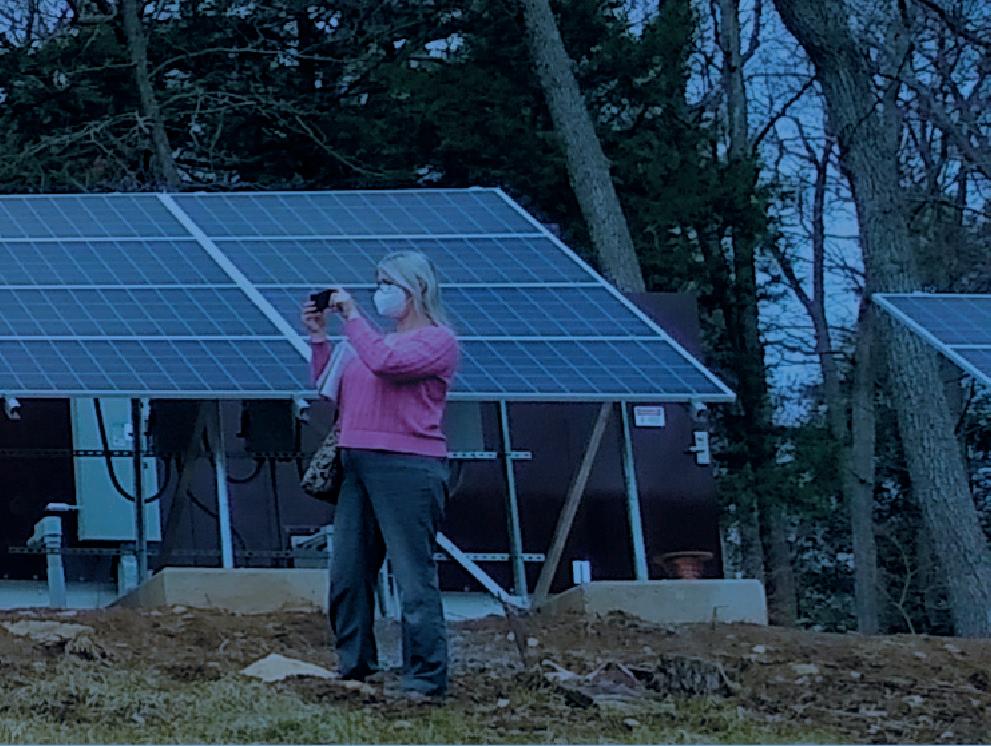







replacing the cottage off the grid, like solar and October, and that was one of the reasons system,
“We basically run May through October, and that was one of the reasons they zeroed in on this site as a candidate for an off-grid system, as opposed to
many of the other parks and sites in New York,” Kemp said. “A lot of them stay open year-round and have a heavier draw on the system.”


Construction on the Grant Cottage solar project began in November 2020 and finished in April 2021. The historical site is closed to the public during that time because Mt. McGregor experiences heavy snowfall throughout the winter, making road access more difficult. Those conditions caused some construction delays as well.
The solar array was entirely constructed by a workforce of state employees from the Office of Parks, Recreation and Historic Preservation, the Department of Environmental Conservation and the New York State Energy Research and Development Authority. The only outside hire made for this project was a concrete contractor.
“We talked to everyone, and we asked if they were physically comfortable doing this kind of work and being out in the weather and carrying and moving stuff,” said Rodney Wiltshire, head engineer of the Grant Cottage solar project and a former employee at the
New York Natural Heritage Trust.

“That was basically the requirement. Then I trained every single person that was there and put them to work, and I supervised. I did some work, but I was basically running around the entire time making sure people were doing things right — and they learned.”


Wiltshire has installed PV solar since 2007, primarily through his company Empire Solar & Electric. He was contracted by the parks department to design and oversee construction on the Grant Cottage project.




For the five months of construction, state employees worked onsite building this array, enduring the natural challenges of the climate and elevation. There was constant snowfall and snowmelt conditions to contend with, as well as widely varying temperatures in the springtime when days would start with freezing temperatures and end much warmer.
Much of the ground on Mt. McGregor is full of bedrock and exposed
Grant on the cottage porch days before his death. Library of Congress

shale. The solar array was installed atop a shale deposit along the access road before reaching the cottage. A 15-ft cliff at the edge of the shale deposit made installation conditions even trickier.
Heavy machinery like a telehandler, forklift and crane were brought up the mountain to hoist system equipment to the site, and an excavator was needed to dig trenches to run conduit to the site's
IN THIS SPECIAL EDITION OF CONTRACTOR’S CORNER, Scott Francis, technical sales manager for Westex: A Milliken Brand, talks through the latest in industry-relevant safety codes that should inform the personal protective equipment selection process and the steps to selecting PPE for an industry like photovoltaic solar. Since 1941, Westex has produced flameresistant and arc-rated fabrics used in PPE across many industries.





Below is a portion of the company’s Solar Spotlight podcast with Solar Power World, but be sure to listen to the full episode on your favorite podcast app.

Can you tell me about some of the basics around NFPA 70E and the arc flash hazard?


NFPA 70E is the standard for the arc flash and shock protection and provides guidance on how to assess the risk associated both with arc flash and shock hazards and both AC and DC electrical equipment; and on how to select the appropriate arc flash and shock PPE. Now, regarding the arc flash hazard in the solar power industry, both AC (alternating current) and DC (direct current) equipment applies with the DC arc flash hazards present in the PV, the photovoltaic cells of the solar equipment before the inverter and the potential arc flash hazard after the inverter. Since additive arc flash analyses for both AC and DC currents are not available, appropriate arc-rated PPE needs to be determined based on DC or AC arc flash analysis, which determines the estimated incident energy in calories per-squarecentimeter or determines the PPE category if the PPE category method, which is NFPA 70E, is used.

Select arc-rated clothing PPE that has an arc rating — the arc rating is also measured in calories per-square centimeter — select PPE with an arc rating higher than the estimated instant energy listed on the label, or PPE with an arc rating that meets the PPE category method requirements.
According to the NFPA 70E, when and why should risk assessment be reviewed?
Per NFPA 70E, arc flash risk assessment should be reviewed every five years, or when there has been a change made to the electrical system. This includes checking and updating the accuracy of equipment labels so the appropriate PPE is properly called out on the label. Of course, that’s the why: To protect workers. Make sure that the appropriate arc-rated, arc-flash PPE is indicated on the equipment label. Again, that is done when an accurate incident energy is listed on the label, or the appropriate PPE category is listed on the label if they’re utilizing that method. What method you’re using depends on what’s going to be shown on the label. That’s the key thing.
What are the two methods for selecting PPE with the proper arc rating?
The first table, which is 130.5(C), assists in estimating the likelihood of an occurrence of an arc flash in AC or DC systems for certain tasks on various equipment types and conditions in a “yes or no” format. If the column reads no, you really don’t have a risk. It’s unlikely something’s going to happen, you really don’t need PPE. If the answer is yes under the likelihood of occurrence column with that task and equipment type and condition, an arc flash is likely to occur. It’s not that it might occur or could occur, it’s likely to occur. You need to take on additional protective measures, which is usually going to include the use of PPE. You move on to determine the PPE, you move to a second table.
The second table I talked about, the arc flash PPE category table, has the listed parameters for both AC and DC systems that dictate if these systems can be used. If your parameters don’t meet you can’t really use these. So, they cannot be utilized, the incident energy analysis, also known as the “arc flash study,” is performed. In the solar industry, due to the generation of 1,000 VDC, the incident energy analysis method is used for the DC before the inverter since the 1,000 VDC parameter exceeds


the 70E PPE category maximum voltage parameter of 600 V. It lists 600 V in the tables. Well, if you’re at 1,000 V, you can’t use the tables.
If I am selecting the PPE for my team, how do I know which of these two methods I should use?
As I mentioned previously for the PPE category method that can be used, basically for the series of three tables in 70E to be used certain electrical parameter requirements must be met. If the electrical system parameters, such as available fault current and clearing time maximums, are exceeded or the working distance is shorter than the minimum distance, the “incident energy method” shall be required to be used. All else being equal, selecting PPE based on the incident energy analysis method is more e ective at ensuring worker safety than the PPE category method.
PPE is one of the controls that is most susceptible to human error. The best hazard assessment with the most accurate arc flash incident energy information on the label does no good if human error, which is also lack of human performance, takes place and the arc flash holding PPE is not worn at the appropriate time. Certainly, there is various ways of getting workers to buy into wearing arc flash PPE. But human performance, or lack thereof — human error — also a ects the risk assessment method and when to revisit the assessment. Complacency is a safety killer, and it can occur in the assessment procedure or the reassessment procedure. SPW
load center. Workers had to bring plenty of other tools up with them to get the job done too.
“We probably spent a half-hour every single day just lugging hand equipment tools up and down there,” Wiltshire said.






















After the crew cleared some trees from the location, they ballasted the array with pour-in-place concrete footers set atop the shale. Piers were placed in each of the concrete blocks and IronRidge racking was attached on top of them. Boring into rock wasn't feasible for the array's anchors, but the state employee installers still had to drill through rock elsewhere during construction.
Conduit had to be run into another building that had granite walls that were about 20 in. thick. Installers had to bore a hole 4 in. wide for the conduit, and Wiltshire said it took five days
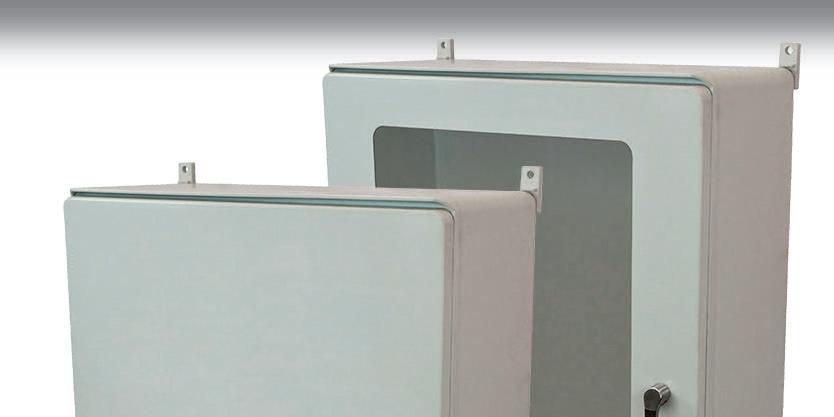
get through the wall, breaking three diamond-tipped drill bits in the process.

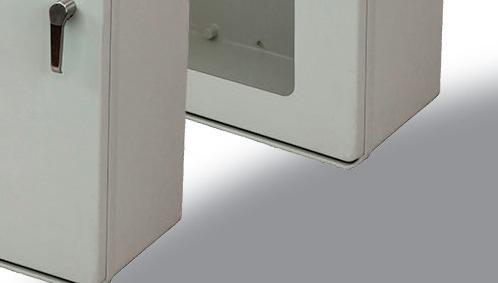




“I think that it shows that something like this, that this kind of design does have an application,” Wiltshire said. “We’re not saving the world here; we’re not providing refuge. It’s just a historical site and a visitors’ center, but this application can be used anywhere you need power that is remote, off-grid and in a location that’s very difficult to install on. And it can be done with virtually untrained but willing labor.”

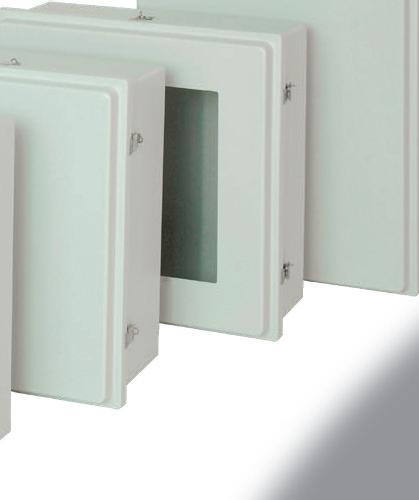
The system is composed of REC 380W modules, six OutBack Power FLEXmax 100 charge controllers, OutBack Radian 8048 inverters, MidNite Solar combiner boxes and DC disconnects and two EnerSys PowerSafe XL lead batteries, which are housed in a small storage unit next to the array.


The completed array is visible from the back porch of the cottage when leaves have fallen from the trees. Kemp said the distance of the system from the historic site was intentional to maintain an image from that period of President Grant’s life, when the lights in the cottage were still powered by steam-generated electricity.
Solar has been powering the Grant Cottage for about a year-and-a-half now. The site is expanding, and the parks department is prioritizing solar as its primary energy source with new facilities.
“It’s become a model for other parks in the state of New York, but it’s also a model for our own site,” Kemp said. “Now we immediately look at solar as the main option for the infrastructure expansion here. It’s changed the direction of the historical site.” SPW


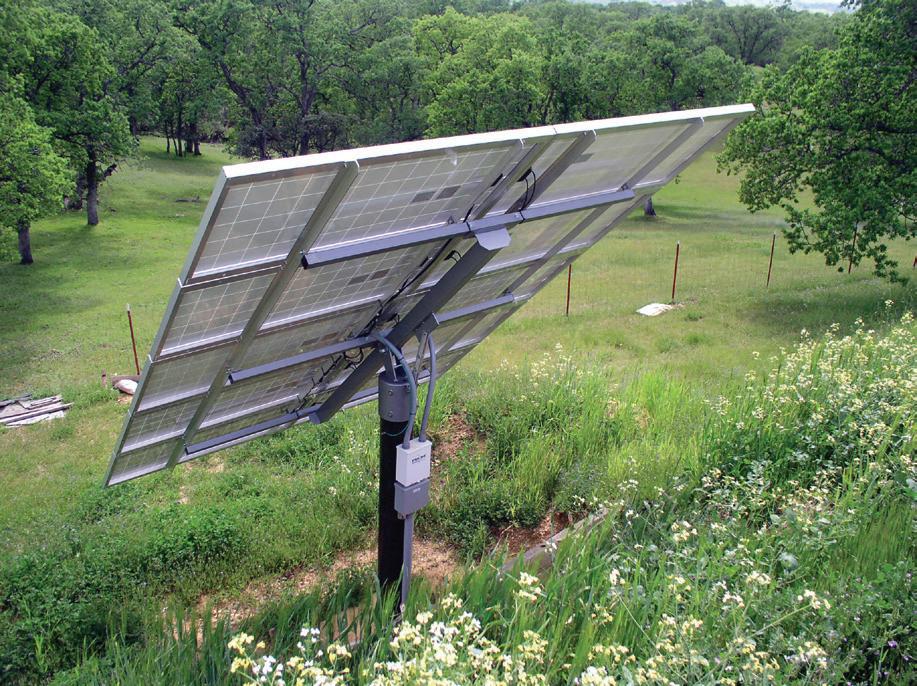
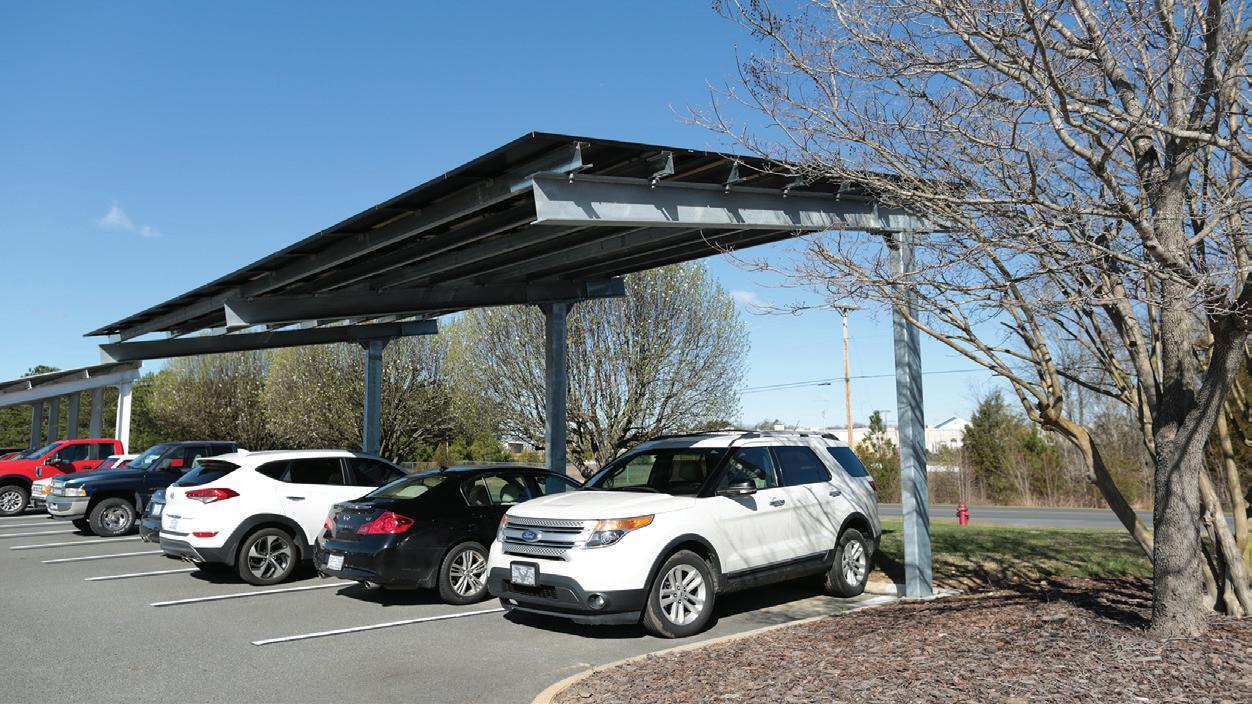

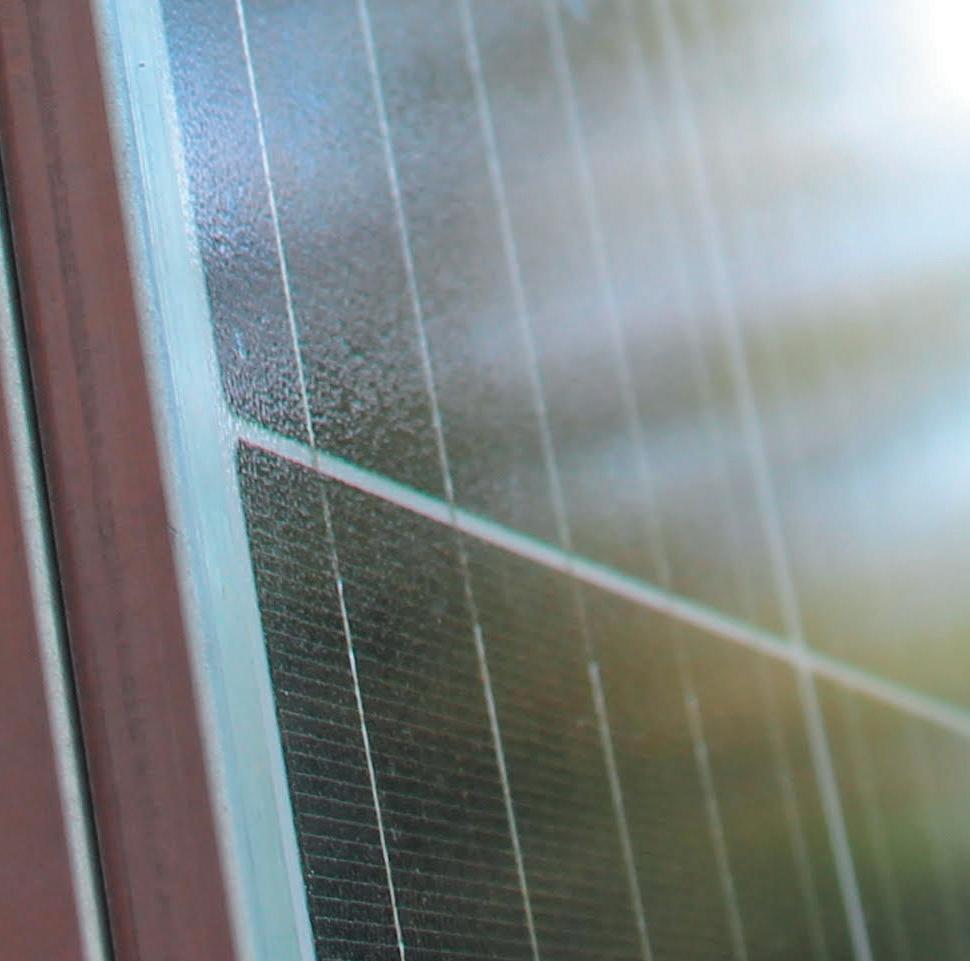









While the sun has forever been affiliated with solar power, so too has the aluminum frame. Some solar PV panels have gone frameless with cells sandwiched between two pieces of glass, and other more flexible designs use polymers to keep electrons protected. But for every other solar panel with a frame out there, chances are it is made of aluminum. For environmental and practical reasons, there’s now growing momentum to explore other framing material options.
Aluminum likely became the dominant material choice for panel frames back when the industry started because it is lightweight and has excellent corrosion protection.

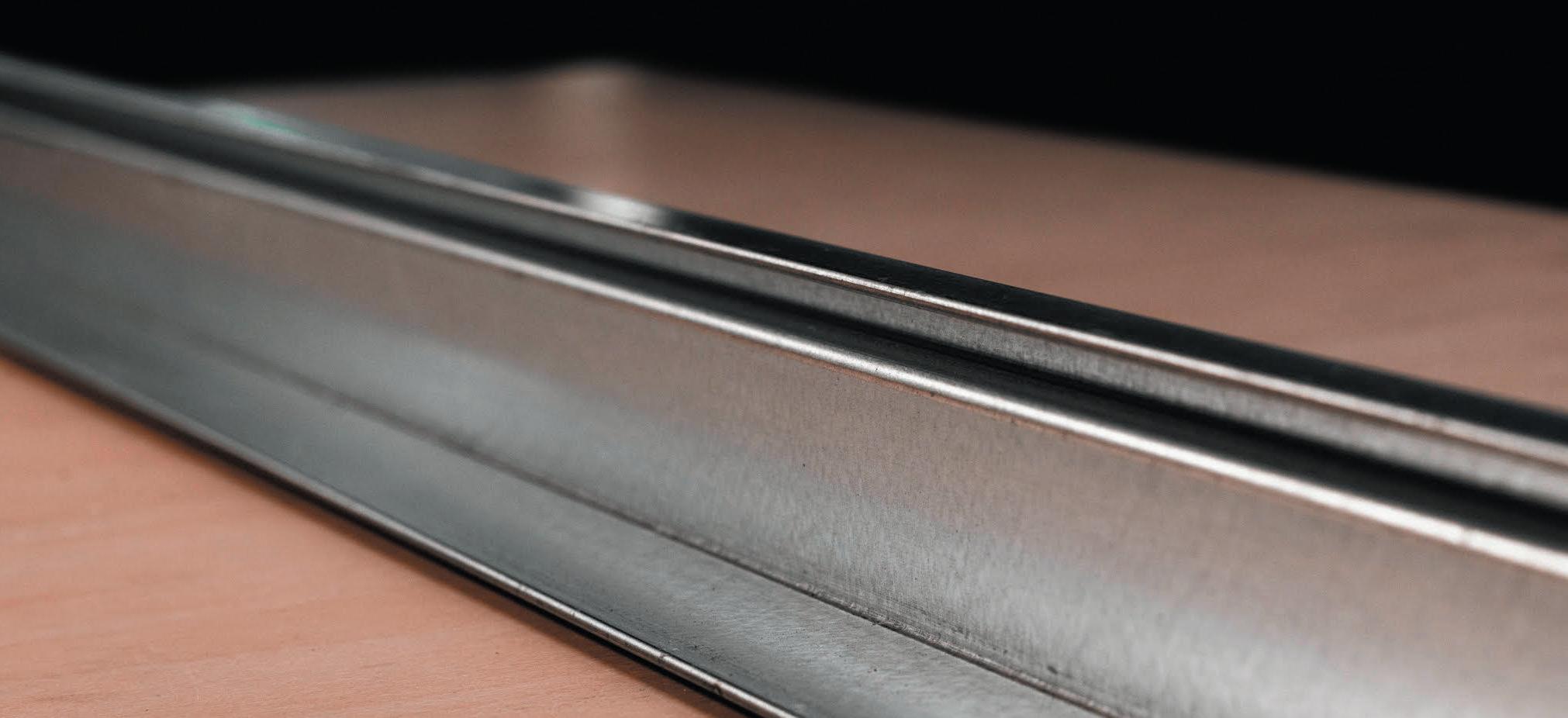





“It was the safe bet 40 years ago, but it’s not the right choice for what is going to be huge growth in solar for the next 40 years,” said Gregg Patterson, CEO of steel frame startup Origami Solar. The company’s argument for switching to steel framing: aluminum is expensive and has a huge carbon footprint.
There are some facts to back this up. According to a July 2022 review of the global metals market, cold-rolled steel was averaging $0.93/lb while aluminum was holding near $2.45/lb. According to Risen Energy, which recently added a steel frame option to its popular Titan
solar panel line, it takes 13.5 MWh of thermal power to produce one tonne of aluminum (equivalent to 11.2 tonnes of CO2), while it only takes 4.5 MWh to make one tonne of steel (1.8 tonnes of CO2). And with nearly all aluminum frames coming from China, a country that relies on coal-powered electricity, solar panel frames have a dirty energy origin.





“The aluminum frame is the most expensive component of a module after the solar cells,” Patterson said. “[With steel] you get cheaper, cleaner, higher performance and it can be domestically sourced. It hits virtually every aspect of what the industry is looking to do now.”


Steel could be the framing material of choice for the solar industry of


the future. It’s inherently stronger than aluminum, so it will more easily support the added size and weight of large-format modules. And with new corrosion coating advancements, steel is better able to withstand the increasingly temperamental elements associated with climate change.
Risen Energy is so far the only module manufacturer that markets a steel-frame option. The Chinese company reinforces its steel frame with a corrosion-resistant zinc-aluminum-magnesium coating to improve strength, cosmetics and lifespan. According to spec sheets, the only difference between a 670-W utility-scale Titan solar panel with a steel frame and one with an aluminum frame is the steelframed model is 1.5 kg (3.3 lb) heavier.
More than anything, Risen looked at frame alternatives due to aluminum’s large carbon footprint.








“Whatever your belief,” said Luke Sun, president of Risen Energy, in a press release, “environmental pollution and carbon dioxide emissions affect us all. It is simply not good enough for us to proclaim that we are making an impact of reduction of these elements by providing and using solar PV modules, we must do more. Moving to this uniquely constructed module is a step in the right direction.”
Market intelligence firm Boundless Impact Research & Analytics completed an environmental impact report for Origami Solar earlier this year and found that replacing just 10% of the solar industry’s conventional aluminum frames with steel frames would result in a greenhouse gas emission reduction of approximately 30 megatonnes between 2022 and 2030. This is



equivalent to the emissions from eight coal-fired power plants for an entire year.

Origami Solar has already built over 4 km of frames to show steel’s similarity to aluminum and will begin third-party testing. Steel suppliers have been secured; Origami now just needs module companies to sign on. Patterson said many are interested, especially since Origami’s manufacturing process can provide domestically produced steel frames that are cost-competitive with aluminum imports from China.
“Our goal is to drive adoption of frames and work with the module companies and then the racking and tracking companies to figure out how we can improve the installation costs so we drive solar in the right direction so it can scale to what the world needs. We've got to start getting off of that Chinese supply chain,” he said. SPW



LG Chem is testing its engineering plastic LUPOY as an aluminum frame replacement. The polycarbonate plastic is mixed with glass fiber to produce a flame-retardant material that maintains its shape even during temperature changes. The material is already used in household electronics and automotive applications, but LG Chem thinks it would work well as a solar panel frame. The plastic has the same level of durability as aluminum but is half the weight.

“Solar panel frames made of plastic have many advantages that differentiate them from existing frames, such as ease of installation, and therefore have great market potential,” said Steven Kim, leader of the engineering materials division at LG Chem, in a press release.
LUPOY has not yet been successfully used in any solar panel designs.







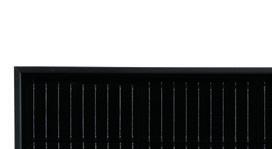
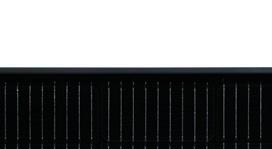
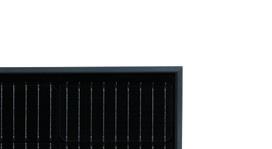
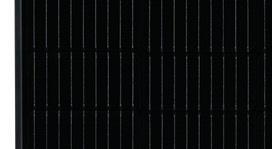


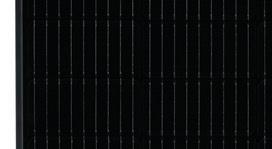

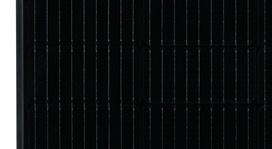
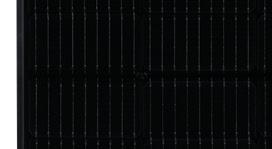

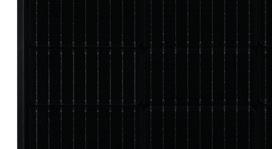




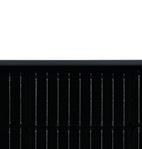

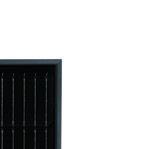
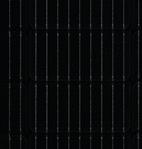

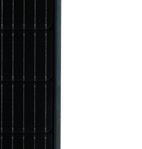





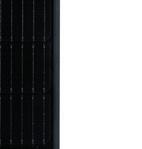


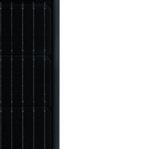






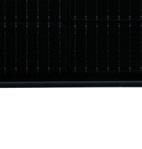


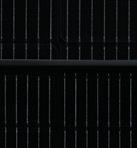


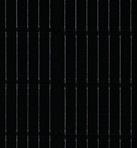
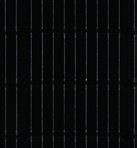
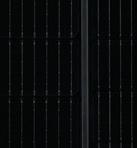



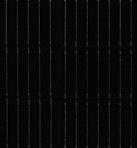









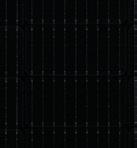
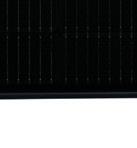
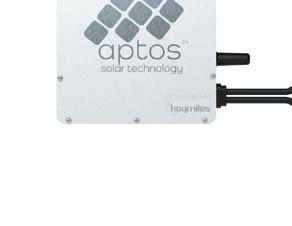






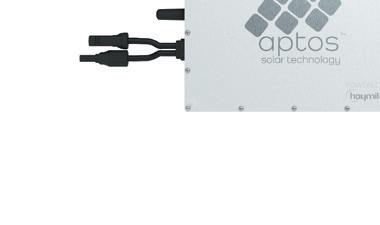






SolarEdge’s optimizer-based systems are UL 3741-certified.
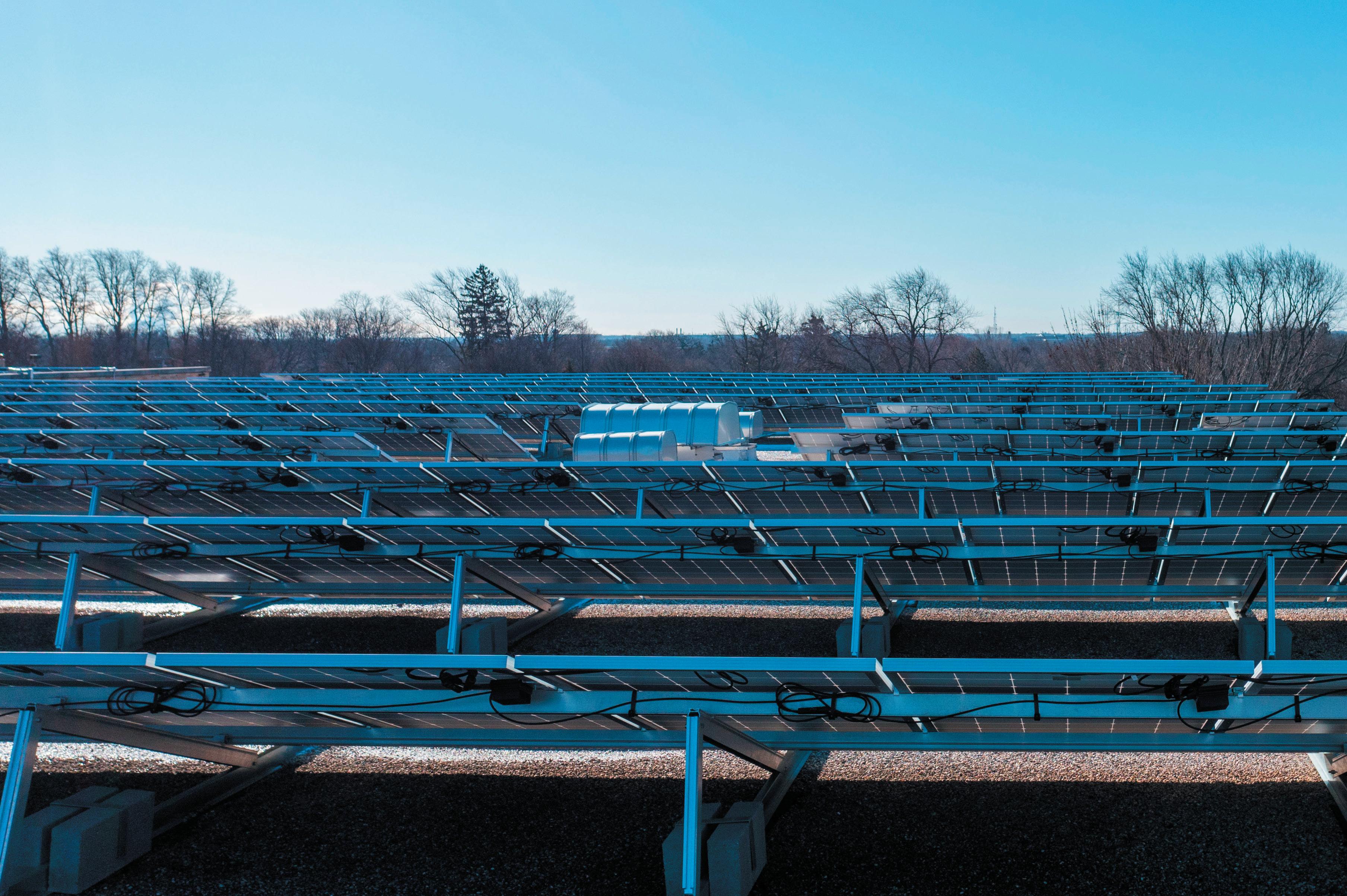
Ever since the 2017 National Electrical Code (NEC) was published, rooftop solar contractors have faced potentially time-intensive and costly safety requirements for module-level rapid shutdown. The code requires installers to use module-level power electronics capable of lowering each module’s voltage to 80 V or less within 30 seconds of rapid shutdown initiation to protect first responders. On smaller residential systems, rapid shutdown devices might add a few extra minutes of install time and minor additional cost, but on huge commercial rooftops, they create a much larger challenge.
The 2017 code did include other ways besides using MLPE to satisfy this
safety requirement, but they weren’t as easily attainable.
"Everybody is doing MLPE because that, up to recently, was the only way to meet the requirement, and right now it's probably still the easiest way to meet the requirement primarily because of equipment availability, AHJ acceptance [and] firefighter acceptance," said Ryan Mayfield, founder of solar design firm Mayfield Renewables.
That won't be the case for much longer. With manufacturing and testing finally in place, installers have a new option to satisfy fire safety requirements on solar rooftops — PV Hazard Control systems.


This option, listed as UL 3741, has been included in the code since 2020, but only now are products getting tested and certified to the standard.
To achieve UL 3741 certification, products must pass a series of tests designed to simulate situations firefighters may encounter on a solar rooftop. The testing analyzes what happens when first responders fall on damaged solar panels while wearing typical protective gear. There's no prescribed combination of solar products to satisfy this new rating; the merits of each submitted product or product combination are scrutinized during testing.
The goal of the new standard is to make rooftop arrays safer for firefighters in
It can’t shake your hand, but it can shake up your solar business.
Find out how Aurora AI can estimate your customer’s consumption, create a solar design in 30 seconds, and help you close on the spot.


an emergency. Some in the industry say 3741 certification is much more rigorous and scientific than rapid shutdown certification.
"I don't know if I'll get anybody ever on record from the code-making panels, but I have heard over and over again that 80 V was semi- pulled out of the air," Mayfield said. "[3741] is based on a collective science and a collective agreement from the firefighter community [and] the electrical community.”
So far, at least one system by SMA and Sollega and one by SolarEdge have passed UL 3741 testing. The SMA collaboration uses the company's Sunny Tripower CORE1 inverters paired with Sollega's FastRack 510 mounting system — made of polymer material.
"[SMA] thought we were a good candidate given that our racking is polymer and non-conductive, and we worked together to achieve it," said Elie Rothschild, sales manager at racking manufacturer Sollega. "What we've shown through the UL 3741 certification is that there's a high degree of safety to prevent the firefighters from interacting with the array in any way that would cause them to become part of the current path and thus be subject to a shock hazard."
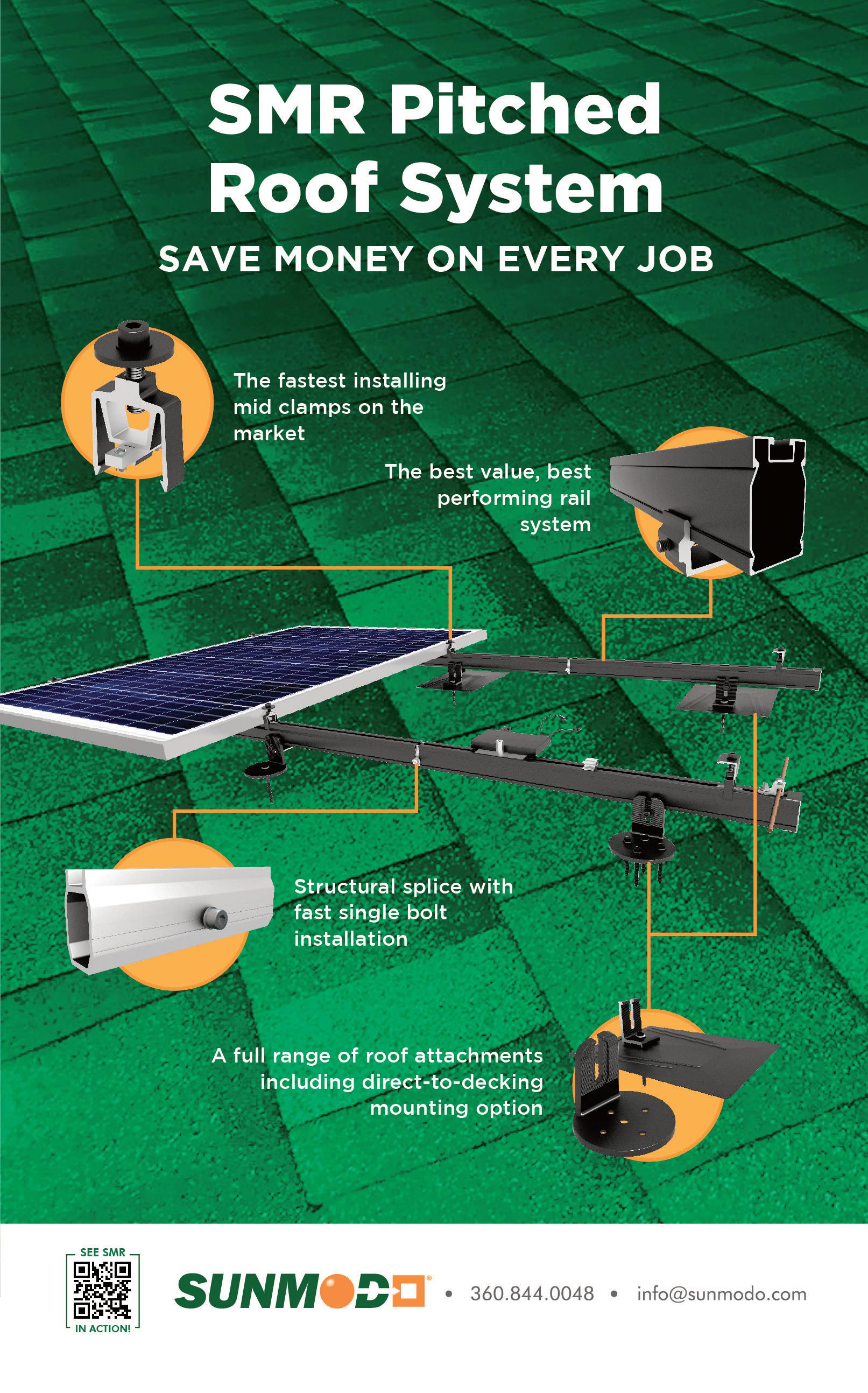
[3741] is based on a collective science and a collective agreement from the firefighter community [and] the electrical community.
IN THIS SPECIAL EDITION OF CONTRACTOR’S CORNER, longtime photovoltaic panel manufacturer Jinko Solar discusses why the company has entered the storage market. Adam Detrick, U.S. director of product management and technical services at Jinko Solar, talks about how Jinko is standing out in a crowded storage market and the company reaching a major milestone in panel sales.
Below is a portion of the company’s Solar Spotlight podcast with Solar Power World, but be sure to listen to the full episode on your favorite podcast app.
Jinko just announced that it was the first module supplier in the world to deliver 100 GW. What does Jinko attribute to this broad success in the market?
Jinko’s core mission and vision in the U.S. market, or the global market really, is to the be the most trusted supplier. We have a very solid track record on execution, customer service and customer support, and I think that’s why people keep coming back to Jinko over the years. We deliver what we say we’re going to deliver, and that covers everything from on-time delivery to the reliability of the products, product performance and having a very robust customer service organization. All of which can be attributed to just very high customer satisfaction overall and Jinko’s success.
With all the success in solar, why the decision to start o ering a residential storage system?

Residential storage and solar go together very nicely, for a number of reasons. The global, and especially in the U.S., migration to work from home has really escalated the importance of grid stability and energy independence for homeowners. People are much more dependent on their homes for their work, and so having stable energy has become much more critical than it was in the past.
What di erentiates Jinko from the myriad of other residential storage o erings in these spaces?
It is a very crowded field in one way, and then not in another.
Number one, Jinko at a corporate level has very high commitment to storage in general. We foster very good supply chain relationships, so we have supply of the key components. One of the big issues out there right now is commodity constraints on a variety of materials that go into the storage systems.
We really wanted to focus in on a single SKU. We have one system. It’s a DC-coupled system and we decided to do that because we really believe that it’s the best economic solution and the best value for the homeowner to combine the solar and storage as a DC-coupled system, because you get the synergies of the shared inverter and it keeps the balance of system component costs down.
What should installers and homeowners care about when purchasing a storage system?
Ultimately, as with most things, reliability would probably be number one. I would say strong customer support, what I just mentioned, is really a key aspect. It’s not only looking at the specifications of the system on paper — does this match the customer’s load profile and their energy usage? But is there a support network there if there’s questions or if something doesn’t come together as expected throughout the install process or if there’s confusion about how the application works.
We want to ensure that the homeowner has a really strong support network that’s consistent with Jinko’s mission and vision of being the most trusted supplier.


No, this year Jinko is also introducing the Eagle CS Storage System, which is geared toward commercial, C&I and utility applications. The Eagle CS is a fully integrated, scalable, turnkey AC-coupled energy storage system. We o er one- to four-hour battery duration, which can be configured for both C&I and utility applications. Jinko wants to bring the same level of high customer satisfaction and serviceability to commercial and utility storage as we do for residential solar and storage. SPW

In the SMA + Sollega system, wires are routed underneath both the modules and the non-conductive racking, which UL believed to be adequate to guard firefighters from a potential shock hazard when designed to specific requirements including using nylon zip ties with a necessary air gap to ensure wires do not come in contact with the aluminum module frames.
"This is going to require that we are installing it to a specific way and we're following the manufacturer's requirements so that we are meeting that standard," Mayfield said. "That's somewhat of the leap that we need to make sure that the industry hears and accepts and takes on if they're going to use this method."
Other UL 3741-certified systems are far less reliant on design for compliance. Systems like SolarEdge’s, which also passes rapid shutdown certification, use MLPE to lower the per-panel voltage enough to adequately protect first responders. The additional UL certification proves that this optimizerbased system does keep first responders safe in case of emergency.
“We don’t require any special restrictions or limitations, such as wire management, racking, inverter placement, special training, quality of work [or] ongoing array inspections to maintain compliance or other means to maintain limited access to dangerous high-voltage components,” said Jason Bobruk, director of code compliance, and Magnus Asbo, senior director of technical marketing at SolarEdge, in an email. “We reliably de-energize the entire system and remove the dangerous hazards altogether.”
All SolarEdge three-phase inverters paired with optimizers are listed as UL 3741-compliant when installed with any racking and wire management configuration.
Most rooftop racking systems are made of metal. With the non-conductive nature of Sollega's solution playing a large part in its hazard control system certification, it remains to be seen if metal racking systems will achieve UL 3741 certification.

"If you have a metal racking system, this is where it's going to get a lot harder, because as soon as you use the metal supports to hold the conductors, they're going to be in close proximity to the metal, which is going to be potentially energized," Mayfield said.
Solar Power World reached out to almost a dozen inverter manufacturers to see if they plan to submit products for UL 3741 testing. Yaskawa Solectria is looking into certification with both IronRidge and Sollega, while Ginlong Solis is in talks with Sollega as well. Chint Power Systems is planning to get all its 1,000-VDC inverter models UL 3741-listed. Fronius,
APsystems, Tigo Energy and Growatt said they do not have plans in the works, and GoodWe did not respond by press time.
What happens to rapid shutdown?
While the new standard is a welcome addition for installers, there's still a place for rapid shutdown systems in the mix. It will take some time for building departments to get comfortable with UL 3741 systems, and the current design constraints necessary for some products to meet the standard mean not all solar layouts will allow it.
In Sollega and SMA’s collaboration, for example, inverters must be mounted within 1 ft of the array to comply with its UL 3741 certification.
"Certainly, there will be systems that are difficult to design within those constraints. We think having both solutions available is the right approach," said Brett Henning, commercial product manager at SMA America.













Rapid shutdown device manufacturer Tigo Energy sees no reason to change what's working.
"Right now, Tigo has no plans to create solutions for the UL 3741 standard. Module-level power electronics remain the best solution for the marketplace because it has the flexibility of providing rapid shutdown and/or module-level monitoring and/or optimization," said James (JD) Dillon, chief marketing officer at Tigo. "We will certainly react to the needs of installers but have yet to hear a strong demand signal from the marketplace for this alternate standard."
When the time does come that most installers are looking for 3741-certified systems, Mayfield said there's still a role for the module-level rapid shutdown
makers. Instead of selling rapid shutdown devices on a one-per-module basis, manufacturers could certify MLPE that shut down up to four modules in series under the new PV Hazard Control listing, cutting down on cost, install time and potential O&M hassles.

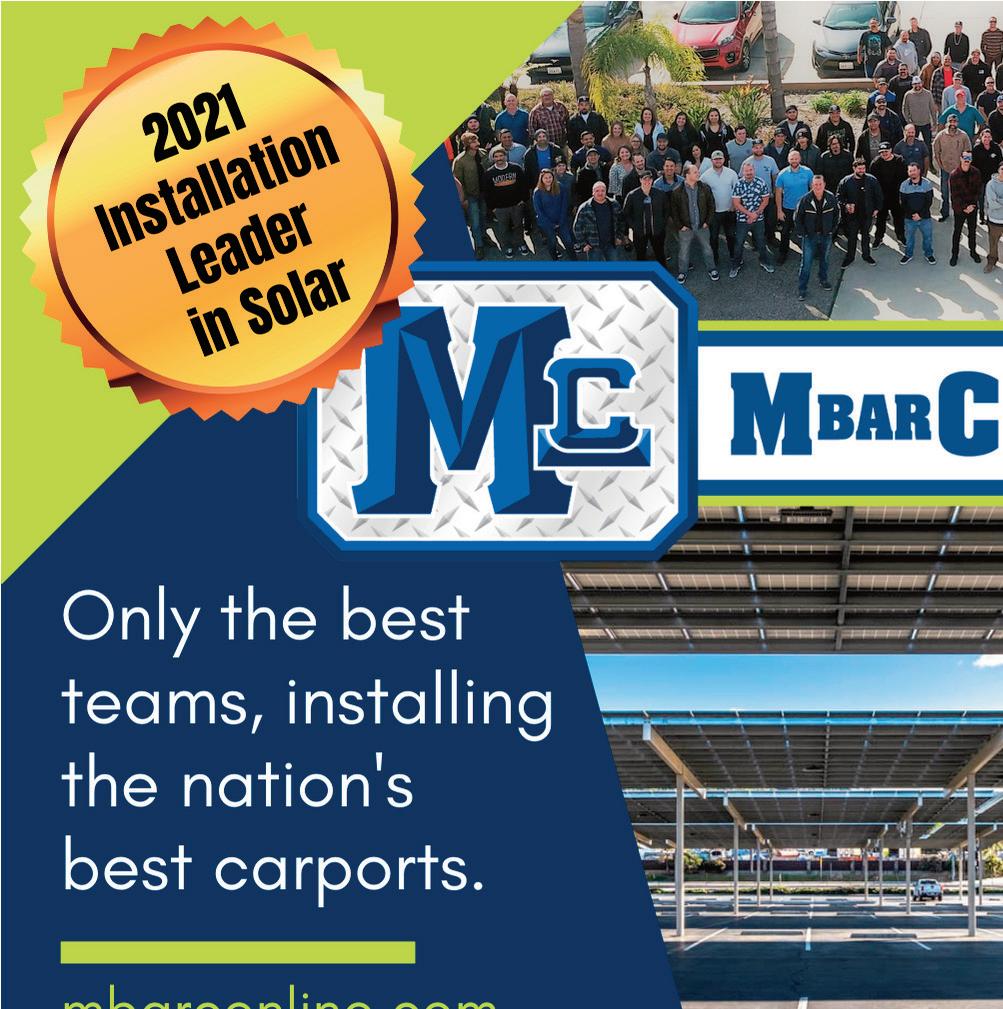
Installers can expect to see even more options for fire safety compliance on rooftops in the near future.
"I think it's great that we're finally seeing manufacturers stepping up in order to provide hopefully what will be considered safer systems," Mayfield said. "I think that's going to help drive innovation within the industry, drive costs down and, hopefully, with the goal being putting up a safer system in the end because we can test to a standard." SPW
I think it's great that we're finally seeing manufacturers stepping up in order to provide hopefully what will be considered safer systems.






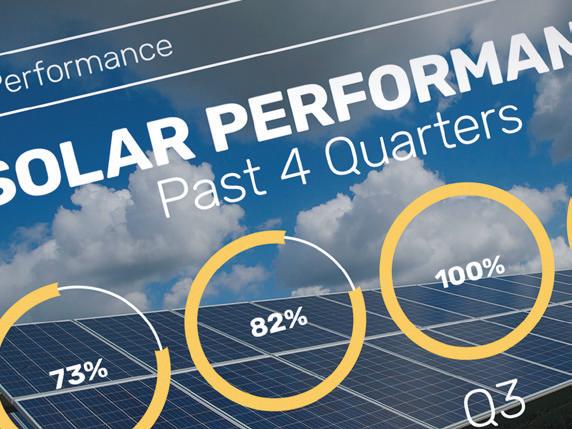











Sealing the holes required in most rooftop solar installations is one of the most critical steps in ensuring a waterproof installation. After drilling pilot holes into roof rafters, contractors will fill them with sealants such as MS polymer, silicone or butyl to prevent leaks throughout the array’s lifespan.
There isn’t a one-size-fits-all sealant in the solar industry, and selecting the proper waterproofing method depends on the AHJ, temperature and moisture/ precipitation levels in the environment where an array is being installed.
“You’re poking a hole in a perfectly good, sealed roof, and a solar installer does not want to be responsible for any
leaks,” said Rocky Stroud, national sales manager at rooftop sealant manufacturer Chem Link. “[Sealants have] been a learning curve for solar people because they’re not roofers, and this is very invasive to the roofing material.”
Sealants proven to meet specific environmental needs have long been available from solar and roofing product distributors like Chem Link. But how those sealants are applied is changing — and so is flashing, another crucial step in waterproofing a rooftop solar project.

Flashing used in general roofing projects is a metal sheet that creates an additional
barrier for waterproofing. It covers roof penetrations and is bonded to the roof using an adhesive or sealant.
“At the moment, the sealant is actually a ‘belt and suspenders’ approach to waterproofing,” said Sue Stark, senior manager of training at solar mounting manufacturer IronRidge. “We know that our mounts are waterproof without sealant, and only require it in the pilot hole, because the testing is done that way. However, most people will use sealant, and that’s more of a roofing manufacturer’s installation instruction than it is ours.”
Solar systems installed on comp shingle roofs often use a similar metal
flashing that slides underneath a layer of shingles. A “U” of sealant is applied to the bottom of the flashing to keep the metal sheet in place, diverting rainfall, snow and other moisture away from roof penetrations.
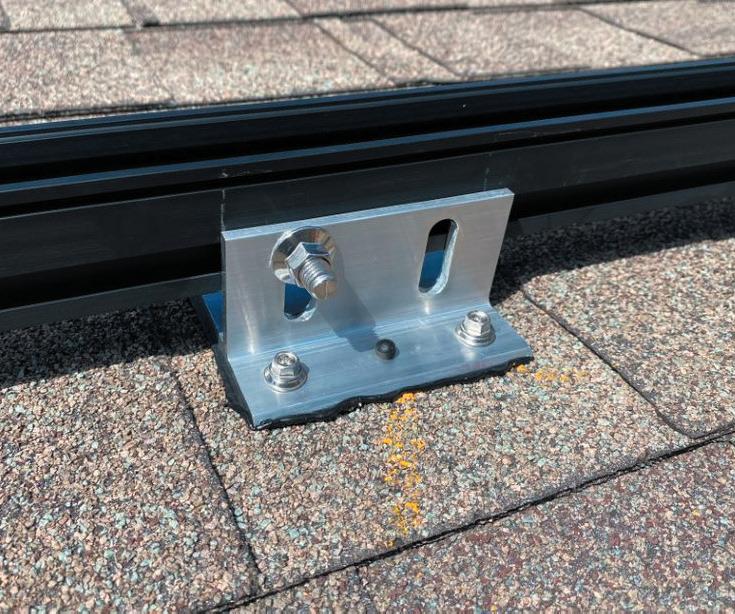
“The great debate is metal flashing vs. non-metal flashing, and there is no wrong answer,” said Johan Alfsen, senior director of training at solar mounting manufacturer K2 Systems. “Pick your flavor and do what you want, but at least these products are tested. Back in the day, they were just putting sealant all over the L-foot. I call that ‘goop and a prayer.’”
Recently, many solar racking manufacturers have developed topmounted attachments that go through the shingle and have a much smaller profile and fewer pieces than their metal flashing counterparts. Each top-mount has a different method for applying sealants, and some refer to it as chemical flashing, meaning the sealant is the primary waterproofing method on the attachment.
One example of chemical flashing is Unirac’s FlashLoc line of top-mounts, which is flashed by injecting sealant into a built-in reservoir that waterproofs the roof penetration it’s installed over. QuickBOLT’s flagship mount QuickBOLT2 uses proprietary Microflashing — a stainless steel compression-washer paired with EPDM rubber — to seal penetrations, and it can be installed with or without extra sealant. Then there are Roof Tech and K2 Systems, which use pre-installed butyl pads on the bottom of their over-the-shingle mounts that seal penetrations as bolts pass through the sealant.
“The brackets keep getting smaller, or at least engineered in a manner in which they’re lighter and less invasive,” Stroud said. “Personally, if it’s my roof, the fewer holes the better. But I also want
it to stay there, and I really don’t want it to leak, so I think the sealant is as important if not the most important thing from a longevity standpoint, because it’s the only thing keeping water from coming into your house.”
Many racking manufacturers pair sealants with their mounts. For those that don’t, there are a range of roofing sealants with different temperature, precipitation, movement and UV ratings. The simple way to select the right sealant for a specific environment is to read the product label and determine if it meets the conditions of a jobsite.
Each roofing sealant is rated to perform within a temperature range. Some sealant temperature ratings can go as high as 300°F, which is ideal for arid regions like the Southwest, where temperatures on a roof can
The great debate is metal flashing vs. non-metal flashing, and there is no wrong answer. Pick your flavor and do what you want.K2 Systems
reach and exceed 150°F. Despite the challenges of installing in those high-temperature conditions, sealant application tends to be more difficult in colder climates. “Anything below freezing is not recommended. Our rule is 32° and rising is fine. Thirtytwo degrees and falling, you’re probably not going to want to use a sealant,” Stroud said. “Chem Link’s a little unique where you can actually apply our sealants in sub-zero weather — they just won’t cure until it comes above 32°.”
Curing is the chemical reaction of turning a liquid into a solid material. One method is moisture curing, which means once the sealant is exposed, it will pull



moisture from the air and harden. While some sealants can bond in moist conditions, it’s not ideal to install them during rainfall. Alternatively, there are sealants that will not bond when exposed to moisture.

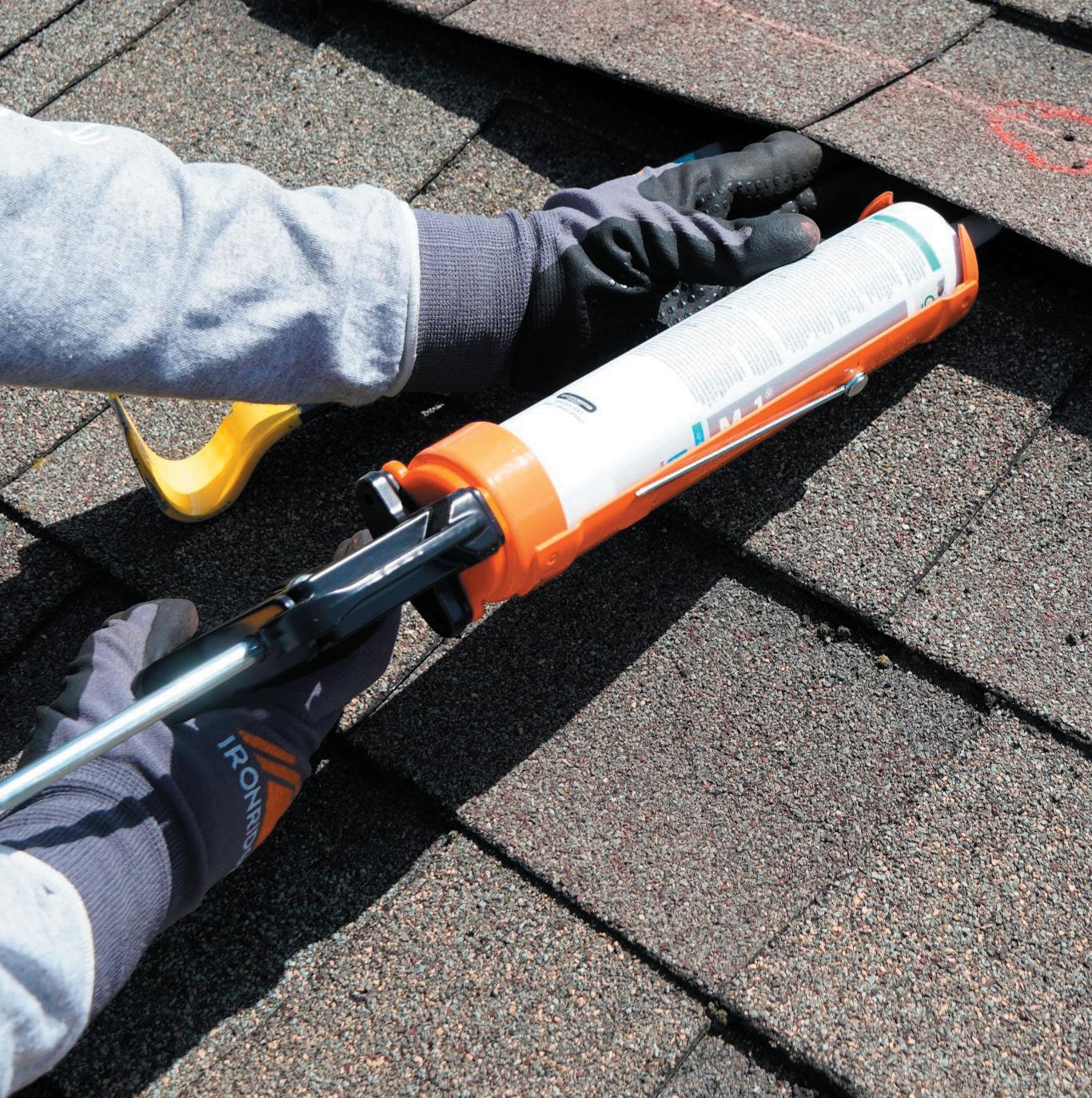
While a solar array is secured to a rooftop, there is still minor movement happening in the system. Matter exposed to the elements — whether that’s below freezing or higher temperatures — experiences thermal expansion and contraction, as well as other natural forces like wind that cause movement. That’s why it’s necessary to select a sealant that allows for movement without breaking. Sealant movement rating






is determined by percentage, and the recommended range is between 35 and 50%, according to Stroud.





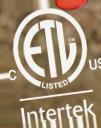





“Everything is on the move,” he said. “You don’t want to use Liquid Nails or anything that’s glue, because it just means that whatever it’s stuck to, something is going to give, but it’ll be something that you don’t want to.”
Installers should also steer clear of sealants that are incompatible with specific roof materials. Chem Link recommends avoiding clear adhesives on asphalt roofing because when sunlight passes through a clear sealant, asphalt can leach into it and break down the adhesive over time. Opaque or solid-colored sealants are the safer choice.


UV ratings disclose how effectively a sealant will perform in direct sunlight. For a system that is built to be exposed to the sun, it’s necessary to invest in adhesives that can withstand those conditions.





“You should be looking at sealants that are made for professional roofing,” Stroud said. “You don’t want to use something that you’d use around your siding. There’s a big difference between caulking and sealants. It’s not just a word, but legitimately there’s just a big difference.”
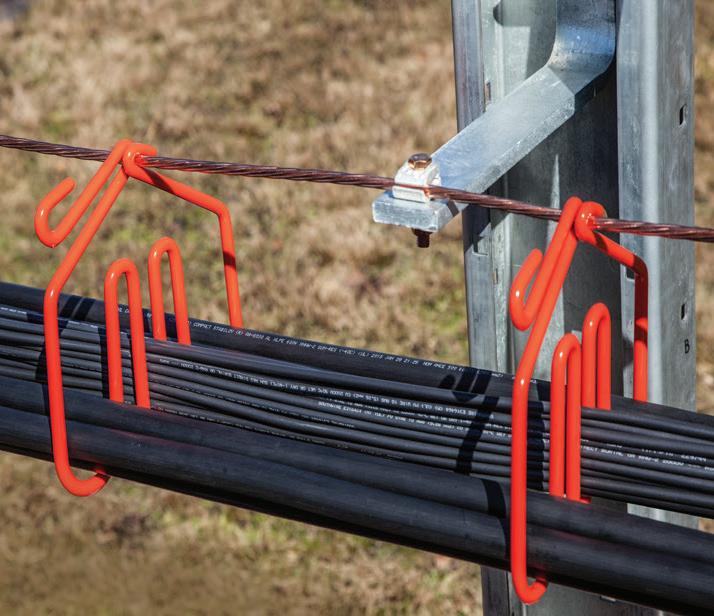
Mounting models and configurations may change, but if there’s a roof penetration that needs waterproofing, then there’s a sealant that can handle it.




















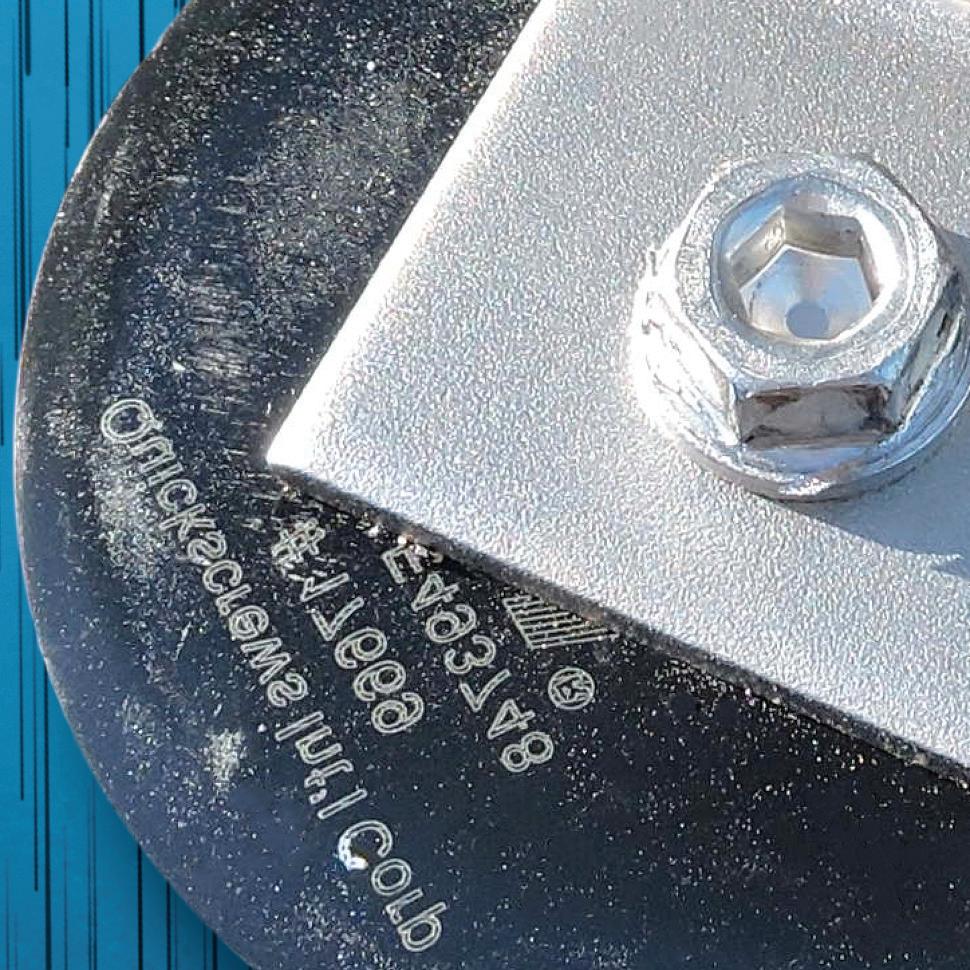






Bells and whistles are great, but sometimes the basic model is all that’s needed for energy storage.
When solar customers and power-concerned homeowners aren’t interested in or able to take advantage of load-shifting and demand arbitrage opportunities managed by energy storage systems, there are simpler products available today just for emergency backup. No longer do contractors have to suggest a gas generator or a bank of lead-acid batteries; many companies offer portable and powerful lithium-ion systems that can support customers looking for peace of mind during a blackout.

This category of energy storage is often referred to as “solar generators” and has been mostly marketed to adventurers on the go — those camping, traveling, tailgating and working off-
grid. These battery systems have lower capacities than stationary residential systems like the Tesla Powerwall and LG RESU, but they are expandable for specific power needs. They can be charged by portable solar panels or through the grid. Depending on the source of charging electricity, solar generators can be very clean. And best of all, they can be used to back up appliances and loads in the home at a fraction of the price of a stationary system.
Here are a few portable energy storage systems and solar generators that are increasingly regarded for emergency backup in the home.
Likely the most popular portable lithium battery system comes from Goal Zero. The company’s Yeti 6000X Portable
Power Station has an initial capacity of 6.071 kWh and uses NMC batteries with a 500-cycle lifespan at 80% depth of discharge (DoD). Yeti 6000X has 2 kW of continuous power and 3.5 kW of surge power. The station has seven output ports, but it can also be connected to a home’s electrical panel to support four essential circuits.
While Yeti 6000X is the company’s most powerful starting unit, Goal Zero offers many setups to accommodate various power needs. Customers just need one Goal Zero power station as a base, and then storage capacity can be expanded through cheaper lead-acid battery add-ons. Because of their size and weight, the lead-acid batteries are stationary, while the lithium power station is portable. The Yeti Tank Expansion Batteries come in a pair for 2.4 kWh of additional power capacity.
‘Solar








[lithium-based system] but expand the battery,” said Bill Harmon, GM at Goal Zero. “You can add as many [leadacid batteries] as you want. The customer can just plug them in. Suddenly, you have the portability of the lithium battery and the inexpensive lead-acid batteries sitting at
that Goal Zero has recently seen “almost an even split” between customers buying Yeti systems for home backup vs. outdoor recreation, but more than 70% indicate they intend to

“Our system is for all the people in the country who don’t have $15,000 to spend on an energy storage installation. And then when I’m done, all I have is something permanently installed in my home,” Harmon said. “Yeti is for those who are sensitive to what they’re
The Yeti 6000X is advertised online at under $6,000 with each two-battery lead-acid expansion priced under of a licensed electrician, Lycan can be connected to a

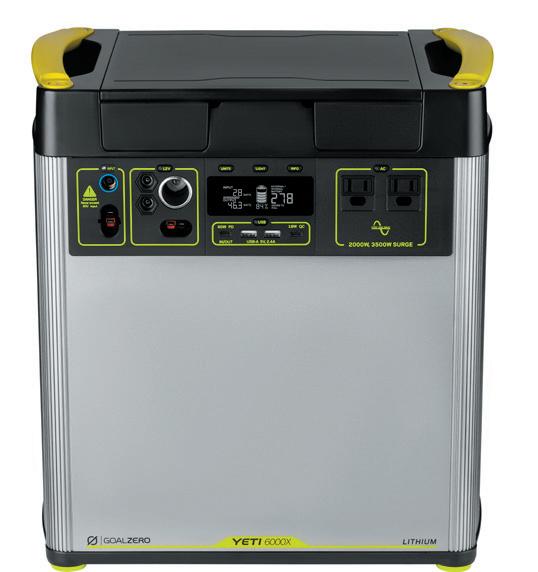














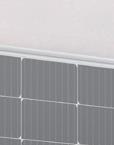





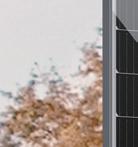

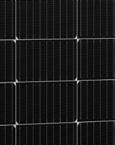



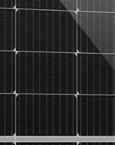

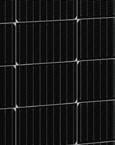


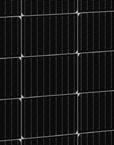
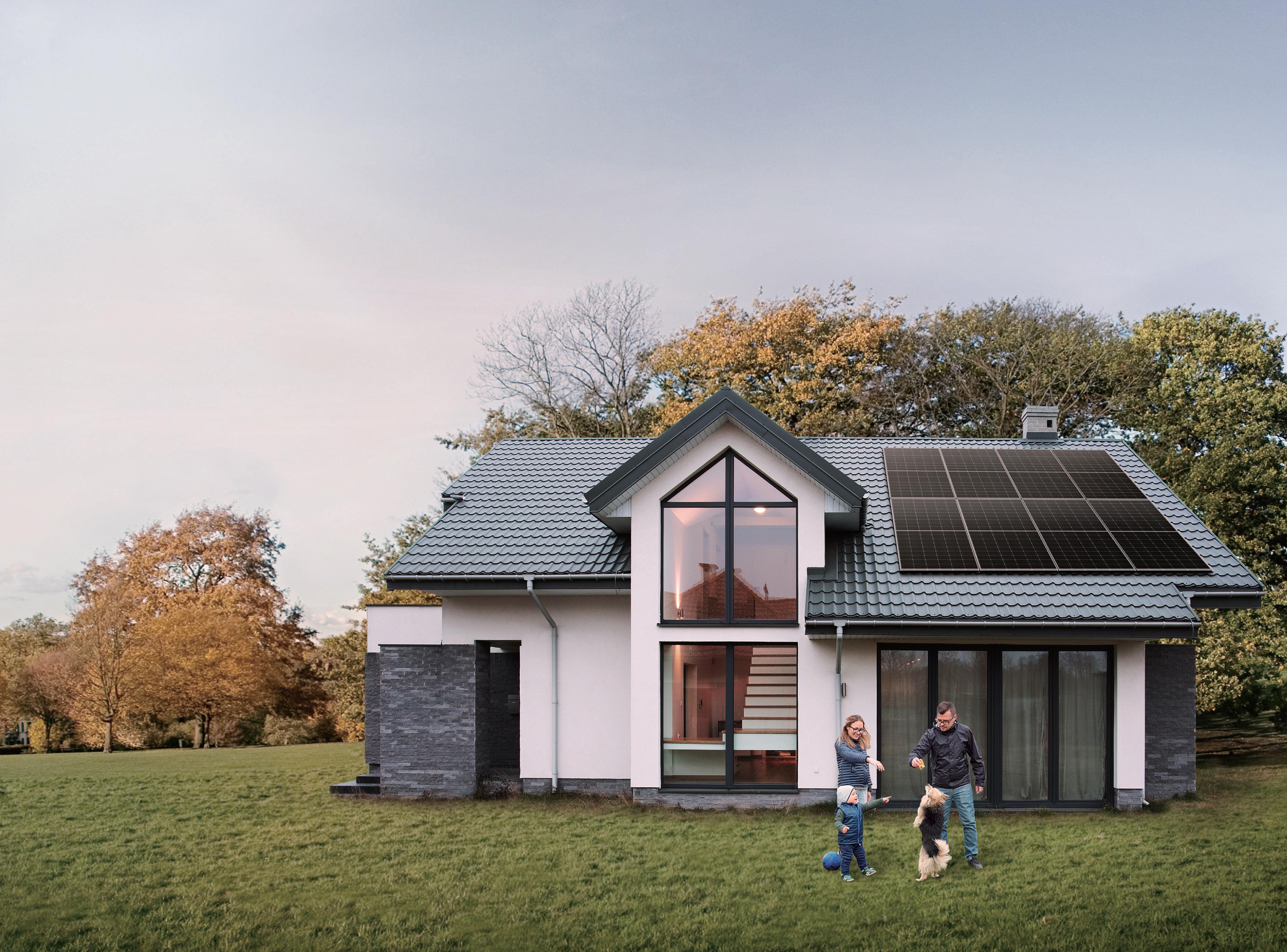

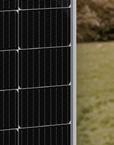





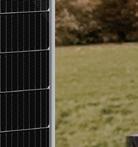







Propelling the transformation into the terawatt era with
Renogy reps told Solar Power World that while Lycan is a portable unit (it’s attached to wheels and is rated for outdoor use), most customers are just using it for emergency backup.
“Most customers use Lycan as their source of power generator via solar,” the rep said. “When used in home situations, customers install a sub-panel to divert part of their home’s appliances to be supported by Lycan instead of the grid.”
The 4.8-kWh unit has a continuous power output of 3.5 kW and a peak power output of up to 7 kW, with AC outlets directly on the system. It is equipped with circuit breakers and surge protection devices.
One additional benefit of the Lycan: It does not require a permit to install if it is used for a fully off-grid situation.
The system is advertised online at under $5,200.
Bluetti EP500
Bluetti, an off-grid power solutions company, has a line of solar generators and its own portable home battery backup system.

The Bluetti EP500 Solar Power Station is a 5.1-kWh system on wheels, and its LFP batteries have a 3,500-cycle lifespan at 80% DoD. Two units can be connected for up to 10.2 kWh of capacity. One EP500 has a 2-kW continuous power output rating with a peak of 4.8 kW.
A licensed electrician can connect the EP500 to a building’s main electrical box through the Bluetti Sub Panel.
A portion of the user’s manual does show how roof-mounted solar panels can charge the station, as long as they do
not use microinverters. EP500 comes with its own sine inverter, so that panel-level inversion would not work with the system.
The system is advertised online at under $4,600.
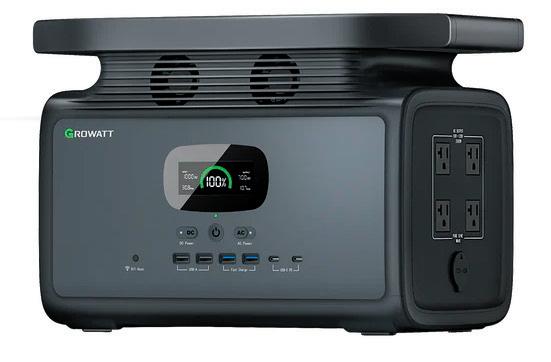
Growatt, a company largely known for its residential inverter line, also has a portable power system that boasts 12 outlets. The Infinity 1500 has an initial capacity of 1.554 kWh but can be expanded up to three units for 4.662 kWh of total storage power. The NMC batteries have an 800-cycle lifespan at 60% DoD.
Infinity 1500 is rated at 2-kW of continuous power output with a 4-kW surge.
In addition to grid and solar charging capabilities, Growatt has the option for the Infinity 1500 to be charged through an EV charging station.
Infinity 1500 is currently only available in the United States, but Growatt has not yet begun shipping the product. No pricing information is listed at this time.
Maybe one of the more interesting “portable” lithium battery systems that
recently hit the market is the 131kWh battery in the new all-electric Ford F-150 Lightning truck. By using a bidirectional charger, the truck’s big battery could provide three full days of emergency backup, based on average home consumption.
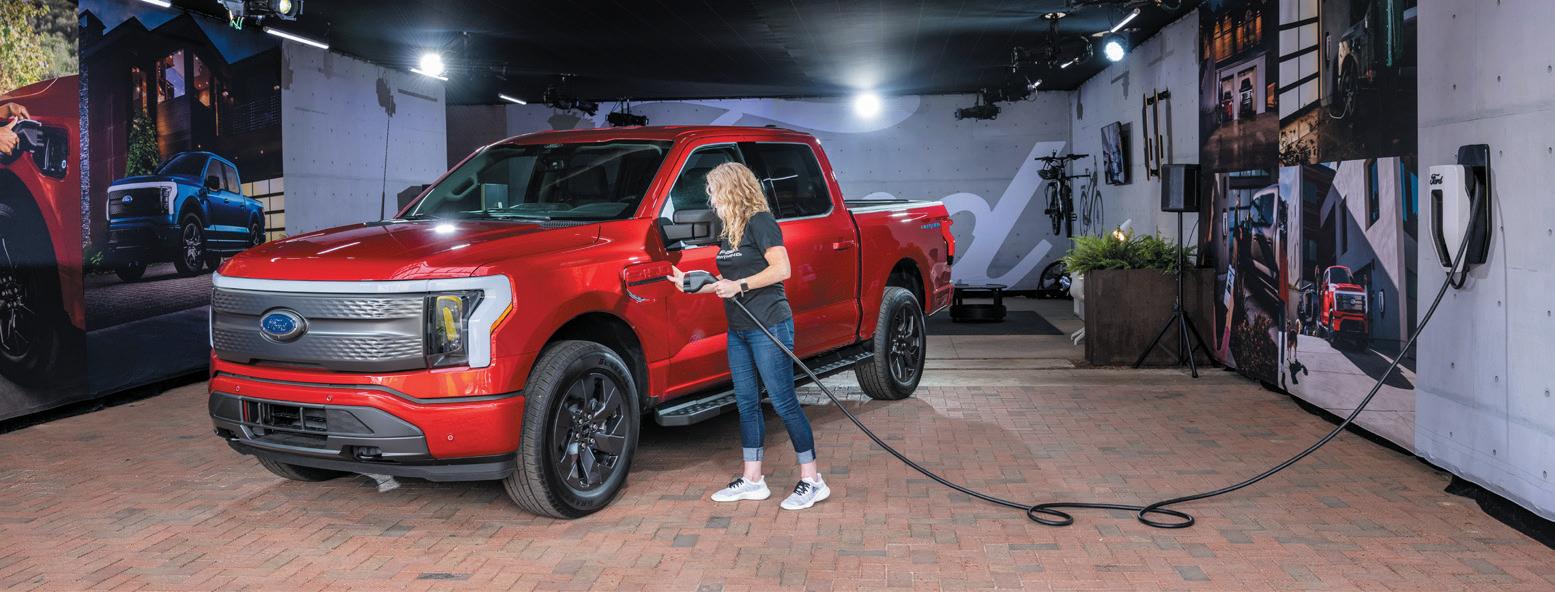
The F-150 Lightning hit the road over the summer, with solar installer Sunrun working as the preferred installer of its home charging solutions. California utility PG&E is testing Ford’s Intelligent Backup Power bidirectional charging capabilities as on-demand power sources for homes.
Sunrun public relations senior manager Wyatt Semanek said it’s still too early to know if customers are buying the Ford F-150 Lightning for emergency backup, but he did say that initial order data does suggest that consumers are eager to use the bidirectional charger in their homes.
“The size — roughly 10 Powerwalls — and capability of the battery, plus the utility of a truck, makes it a very attractive backup alternative,” Semanek said.
With the successful operation of Ford’s Intelligent Backup Power system, it could more quickly open the door to other bidirectional charging efforts from companies like Wallbox and Emporia, and lead to more EVs being used as standby backup power. SPW








The biggest solar tradeshow in the United States is back after a two-year pandemic hiatus. We’ve compiled a list of new products to check out at the Anaheim Convention Center Sept. 19-22, from panels to software and everything in between. We’ll be reporting from the show floor and look forward to catching up on the latest industry trends in person!

AIONRISE • BOOTH #2254





















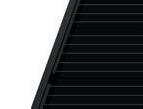
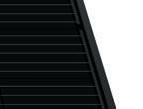



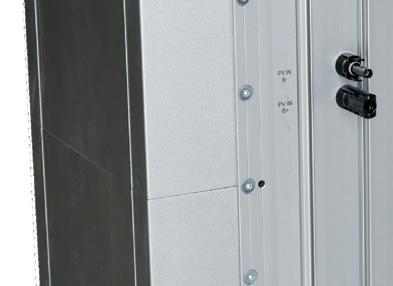
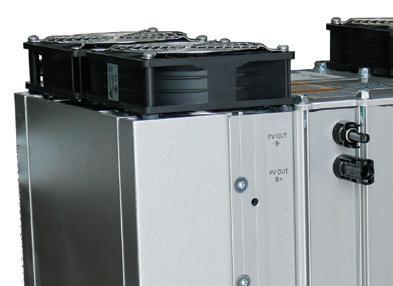
AIONRISE Holding owns fully automated solar panel manufacturing located in the country of Georgia. The company’s premium-quality PV modules are manufactured using Europeanmade components and are TUV and UL certified. AIONRISE tests all components of the BOM and each solar panel to comply with the highest standards of power output and long-term durability.

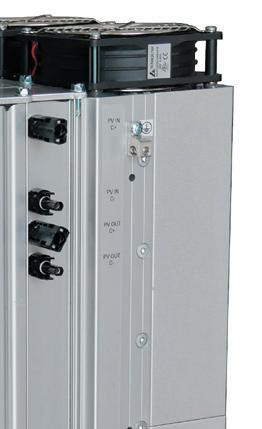

The SPOT is Alencon’s galvanically isolated, uni-directional DC:DC conversion solution. The SPOT can be used for a variety of applications including, solar, fuel cells and battery energy storage. The SPOT Version 7 offers higher power in the same form factor of previous versions.
AWG’s PowerGuard 15 kV, 25 kV and 35 kV cables are intended for use in wet or dry locations for distribution of single- or threephase medium voltage power. AWG holds the nation’s largest inventory of MV cables.
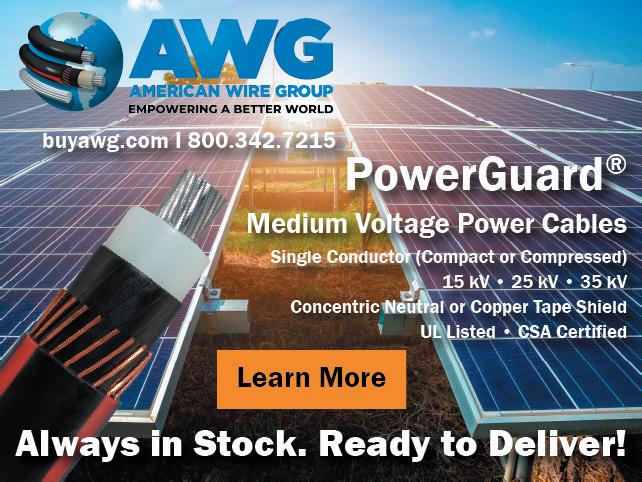


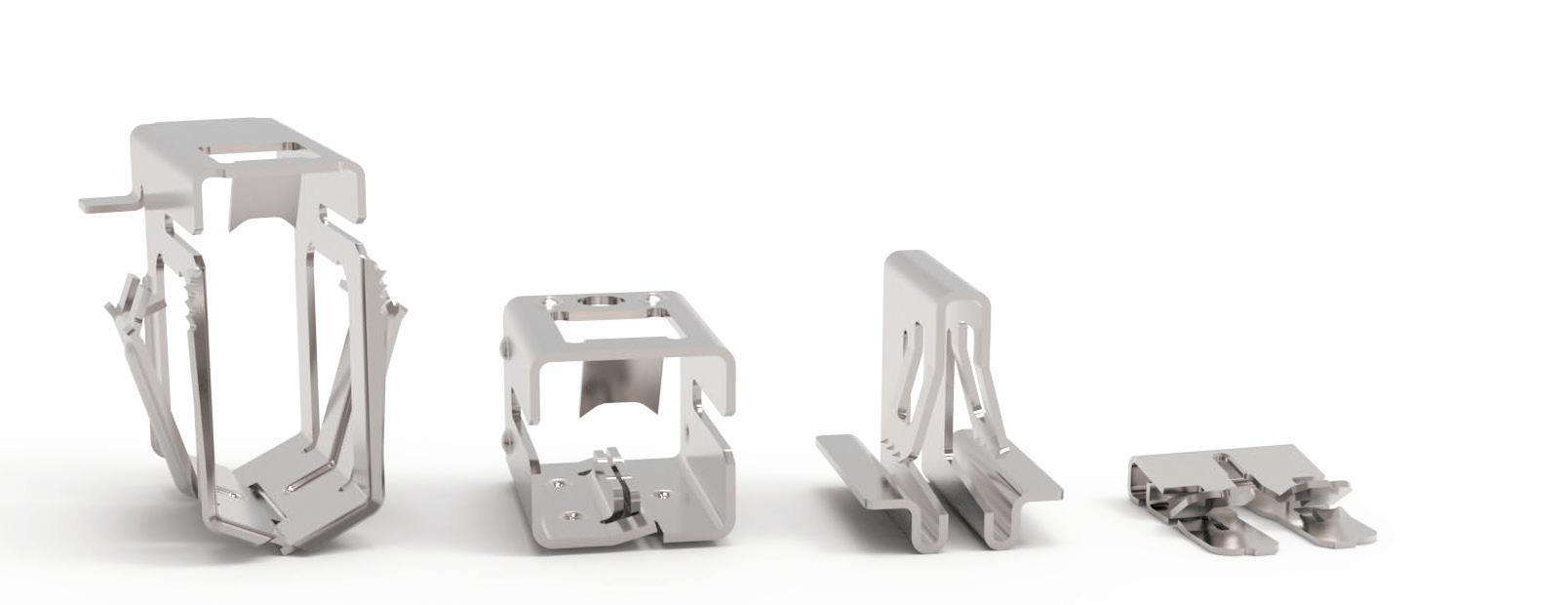
The TITAN Duo with ground screws is ideal for projects with glacial till, dense soils and rock. The system features telescoping posts to adjust for topography and has liberal slope tolerances. The racking is a continuous row design to optimize every project. It is the installers’ choice for ease of stringing and has integrated wire management.







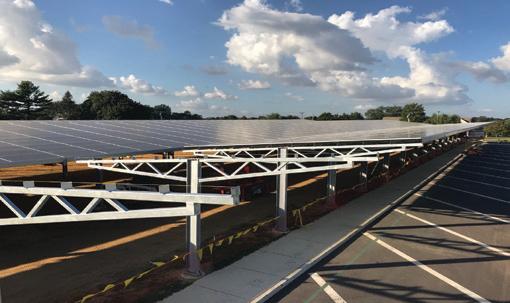












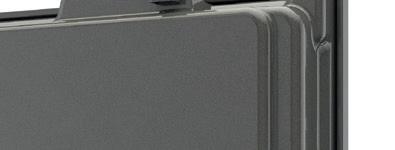


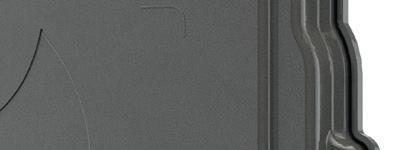



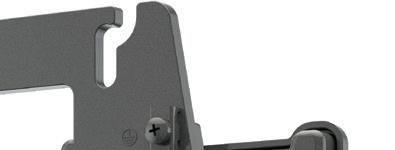
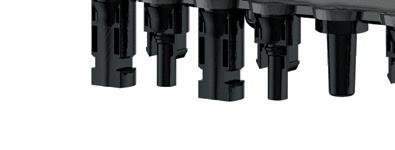




APsystems introduces the QT2, a new three-phase microinverter for C&I applications. The QT2 connects to four PV modules, is rapid shutdown and UL 1741 SA (CA Rule 21) compliant and comes in 1,728-W (208-V) and 1,800-W (480-V) output models, maximizing energy production while providing all the benefits of MLPE systems.









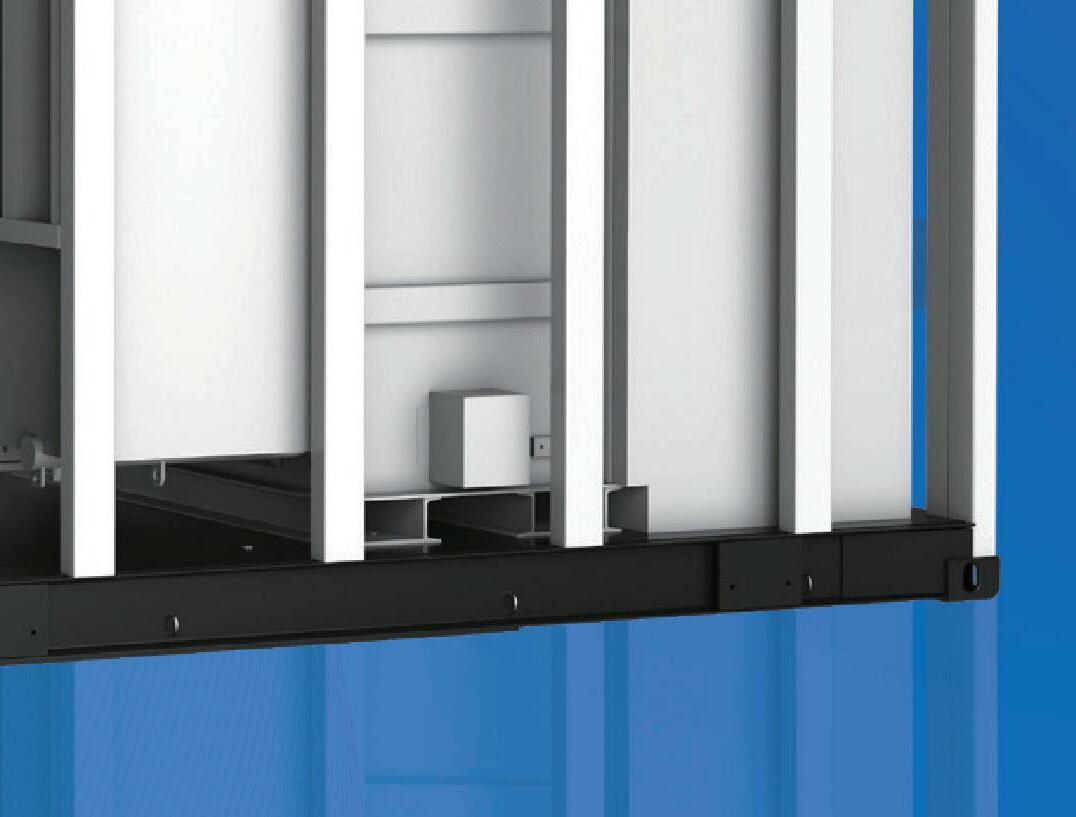
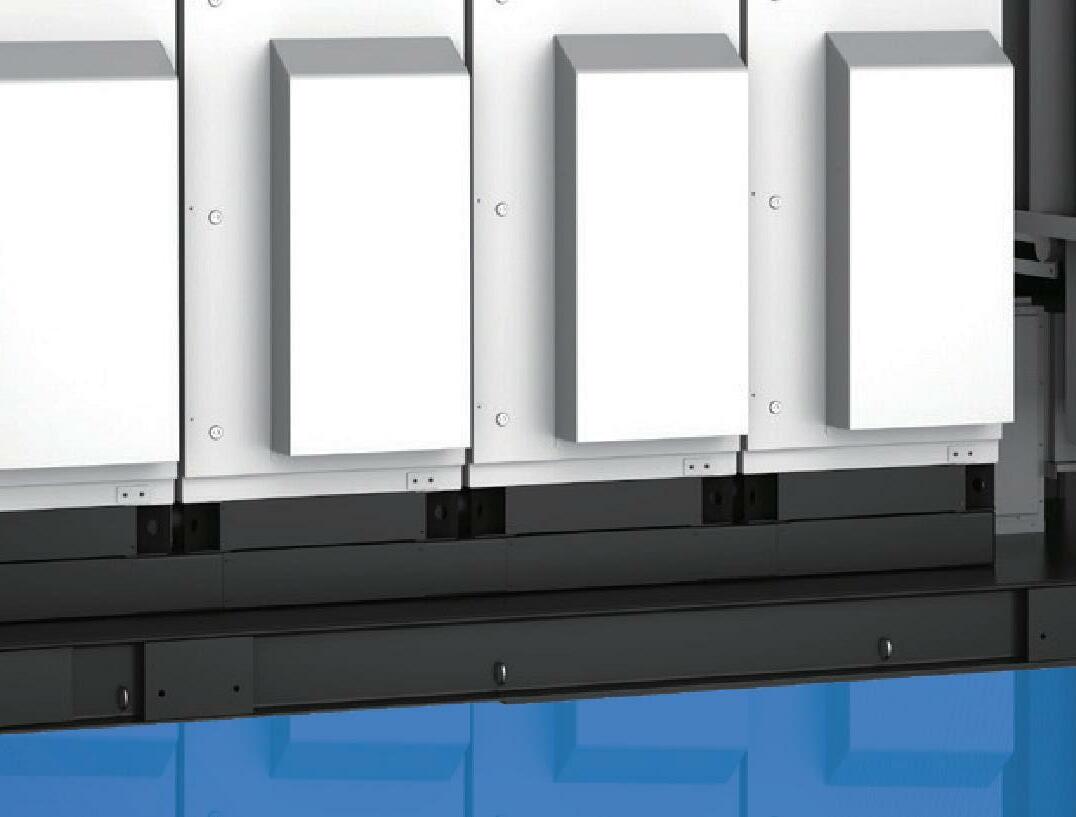

Array’s highly engineered products create value and ensure reliability. Now offering STI Norland products in addition to its trusted trackers, Array is one of the largest solar companies and renewable energy innovators worldwide, making it the perfect choice to handle any unique or diverse requirements your site may have.

SOLAR • BOOTH #2464




Blue Planet Energy’s Blue Ion HI makes its debut appearance at RE+ as the newest addition to a suite of Blue Ion energy storage solutions. Blue Ion HI is engineered for streamlined installation and features inherently safe LFP battery chemistry, stackable design for easy expansion and unmatched 15-year performance warranty.
Powered by Aurora Solar’s proprietary computer vision algorithms, Aurora AI generates 3D models in 30 seconds at the click of a button. Available in Design and Sales Modes within the Aurora application, Aurora AI enables design and sales teams to scale intelligently and close deals faster without sacrificing accuracy. BRIGGS & STRATTON • BOOTH #3680

The SimpliPHI ESS features innovative modular technology, allowing the system to scale power and storage capacity independently. Leveraging a 6-kW hybrid Inverter, a 4.9-kWh LFP battery and the EnergyTrak control system, the SimpliPHI ESS delivers peace of mind and reliable performance for real energy savings.











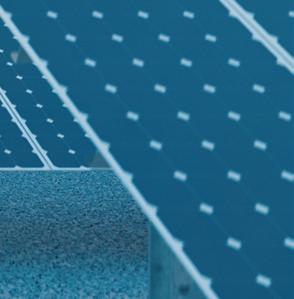




















































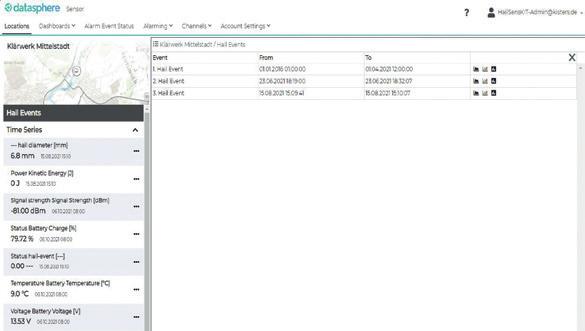
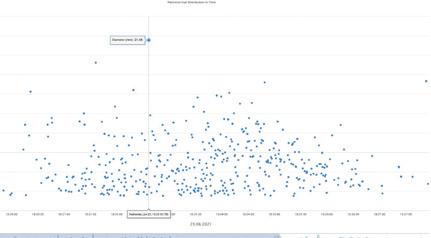












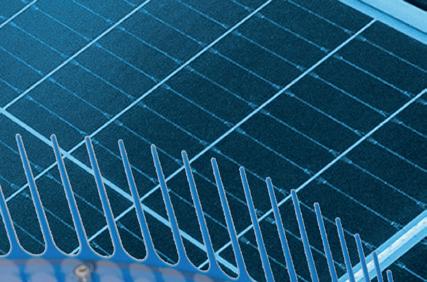

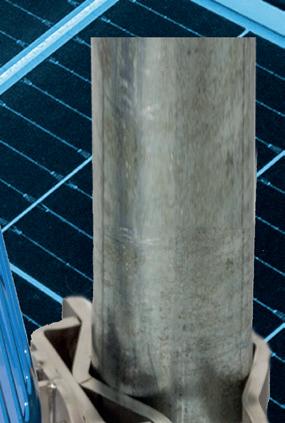






























BURNDY/HUBBELL • BOOTH #1862




























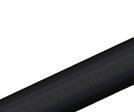









Burndy Protective Ground Studs are the perfect addition to upcoming renewable projects. A ground stud product is used when servicing pad-mounted transformers. Its job is to provide a safe method for the maintenance of equipment. Available in various configurations, ball stud sizes and ASTM F-855 ratings.



CAB Solar pioneered above-ground cable management in utility-scale solar applications. The patented Integrated Grounding System uses custom-designed hangers and a messenger wire acting as the EGC/GEC. CAB Solar is manufactured by the Cambria County Association for the Blind and Handicapped, which provides employment and rehabilitative services for persons with disabilities.
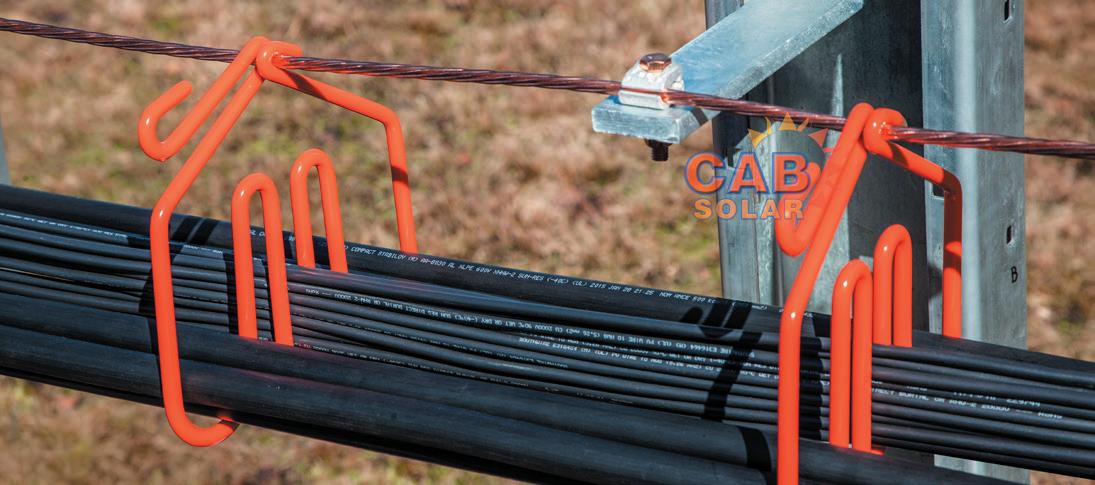
Canadian Solar’s EP Cube is a flexible, intelligent and complete energy storage solution comprised of a Smart Gateway, hybrid inverter and battery modules available in 9.9-, 13.2-, 16.5- and 19.8-kWh capacities. It is expandable up to 120 kWh with six units connected in parallel.
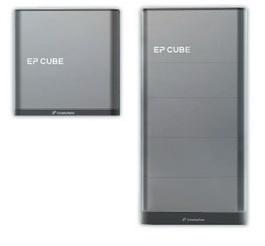
CHEM LINK • BOOTH #1952
Chem Link’s E-Curb Systems can turn the weakest part of a building’s roof into the strongest. Economical thinner-walled, lighter-weight E-Curbs are composed of tough vinyl resin and are engineered with a flange to ensure a watertight seal. They are easy to install, solvent-free and available in various sizes and shapes.










CONTINENTAL CONTROL SYSTEMS • BOOTH #1960
Crown batteries are built with 100% renewable energy — and field-proven in 20,000+ RE installations across six continents. 100% U.S. engineered and manufactured (ISO 9001:2015-certified).


3D prototyping, robotic assembly and 251-pointinspections improve durability. Tired of greenwashing? Crown’s Sustainability Factbook reveals what shrinks carbon-footprints and operating costs.
TOOLBASE • BOOTH #2682


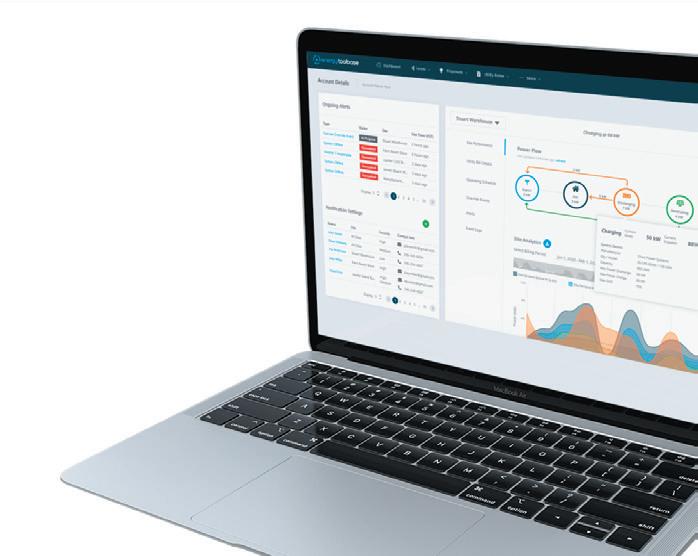
CCS specializes in high-accuracy PV production, consumption and export limiting power metering equipment. Products highlighted at RE+: revenue-grade split-core current transformers (0.2% and 0.3%), a new line of flexible Rogowski coils, new WattNode Modbus Meters, custom NEMA enclosures and a complete offering of multi-channel, multi-circuit metering systems. enables participation in
Trusted monitoring software providing real-time insights into the operational performance and savings of your solar + storage systems. ETB Monitor enables participation in demand response programs, manually dispatching of your system and full control of your energy storage asset. Directly connected to your modeling and control software.




IN THIS SPECIAL EDITION OF CONTRACTOR’S CORNER, we speak to commercial and residential solar contractor Motive Energy about the process of integrating solar construction services at a company level.
Eli Edwards, general manager of Motive Energy, breaks down the process of adding solar construction and lays out how the company handles PV installation with new customers.
Below is a portion of the company’s Solar Spotlight podcast with Solar Power World, but be sure to listen to the full episode on your favorite podcast app.

If you’re a non-solar contractor with customers looking to add solar, where do you start to bring that scope into your company?

I think for any contractor that’s working with customers, your No. 1 goal is to bring value to your customers, trying to either add scope that’s going to benefit their business, or make their life better or easier. Most contractors, when their customers approach them to do solar — or they’re thinking about adding solar to a project — the big questions that come up right out of the gate are, how much is it going to be? And how much room is it going to take?
A lot of customers, when they first get exposed to a solar project, they have ideas of what it’s going to cost or that it’s going to take up their whole parking lot or every ounce of building weight that they can possibly manage to put on the roof and it’s going to be a lot of problems and issues. In reality, it’s usually a really simple process that the customer gets to enjoy.



We’re starting with the customer, doing a site walk. We go out to the facility. We typically
need nothing more than 30 minutes, maybe 45 minutes, for a regular facility. We’ll take some pictures of the electrical room. You need to understand how the switchgear and the interconnections are going to work. If it’s a greenfield facility or it’s not up and running yet, we need plans and we can work o of plans. But we need to understand where we’re going to interconnect that solar back to the facility. Taking pictures and some measurements in the parking lots or on the roofs to see where we’re going to place solar. Then we go back to our o ces and develop a layout. So we have software that we’ve integrated with our projects that takes accurate measurements of the site, accurate measurements of modules and designs, puts it all together and we can create a model that represents how much the sun is going to a ect those modules, how much production is going to come out of those solar modules and then how much of those modules is going to be pushed back to the grid or consumed by the customer.







The big challenge that most people face in solar projects is the fact that solar projects are built backwards. In most cases, when you’re designing a system or pricing a system or whatever, the customer goes to an architect or a designer and they design a system and then it gets engineered and all the details are put together. Materials to be used, square footage, the whole project is designed and it’s sent out for bidding to get built. In solar, we go in ourselves. The customer doesn’t have an architect or an engineer or anyone.
That’s one of the biggest challenges contractors and solar EPCs face — coming up
with accurate designs and costs that can carry through a project without having to introduce any change orders or remedies to customers. That’s a big part of it.
Moving away from challenges and obstacles, where have you found success as a partner to your customers?
The first statement I make as any vendor or service provider, our goal is first and foremost to provide our customer with a product that saves them money, adds value to their business, makes their lives easier. Those are really important aspects as you hopefully are trying to build customers for repeat business and overall good rapport and holding each other accountable. One of the biggest key metrics for us to be successful, and therefore make our customers successful in the contracts and projects that we work on, is counting on the people we work with. Each project we do, because it’s a little bit di erent, you need dynamic partners. You need people that can take a challenge, have the engineering expertise or the construction expertise and work through the challenges that come up. SPW
FABTECH SOLAR SOLUTIONS • BOOTH #1395



CORPORATION • BOOTH #173


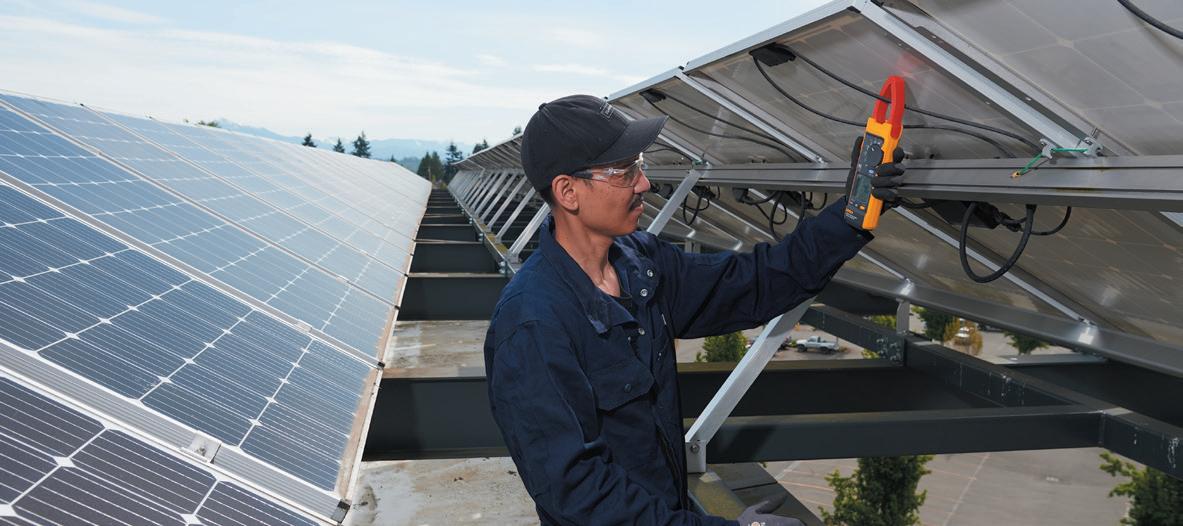







What do you do with solar panels that are damaged, decommissioned or unusable? Do you have an end-of-life plan? Save valuable time with this FREE e-Book, which gives you important information about three landfill diversion options; recycling, reuse and donation, and how you can participate in the most economical way.








The Fluke 393 FC CAT III 1500 V True-rms Clamp Meter provides exceptional safety for work in DC environments up to 1,500 V, like solar arrays, wind power, electric railways and battery banks for uninterruptible power supplies. The thin jaw is ideal for tight spaces in solar energy applications.

FranklinWH provides whole-home power management by integrating solar, battery, grid and generator power sources to optimize the safety, reliability and efficiency of home energy. Gain energy resiliency through multi-energy source integration, backup protection and intelligent power management for critical household devices.
SOLAR • BOOTH #504
FTC Solar’s DG Solutions announces collaboration with AUI Partners to provide solar tracking services for sub-20MW sites. The partnership utilizes FTC Solar’s proprietary Voyager+ 2P tracker and AUI’s extensive experience in site design and construction. The partnership leverages an innovative sourcing strategy providing lead times as short as eight weeks.


IronRidge Contour Trim elevates the look of any solar array by providing a sleek trim (or skirt) across the south edge or around the perimeter to hide components that are visible beneath the solar panels. Contour will make any array look great and have your crew off the roof in a snap.





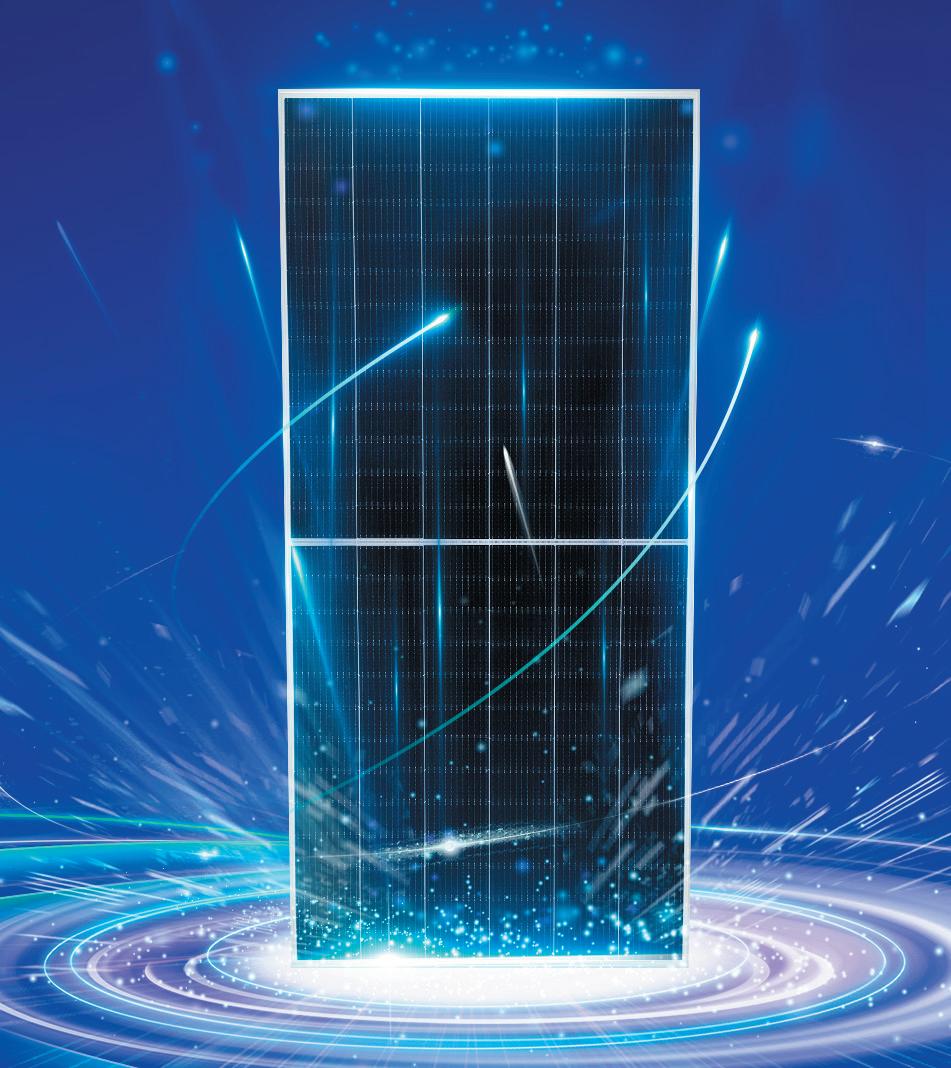

Based on the 182-wafer, DeepBlue 4.0 X integrates the Bycium+ cell that reaches 24.8% efficiency. It is also equipped with GFI (gapless flexible interconnection), where the design of the round ribbon with buffer treatment and optimized encapsulation material deals with mechanical stress at cell interconnections and eliminates the risk of micro-cracking.

EAGLE RS is a fully integrated DC-coupled residential energy storage system, featuring best-in-class safety with LFP battery chemistry, a U.S.based monitoring app and a single wrapped warranty. EAGLE CS is a fully integrated, turnkey, AC-coupled system featuring LFP batteries. Scalable and fully configurable, ideal for any C&I or utility application.

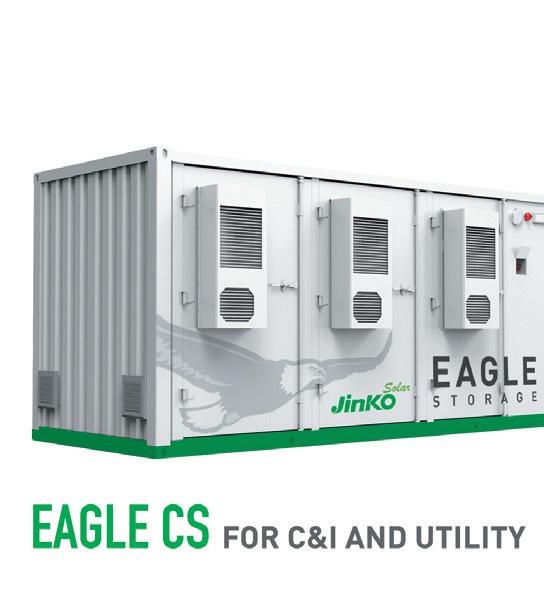


The K2 Mini Foot XL is K2 Systems’ newest EverSeal roof attachment. It is a versatile mount that is compatible with composition shingle, steel metal and flat roofs and can be installed to the rafters or decking. Installation is clean, quick and easy with no additional sealant necessary.

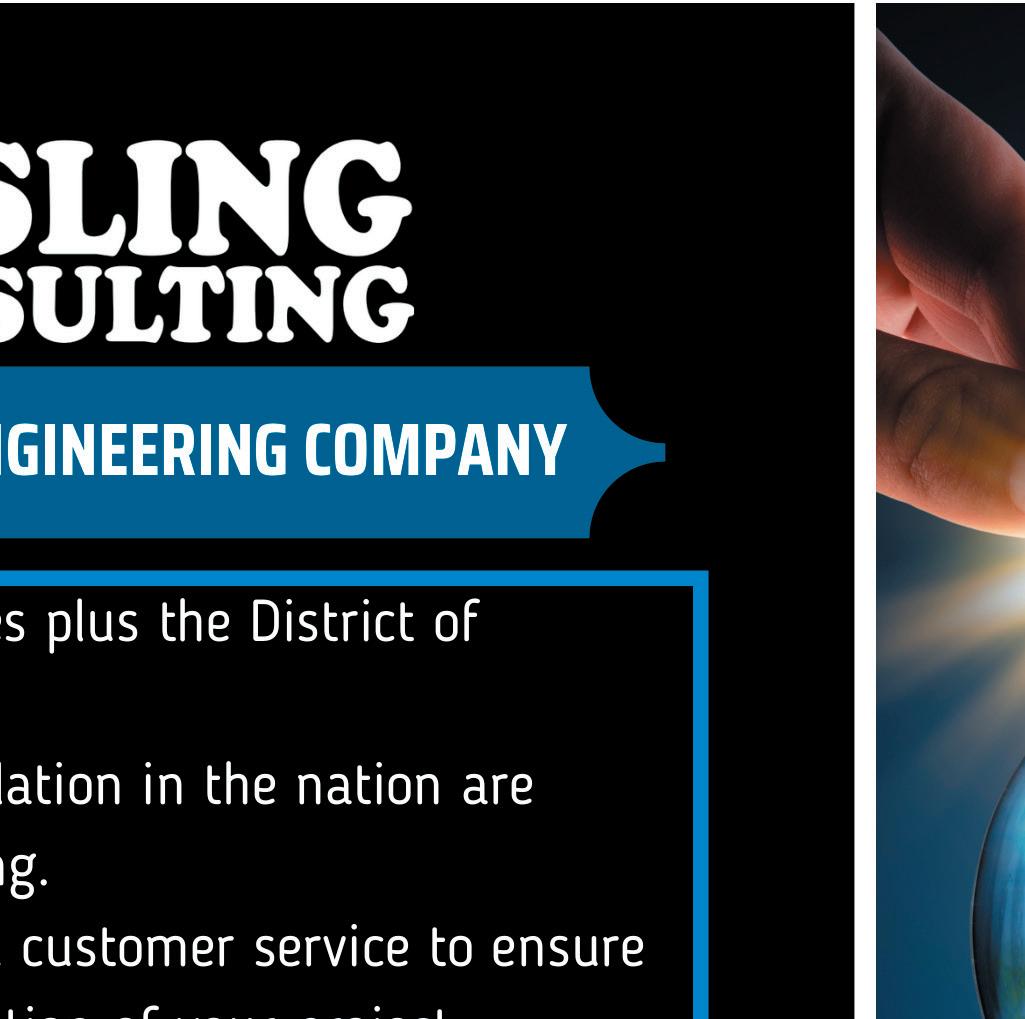


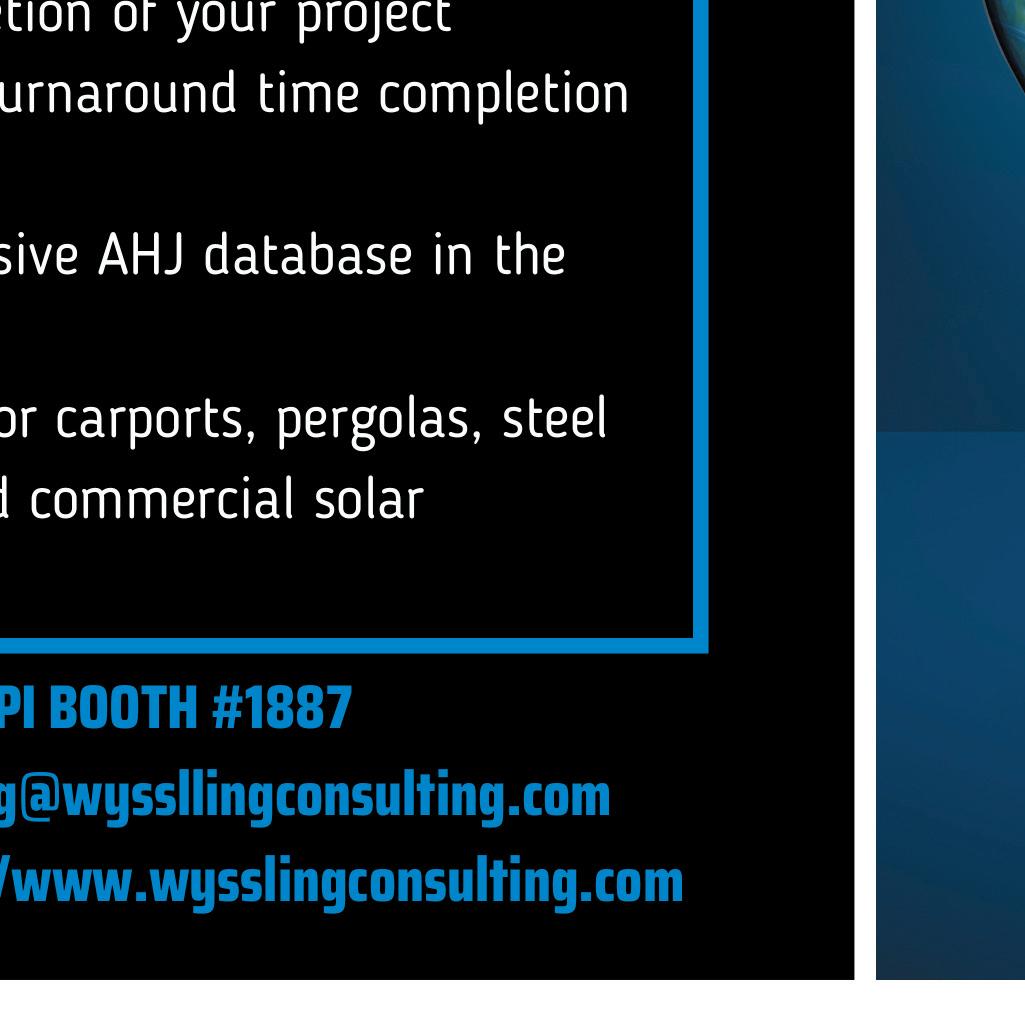







KB Racking has a new racking system that will maintain PV module warranties in high snow load regions. The grid-based design (N/S and E/W rails) features an integrated rail for windshield and ballast to reduce number of components. Offered in 5° and 10° landscape tilt variations, the snap-in components provide an easy, toolless installation.
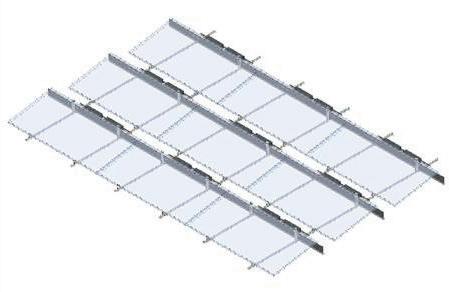
INNOVATIONS • BOOTH #2278

IMGING by Loveland Innovations gives you the most recent shading data available anywhere — all from the same automated drone flight used for your site survey. IMGING’s shading tool includes the industry standard solar access, TOF and TSRF numbers and shading model editing for industry leading verification.

LUMIN • BOOTHS #4154 AND #4255
At RE+, visitors to the LS Energy Solutions booth can learn about its flagship product, the AiON-ESS, a flexible, modular AC energy storage solution for one-hour to sixhour applications. Attendees can also learn more about the BRiC bidirectional string inverter, as well as various deployed projects.
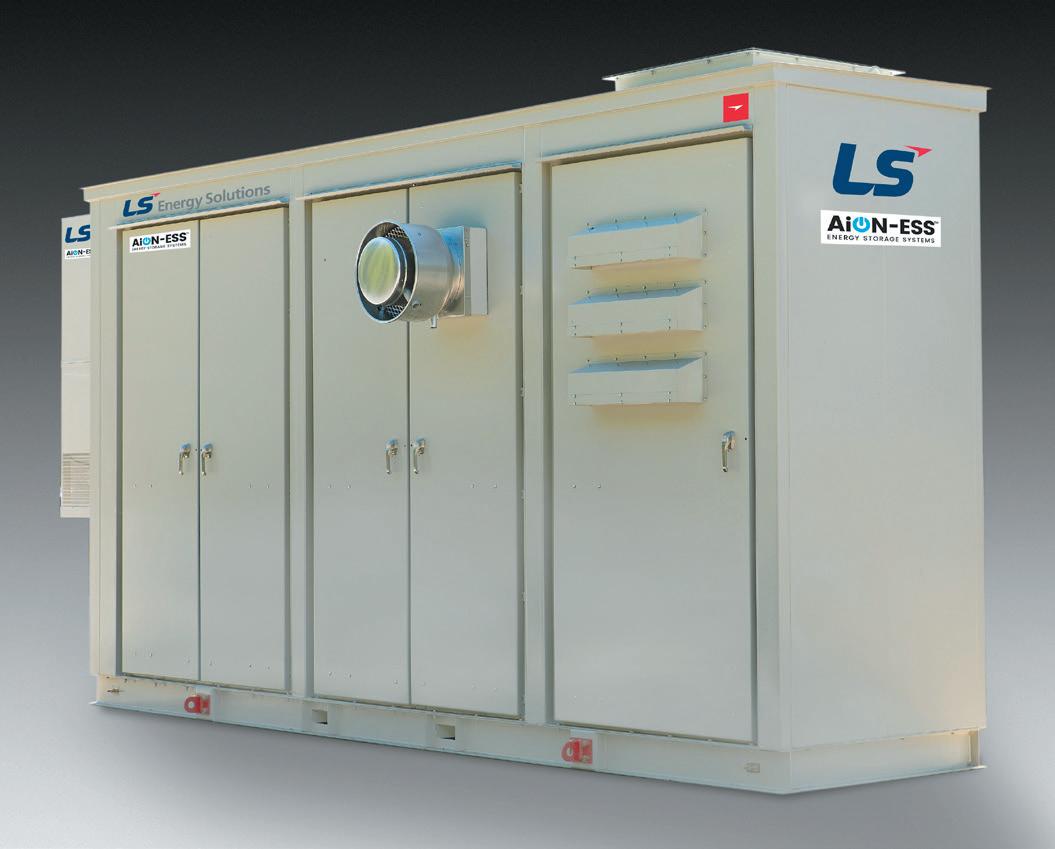
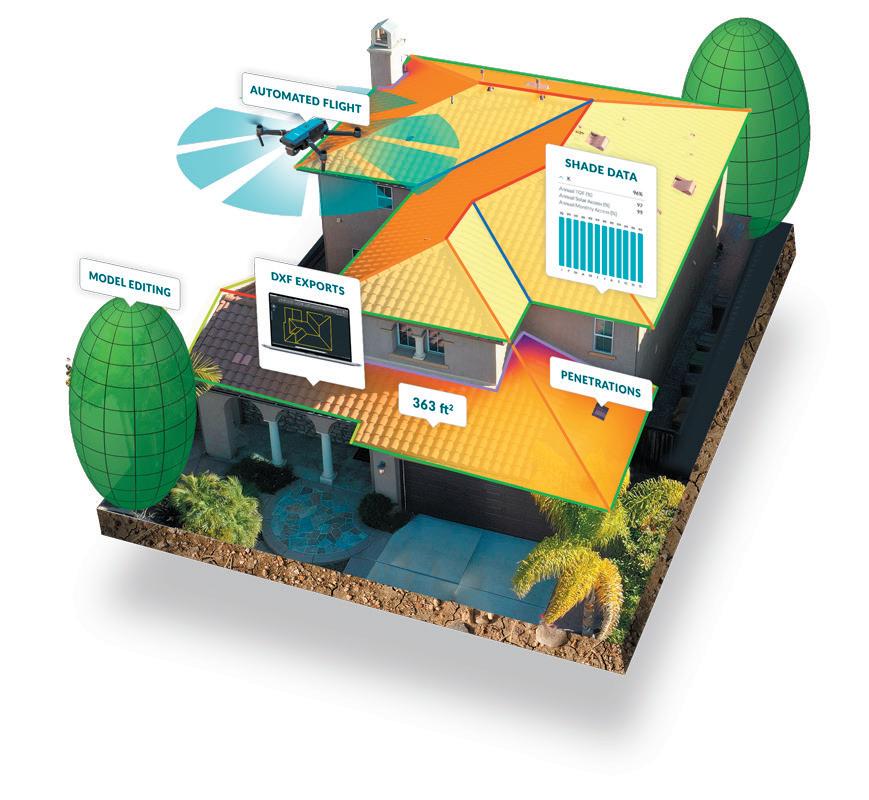
Lumin Edge is a modular smart energy system and smartphone application that gives homeowners the flexibility to manage, monitor and optimize their home energy usage. Individual homes can be turned into personal grids, where homeowners can balance energy supply sources, such as grid, solar and energy storage, with energy consumption.

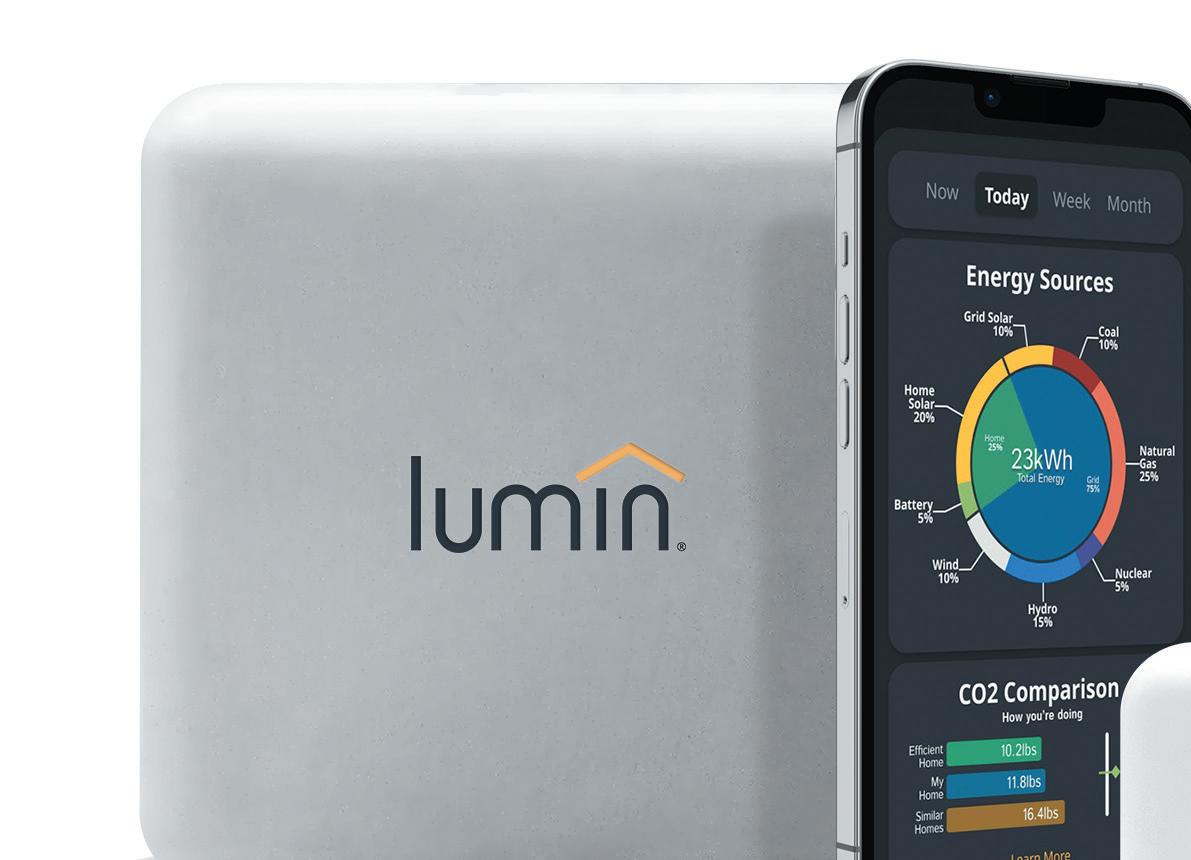













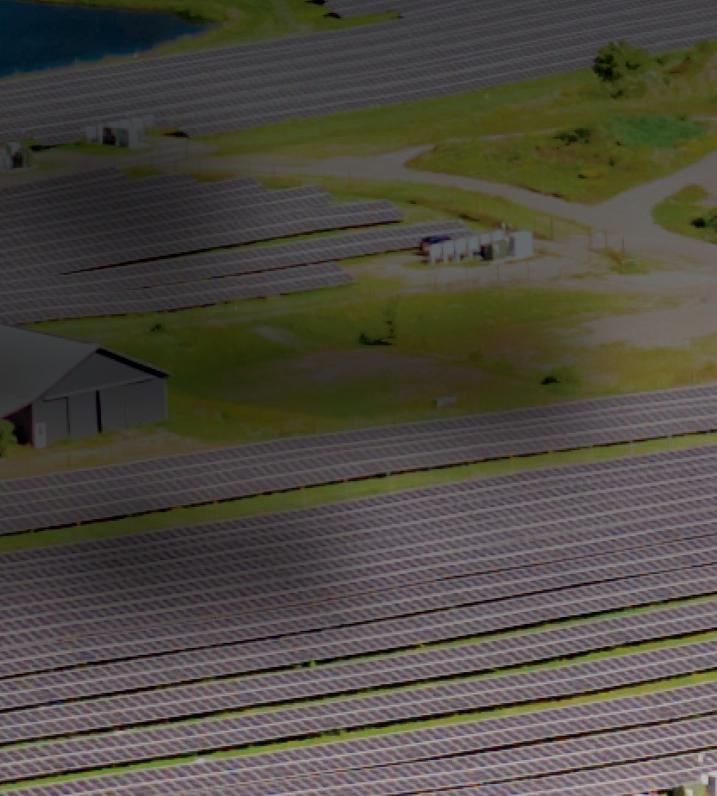
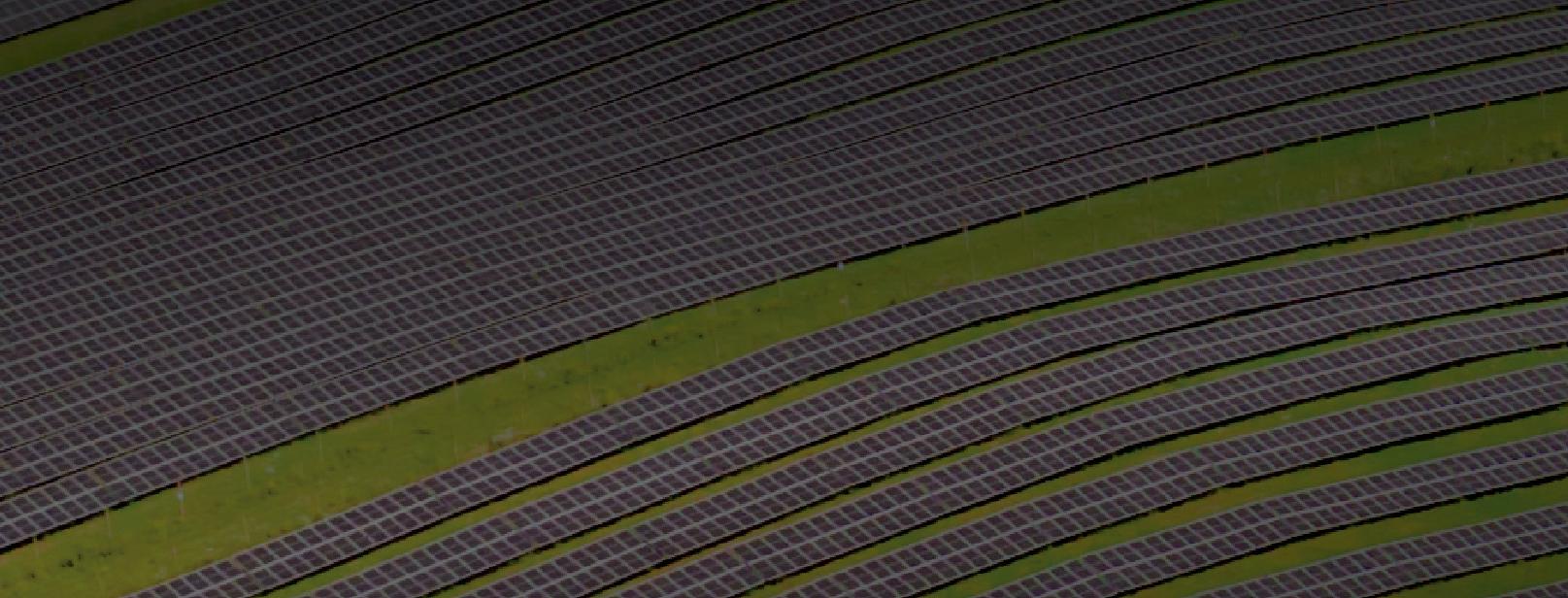



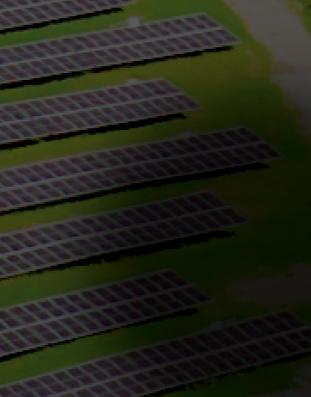







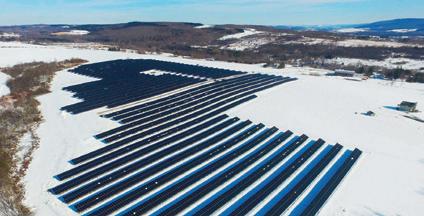
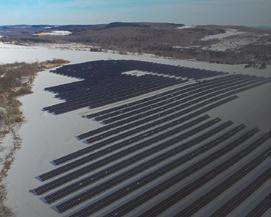






The patented 90-panel M18KD dual-axis solar tracker is the most powerful in the industry, paired with the smallest footprint. The warrantied 99.6% uptime, low O&M cost and ROI of less than four years makes this a unique technology solution where high yield and land constraints are key in design.
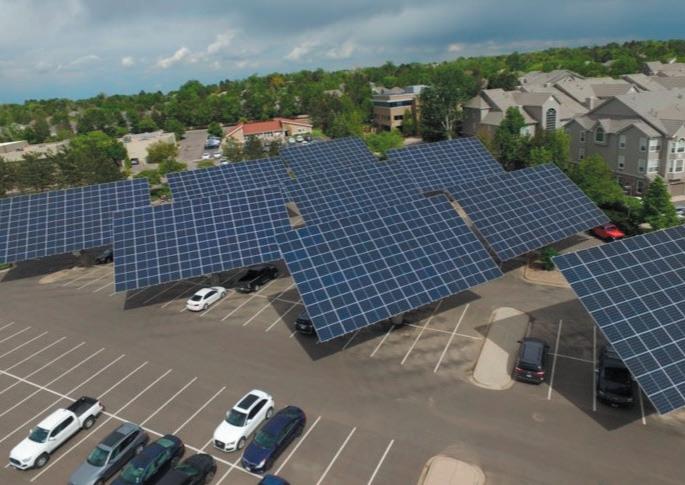


MIDNITE SOLAR • BOOTH #3474

Need 200A of charging power? The dual 600-V MPPT MidNite Solar Barcelona charge controller is the largest in the world! Or 120A from the Hawke’s Bay. MidNite’s 6,800-W Rosie 120/240 VAC inverter is new and a gamechanger. Control all units in this new suite of exciting products with the MNGP2.
Introducing the Morningstar of Inverters: Six all-new models from 150- to 2,500W, with 120- or 230-V output; 12-, 24- or 48-VDC input. Industrialgrade build quality with low-frequency toroidal transformers for improved sinewave stability. Wireless Android and iOS utility apps for set-up and monitoring. NRTL certification, AC hardwire terminal options.

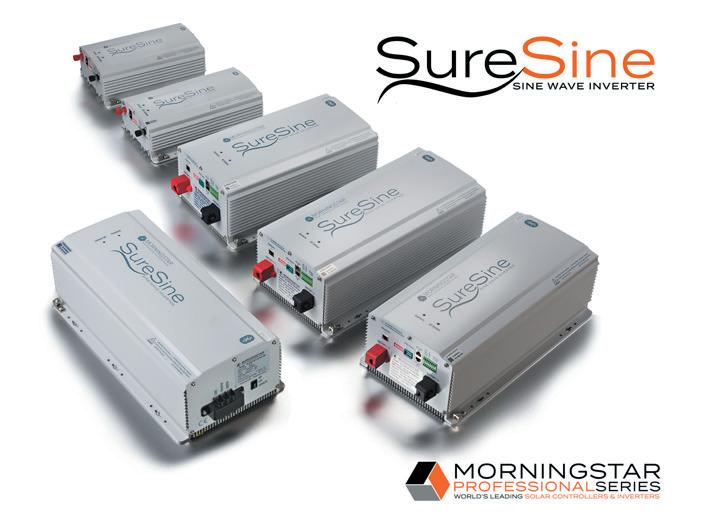
• BOOTH #3760
NEP’s microinverters cut up to 40% of the cost compared to competitors, backed by a nimble, available support team. Zero-cross-talk guarantee with NEP’s commercial rapid shutdown solution.



NEXTRACKER • BOOTH #1426
NX Horizon-XTR is Nextracker’s latest terrain-following smart solar tracker that breaks the paradigm of “straight-line row” design constraints. NX Horizon-XTR eliminates the need for most grading and earthworks, reduces steel costs by shortening tracker pier lengths, lessens project risk by easing permitting and minimizes environmental impact.


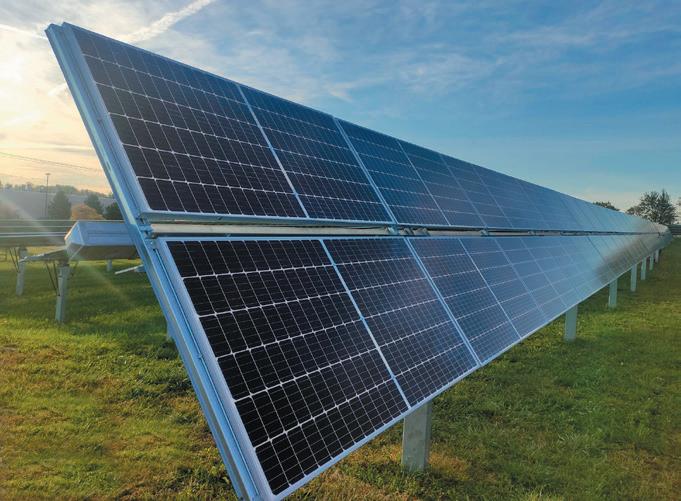



NRG’s complete-system approach ensures its measurement solutions include a range of services to help customers optimize everything from repeatable project design, installation and data management services, global logistics coordination and lifetime technical support. NRG’s end-toend solutions help maximize project stability at every stage of development and operation.
OMCO SOLAR • BOOTH #528
OMCO Solar’s Origin Bifacial Tracker features an open-back, two-in-landscape format. Designed to meet the energy yield demands from utility-scale projects, OMCO Origin offers 20% more backside production. Manufactured domestically with high-strength rollformed steel, OMCO trackers are shipped from one of four U.S. plants, ensuring the industry’s shortest lead times.
Paired Power’s pop-up solar canopy delivers on- or off-grid EV charging technology with 100% renewable energy. PairTree’s modular design is suitable for multiple applications while reducing construction and utility costs, and can optimize EV charging rates to deliver up to 230 miles of daily range.
while reducing construction
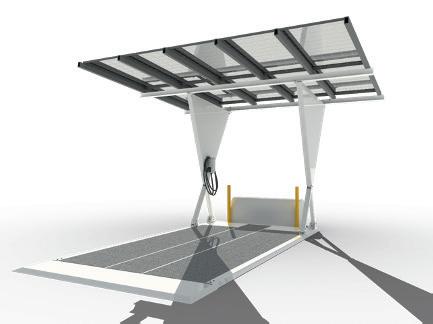
Purchase domestic. Reduce your environmental impact. It’s that simple. Our American-made solar tubing is produced in manufacturing facilities that are among the cleanest and greenest in the world. Purchasing domestic also means avoiding supply chain disruptions. Doesn’t get better than that.










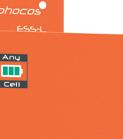
Generate and store clean energy for decades with EverVolt 2.0 battery storage system. The all-new outdoorrated weatherproof system provides continuous output of 7.6 kW off-grid, 9.6 kW on-grid power. The versatile modular design can be ACand DC-coupled and delivers usable storage capacity range of 17.5-25.65 kWh per system.














PANDUIT • BOOTH #1292


The Panduit UV Resistant Corrugated Loom Tubing is available to route and protect wire and cabling in an outdoor environment directly at the solar panel. The UV Resistant Corrugated Loom Tubing is sliced to provide easy installation and can be installed with a variety of solar system solutions from Panduit.






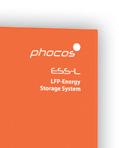




The new Any-Cell ESS-L-5kWh-48V model is a compact, modular LFP solution offering a safe, environmentally friendly, maintenance-free and long-cycle-life storage system. Enhanced by an integrated advanced battery management system, the Any-Grid ESS-L provides seamless integration with other Phocos products. The chemistry is environmentally friendly compared to other traditional storage options.


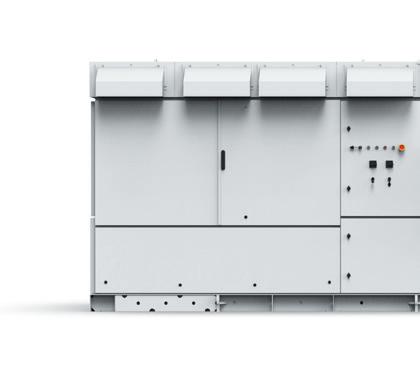
The new generation of Freemaq PCSM is compatible with all battery technologies and with any type of storage application. With a power rating of up to 4,200 kVA, it is the most powerful medium-voltage inverter in the market.
PV LABELS • BOOTH #566
PV Labels will be at RE+ showcasing its packets of solar warning labels, placards and signs, including packs for NEC 2020, NEC 2018, NEC 2014, NEC 2011 and rapid shutdown requirements.




































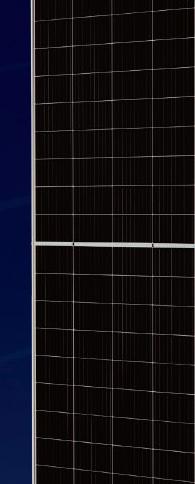


















PXISE ENERGY SOLUTIONS • BOOTH #854

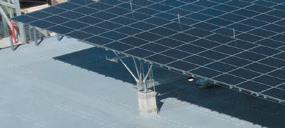


Visitors to the PXiSE booth can speak to clean energy experts on the company’s three core products: Microgrid Controller, DERMS and Renewable Power Plant Controller. Get a “Slice of PXiSE” and get to know the team creating technology solutions that solve the toughest grid challenges of the 21st century. QUEST RENEWABLES • BOOTH #224











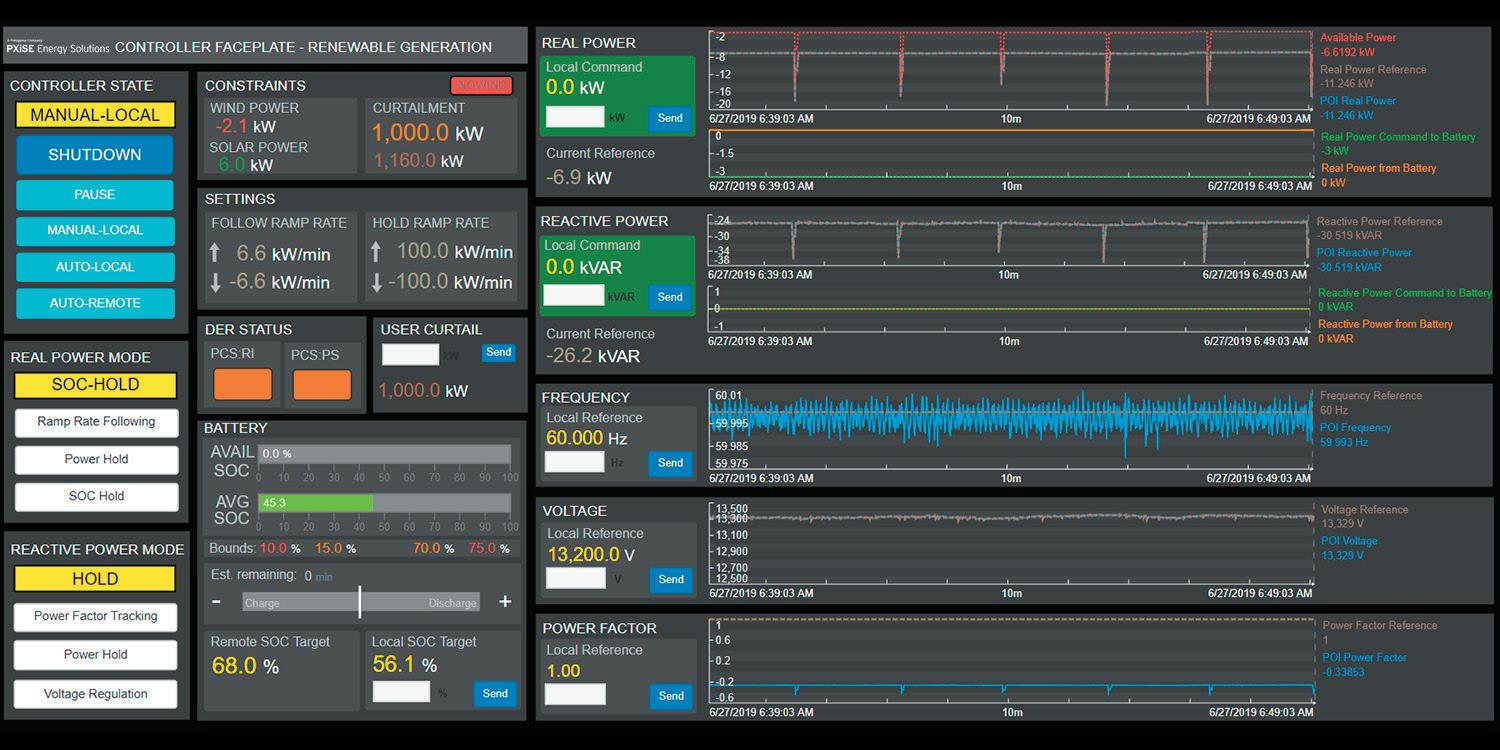

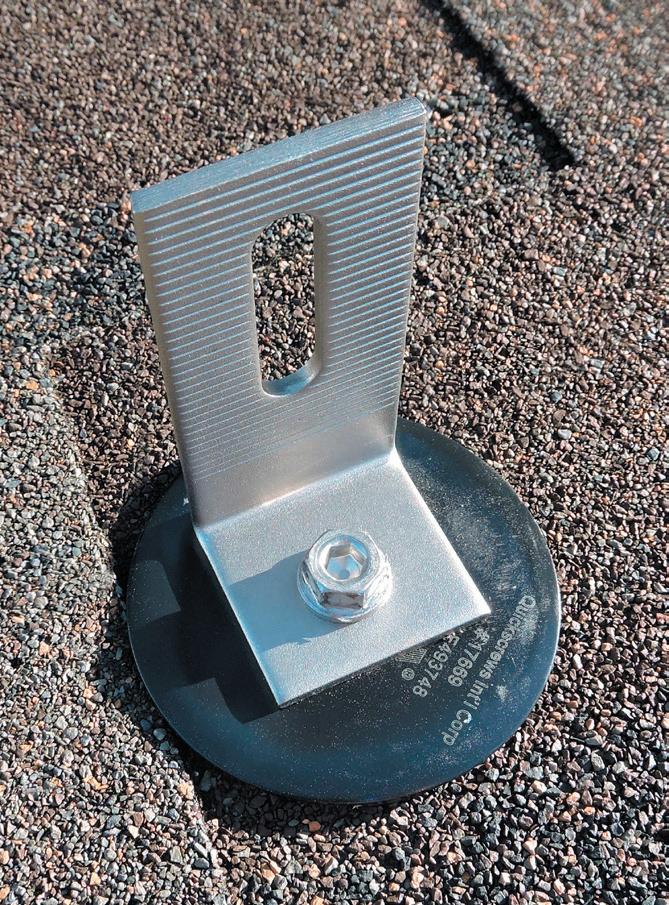
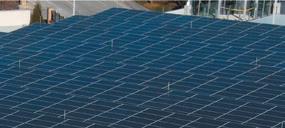




The QuadPod Canopy system is the most stunning solar carport in the industry. Why settle for anything less? Stop by Quest’s booth to learn more about how the company can help you delight your customers with a beautiful carport and rapid installation for their parking lots and parking decks!

QCELLS NORTH AMERICA • BOOTH #2638
Qcells North America, a complete energy solutions provider, will soon be launching the next generation of the Q.HOME+ residential energy storage system. This innovative design incorporates a sleek all-in-one inverter and battery aesthetic, 200-A wholehome smart backup capability, four power class options and stackable capacity ranging from 10-20 kWh.

QUICKBOLT • BOOTH #880

The game-changing combination of QB2 + BoltSeal technology makes installation on asphalt shingles efficient and reliable. This MiamiDade-accepted mount prevents water intrusion with or without chemical sealants. The smooth torque of QB2 + BoltSeal helps installers get jobs done quickly and protects roofs from install onward.









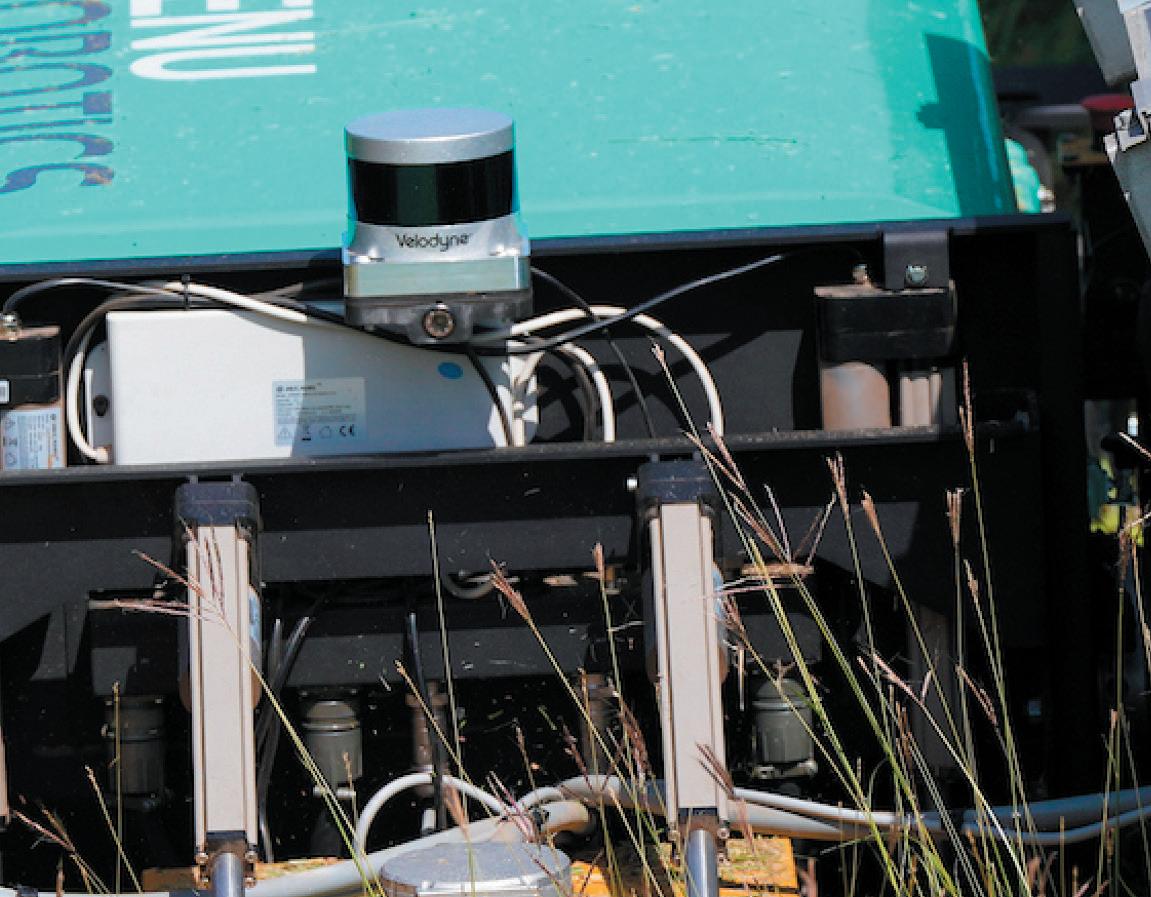





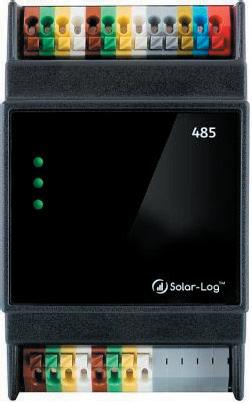
Designed for true drop-in replacement in popular BCI sizes, Rolls R-Series 12- and 24-V LFP models offer a maintenance-free, lightweight flooded and SLA alternative with fast charge/discharge capability, builtin BMS with operating protections, up to four-times series and fourtimes parallel connectivity for 48-V systems and exceptional cycle life.
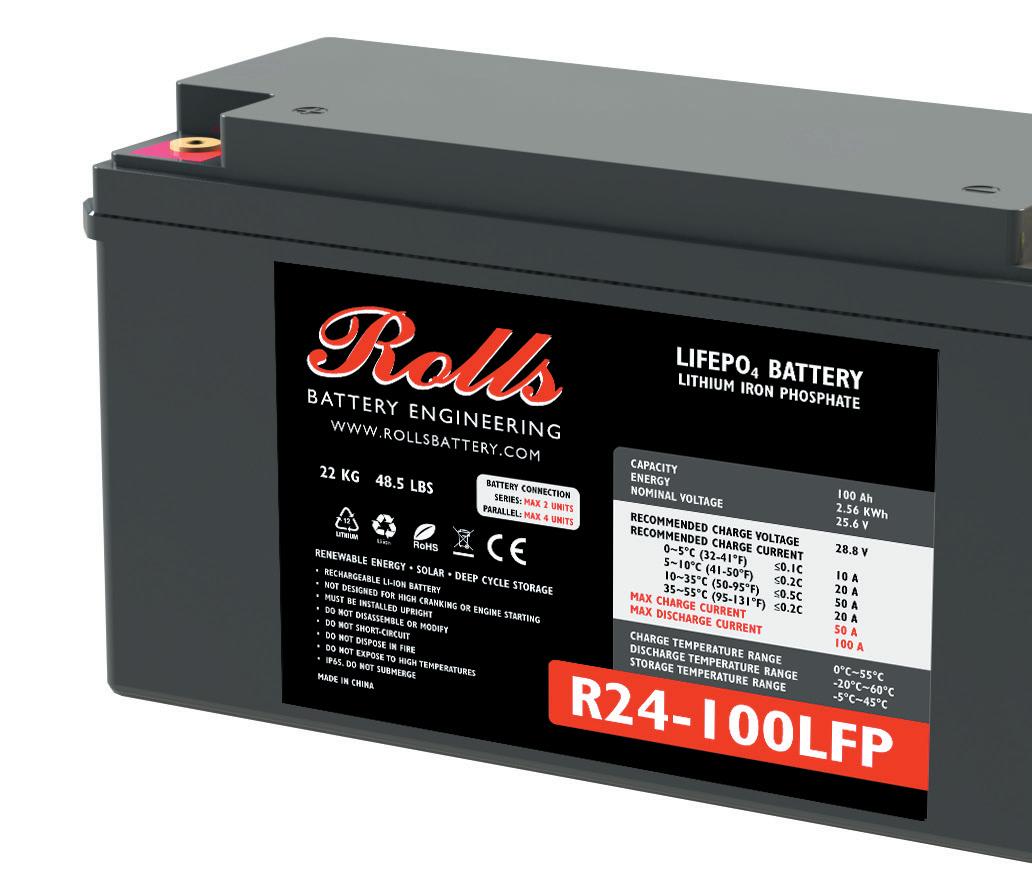


In 2013, Roof Tech introduced its flexible flashing technology RTButyl, and waterproofing risks quickly faded into the past. Now, Roof Tech brings you AlphaSeal Technology. Its impenetrable sealant eliminates the need for caulking, and the Roof Tech team will show you how it should be your primary solution for residential solar installations.


The CanDuit clamp secures and supports conduit for wire management and fastens home runs to metal roofs for solar PV systems, in combination with any S-5! clamp or bracket — providing easy, organized securement without scratching, corrosion or other damage to the roof. S-5! will also have PVKONCEAL Module Skirt on display.
Solar lifecycle solutions for monitoring, visualization, evaluation, troubleshooting and control. Reduce back-end inefficiency and measurably improve your solar business and plant performance using: Performance monitoring (SolarLog); troubleshooting (emazys PV Analyzer); public display systems (Solarfox); data acquisition and control for large-scale and utility (iPLON) and customer-owned telemetry (COT) using IEEE 2030.5 (Kitu).
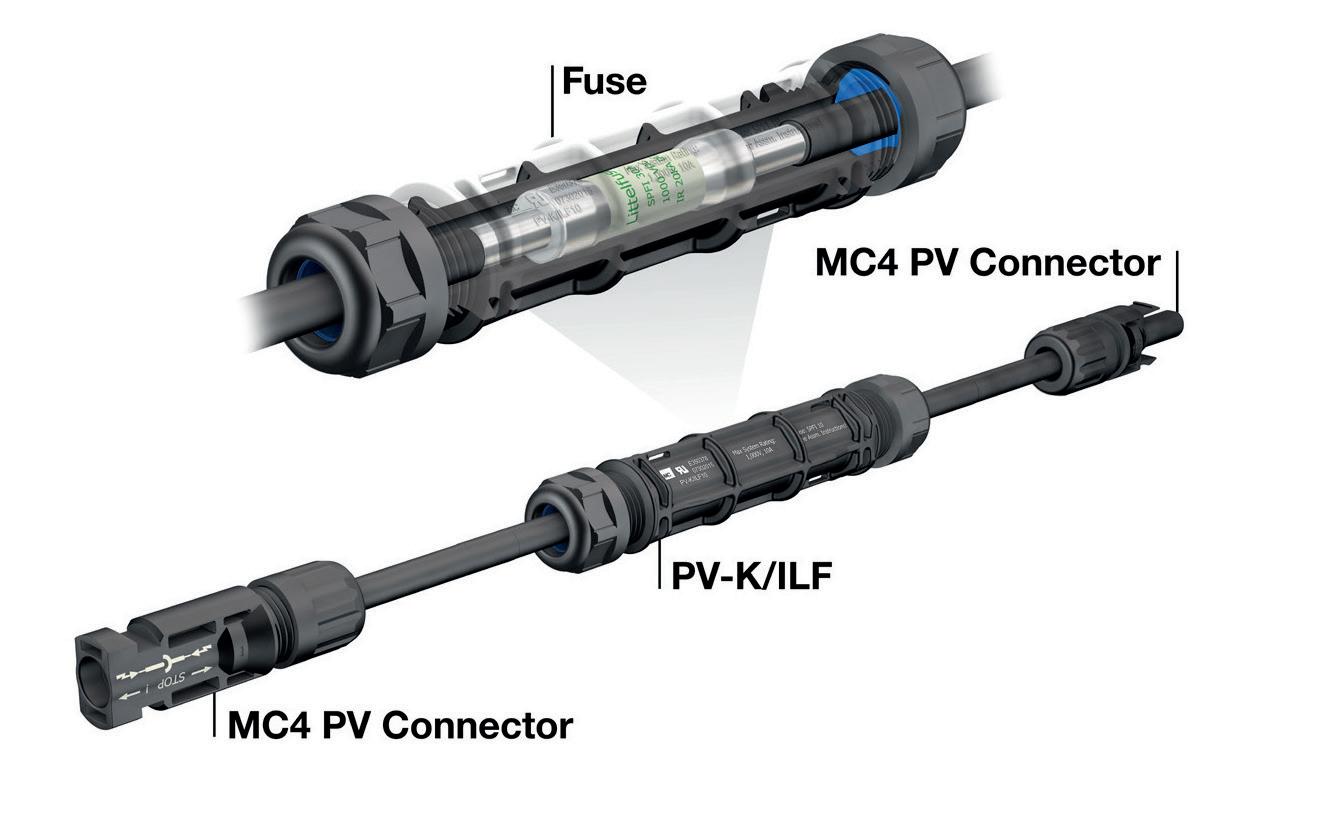

Our more than 25 years of experience and impressive track record in connecting complex photovoltaic (PV) systems worldwide enable us to create long-term value. With quality product solutions and services for eBoS (electrical Balance of Systems) applications in PV plants, we make your project reliable and efficient. Individually tailored to your needs, we provide you with all the relevant elements for perfect collaboration as your partner of choice.

The MC4 family of PV connectors are rated up to 1500 V UL, 95 A, and are available for 14 through 6 AWG cable configurations. Visit our website for a complete product portfolio, including in-line fuses UL rated up to 1500 V, to 30 A. Shop online: www.ecs-ecart.com Contact us today (707) 838-0530
We look forward to seeing you at RE+ / Solar Power International this year at Booth #1650 - September 20 - 22, 2022 in Anaheim, CA

SIBA’s Energy Storage System fuses are specifically designed and tested for the stringent requirements of ESS applications and are utilized by large OEMs globally. The specialized ESS fuses range from 400 to 1,500 V with the highest breaking capacity and lowest L/R in the industry. SNAPNRACK






The SMA Energy System features a suite of solutions that work in tandem to bring tomorrow’s sustainable energy technology into today’s home. Products include the Sunny Boy Smart Energy hybrid inverter with SunSpec-certified rapid shutdown device, a battery with multiple backup options and the Sunny Portal powered by ennexOS.
SpeedSeal DeckFoot and DeckTrack mount directly to the deck, allowing installers to lag straight to the roof deck for layout adjustability without locating and attaching to rafters. The attachments feature proprietary 1/2-in. wood screws, creating a single-tool installation with a half-inch socket for the entire install.


The SolarCleano F1 has been designed to meet all your needs in cleaning all types of installations. The robot can be dismounted into four parts for easy transportation. Highly mobile, it can be easily carried and operated by one person. The assembly and disassembly of the robot can be completed within three minutes.










See the latest innovations from SMA at the industry's flagship event. Visit us in booth #1 at RE+ in Anaheim, CA • September 20–22

SOLAREDGE TECHNOLOGIES • BOOTH #2416


SolarEdge Home is a smart energy ecosystem that allows homeowners to optimize their solar energy production. This integrated solution brings together inverters, home batteries and EV chargers to deliver more power in more places. The complete ecosystem can be monitored, managed and tracked through the mySolarEdge app.












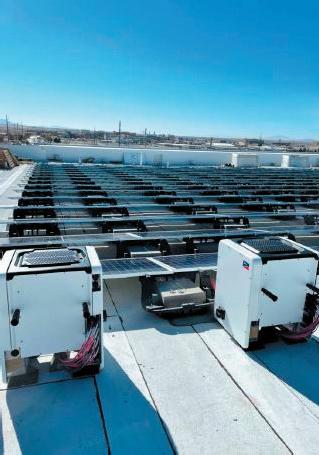

Solaria’s PowerX Performance Series solar panel uses nextgeneration cell platform to deliver higher efficiency, power and performance for consistent, trouble-free energy over time. The all-black sleek design makes PowerX an attractive and accessible solar panel for residential rooftops; high-power density means PowerX panels generate more energy from the same area.

SOLIS INVERTERS • BOOTH #2650

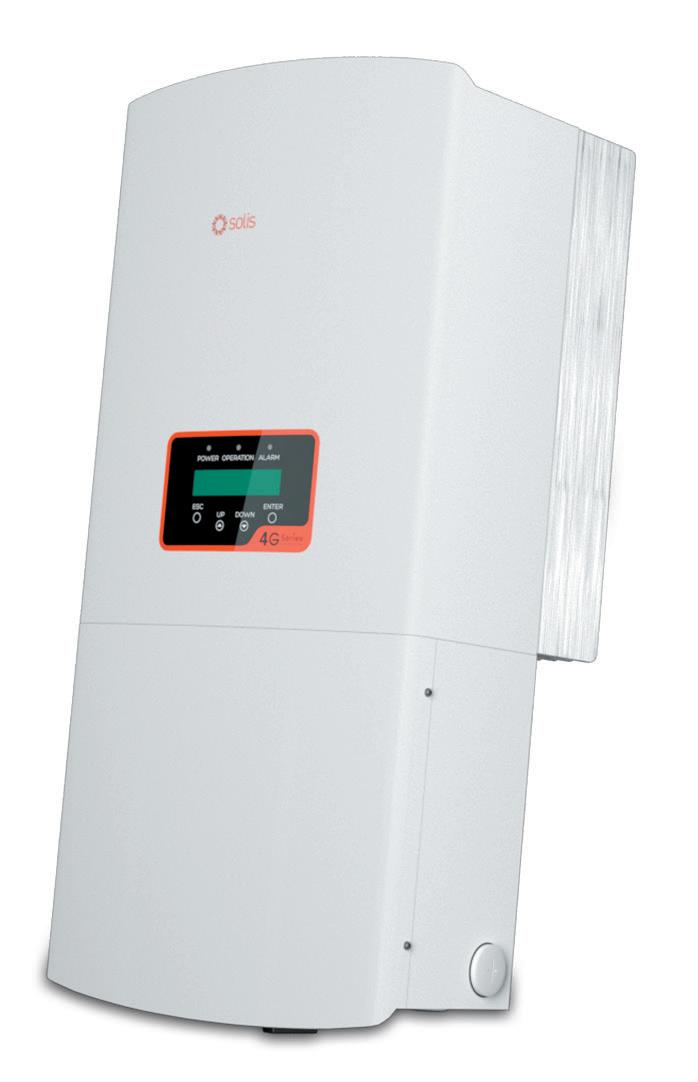
The Solis-1P(6-10)K-4GUS single-phase string inverters are compatible with higher-powered modules and are perfect for residential systems with varying roof orientations. Not only does this incredibly efficient inverter have MLRSD transmitters for PV array safety, but it’s also UL 1741 SB certified, allowing for remote inverter monitoring/control by owners and utility companies.
SOLLEGA • BOOTH #3847
The Sollega/SMA system is officially UL 3741 PVHCS certified. Sollega’s FR510 Polymer Ballasted Racking, when installed with SMA Core1 inverters, now meets rapid shutdown requirements without the need for modulelevel power electronics or optimizers. Expected savings of $0.08-10/W and one-third the number of PV connections.



STÄUBLI ELECTRICAL CONNECTORS • BOOTH #1650
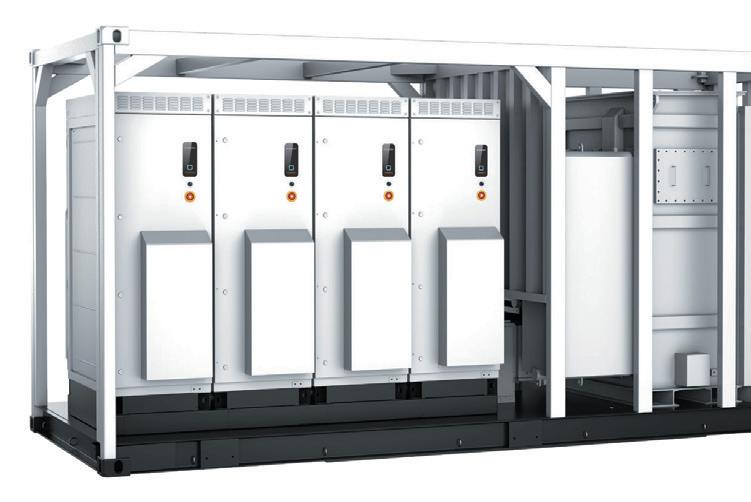

Stäubli, known for its reliable, safe, high-quality components, now offers an MC4 Cable Coupler for 6 AWG cable, which is UL 6703 certified and is rated to 95A and 1,500 VDC. With these ratings, it meets the critical need for cable components suited to today’s higher-output PV systems.
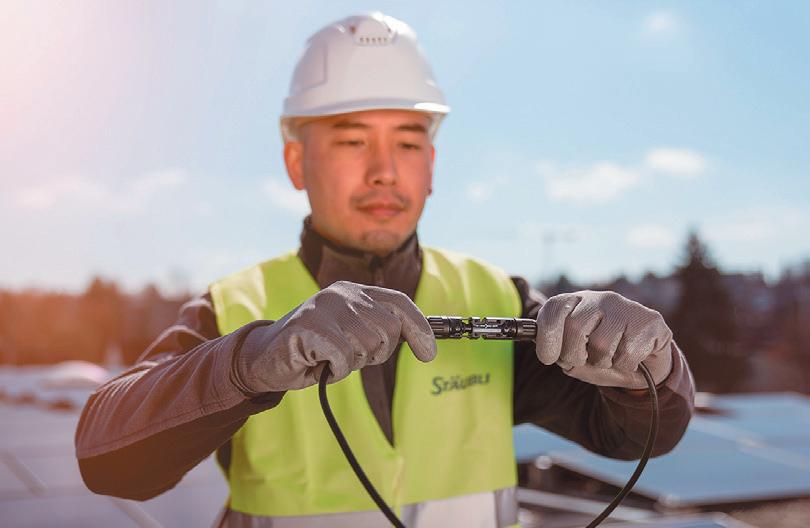
SUNGROW • BOOTH #1612

The SG4400UD-MV Central Inverter offers convenience as its spare parts are universal and it has a 4.4-MW block size for a flexible design. It’s IP65 rated and is safe and reliable. Its advanced grid support has a Q response of <20ms. Its high-power density lowers OPEX and increases your ROI.
SUNMODO • BOOTH #1756

SunModo introduces the SMR Pitched Roof System, the best-value pitched roof mounting system. The SMR System represents a huge leap in racking technology. Optimized design makes the SMR Rails not only the lightest but also the strongest rails on the market. Onetool assembly and pop-on technology allow for fast and worry-free installation.

SUNPOWER • BOOTH #3414


SunPower’s home battery system, SunVault storage, now comes in two new configurations — 19.5 and 39 kWh — to better match individual homeowner energy needs. The new systems increase the storage capacity and energy density in a single unit by 50%, have a clutter-free minimalist design and an easier installation process.





































































TERRAGEN • BOOTH #318
Whether you are ballasting the system or mechanically fastening it to the roof, TGR is the best solution for you. Safe, economic, lightweight, flexible and easy to install are just of few of the benefits. TGR can accommodate any tilt angle for the most complex projects.
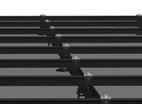
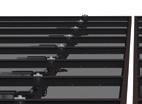

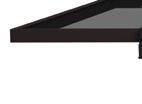



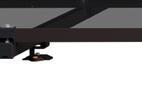






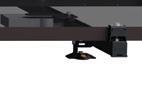

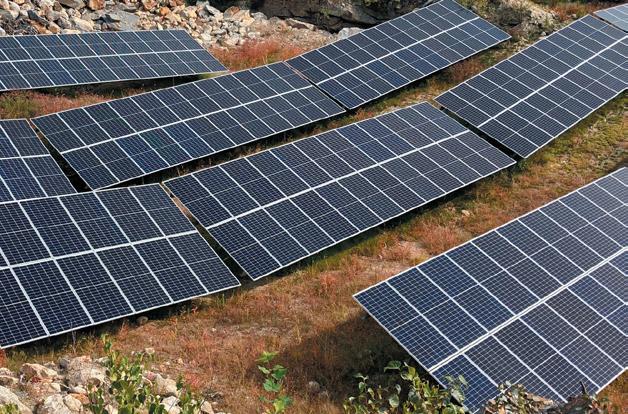


• BOOTH #1104

At RE+, Terrasmart will feature select products and services through the lens of augmented reality (AR). From project optimization software, SIFT, to groundmount and tracker foundation selection, paired with integrated racking to electrical wiring and installation, Terrasmart delivers true agnostic solutions to support every stage of your project’s lifecycle.
UNIRAC • BOOTHS #4 AND #1820
Built for strength and an effortless install experience. NXT UMOUNT features strong-hold attachments with FlashLo and new butyl technology, an open-channel light rail designed for unfailing wire management, universal module clamps with click-in assembly and rail accessories devised to combine form and function, creating a system with fewer SKUs. Compatible with all Unirac attachments.
• BOOTH #3770
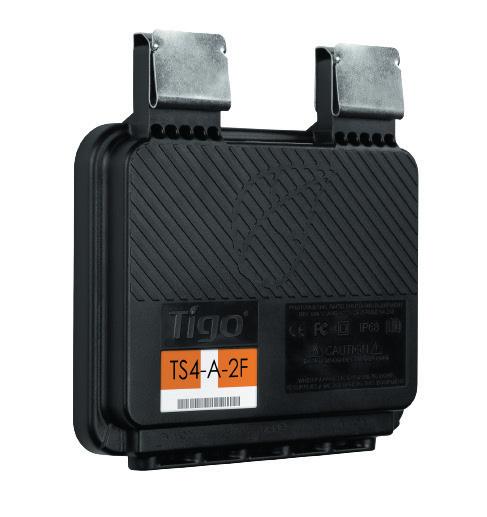
Tigo’s 25-Amp TS4 MLPE rapid shutdown devices support the latest high-power, high-current and bifacial solar modules, while providing first-responder safety functionality for modules rated up to 700 W. Featuring compatibility with Pure Signal in Tigo RSS Transmitters, the products pair with a leading list of third-party inverters for design/installation flexibility.


XENDEE • BOOTH #4581
Xendee’s Multi-Node feature enables the creation of interconnected spatially aware microgrid networks. Users can create a base or city-wide energy system from a constellation of smaller microgrids, taking into consideration where nodes are located in real-world dimensions and optimizing the microgrid investment accordingly for energy generation and consumption.
The XGI 1500-250 inverters provide ideal solutions for ground-mounted utilityscale PV systems, with models available for service connections at 600 VAC and 480 VAC. They feature SiC technology, high power and efficiency, providing advanced grid-support functionality. The XGI 1500250 inverters are made in the United States with global components and are compliant with the BAA.






Looking to embrace the new tagline of ‘Energy Made Simple,’ Yotta Energy is unveiling a series of new products ahead of RE+. These innovative solutions will simplify the renewable energy transition for commercial and industrial customers, positioning Yotta as a one-stop shop for solar, energy storage and EV charging.

Built Well Solar’s founder Dan Sabia was a veteran and first responder at Ground Zero on 9/11. He saw firsthand the destruction and conflict triggered by America’s reliance on oil. He started thinking about the tiny, solarpowered calculator he used when he was deployed and wondered why the country wasn’t using this technology to become more energy independent. He became determined to learn more about it and install solar panels on his own house. More than 20 years later, this passion has helped Sabia grow a solid solar business in Long Island, New York — one that has been featured on Solar Power World’s Top Solar
Contractors List every year since its inception.
In this episode, Sabia talks about creating a solar market on Long Island, and why customers continue to choose a smaller, local contractor over the big national names. An edited portion of the interview is below, but be sure to listen to the full podcast for more insight on Built Well’s vision of an electrified future.
Find the Contractor’s Corner podcast on your favorite podcast app.
SPW: How did you get into solar?
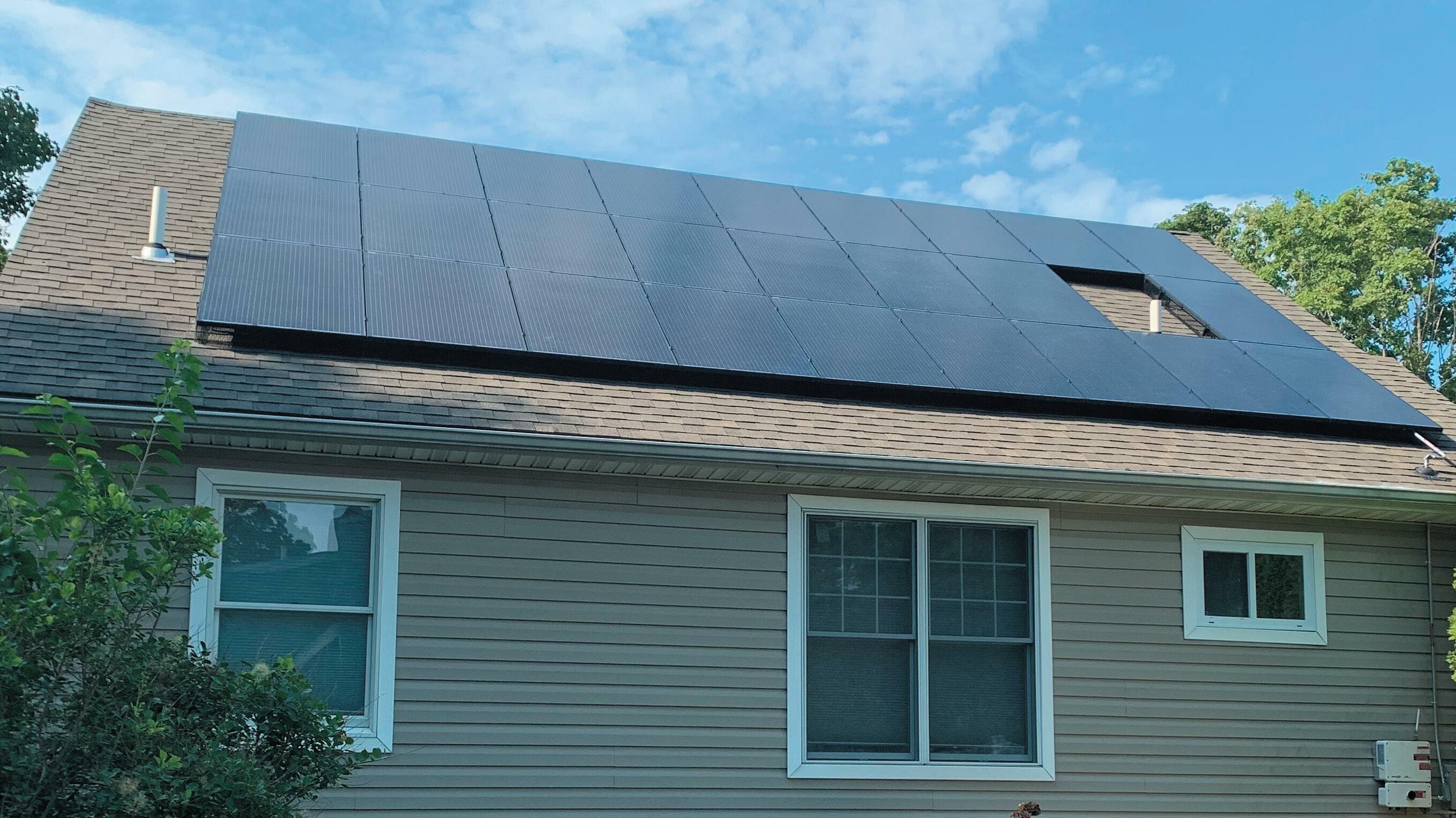
Dan Sabia: It actually started back in 2001. I was a first responder at 9/11, down there for about two-and-a-half weeks. My expertise was in nuclear
biological chemical weapons, and what I got out of that, everything I saw — this whole thing is about our dependence on foreign oil. Here we are in wars fighting over oil when we have all of the United States school district roofs, town roofs, city roofs, plus everybody’s houses that could be run on solar.
When I was in the military, I had a solar calculator. In the middle of the woods, you open it up and then it’s on, it’s alive. I said, “Well, this is just a great invention.” And I always had this passion that I wanted to do solar on my own house. After 9/11, I came home and went to a Solar Pioneer program. I had taken the course; I have a background in architecture and engineering and I went ahead and put solar on my house. At that time when I did it, neighbors and friends started asking, “What’s this all about?” I did probably seven or eight friends’ houses on weekends with helpers and everything. Twelve months later, I said, “I guess I’m in business now.”
The first thing that stuck out to me on your website was that you never knock on doors. Why is that important for your company?
We’ve been in business for 21 years, and over the 21 years, we’ve joined a lot of organizations, we’ve won a lot of awards and we’ve isolated ourselves. We actually do Nassau and Suffolk County — that’s 110 miles long and thousands of homes here to do solar on. We have no pressure when we meet with a customer; we do no cold calls and we don’t do any door knocking. It’s word-ofmouth and through organizations; we do minimal advertising and it’s been very successful for us. We’ve been in business so long we’re actually getting leads from the parents to do their sons’ and daughters’ houses.


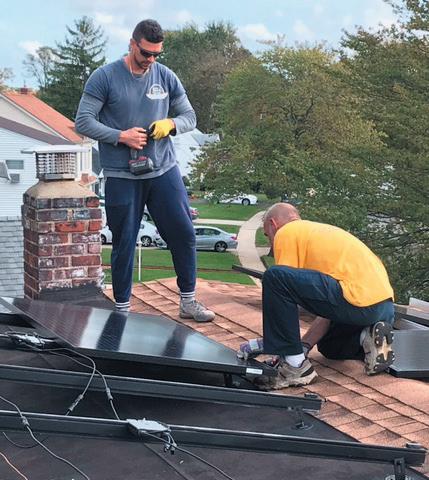
There’s 40 years of solar to be done here and there’s enough room for everybody. There’s more roofs on Long Island and we have the second highest electrical rates
in the country, so the payback is approximately four-and-a-half to five years. It’s really a no-brainer.
What is preventing you from installing more solar?
We have 47 different building departments we deal with, and I would say there’s probably only maybe five or six that use the same paperwork, so you’ve got to go to that building department and they all have a stack of paper you have to fill out. In New Jersey, they have a state building department, so all the paperwork is the same.
But here [in New York], there are many locations and that becomes an expensive thing. You’ve got to almost become a professional with each building department to know what you need.
The supply chain issues stop us from growing too. We’ve got three jobs right now just sitting here, all inverters installed, racks installed, just waiting for the panels to come. But we’ve maneuvered around a lot of things in 21 years. We’ve been through Hurricane Sandy, we’ve been through COVID, we’ve been through… I don’t know what’s coming next, the tidal wave? SPW
Podcast Alert!
Listen to this and other Contractor’s Corner episodes on your favorite podcast app.
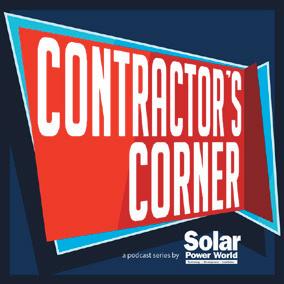
Here we are in wars fighting over oil when we have all of the United States school district roofs, town roofs, city roofs, plus everybody’s houses that could be run on solar.
AceClamp 44
Allied Moulded Products ...................................... 40 Altech Corporation ................................................. 3 AP Systems .............................................................. 4 Aptos 45
ARaymond Industrial North America Inc 69 Aurora 47
Baja Carports 21 BuildRE 19
CAB Solar 58 Canadian Solar 29 Castillo Engineering .............................................. 83 Chem Link ............................................................. 57 Chint ..................................................................... 35 CompanyCam 65 Continental Controls 6 EDF Renewables 79 EKO Instruments 62 Fortress Power 9 Goodwe 51 Growatt 7
Hoymiles Power Electronics Inc. .......................... IBC HyQuest Solutions America /KISTERS Group ........ 74 IHI Terrasun 73 IMT Solar 28 Intellirent 5 Jinko 49, BC K2 Systems 24 Longi 63 M Bar C 52 Mana Monitoring 53
Mango Power ..................................................... 101 Mechatron ............................................................. 11
Morningstar Corporation 30, 31 Nine Fasteners 18
Nor-Cal Controls ES, Inc. 23 Nucor Corporation 1, 77
OMCO Solar 25 Omnidian 12, 13 Preformed Line Products 41 PV Labels IFC Quickbolt .............................................................. 59 RE+ Events ............................................................ 66
Renu Robotics 90 S-5! Attachment Solutions ...................................... 56 Saulsbury .............................................................. 97 Scanifly ................................................................... 8 SMA 95
Snake Tray 20 Solar Mounts LLC 70 SolarPod 6 Sollega 28 Soltec 61 Solv Energy 99 Staubli ................................................................... 93 Sungrow ................................................................ 71 Sunmodo ............................................................... 48 Terrasmart 33 Test Equipment Depot 34 Trina Solar 89 Valmont Solar 85 Voltage, LLC 75 Westex 39 Wyssling Consulting 81 Zekelman Industries .............................................. 87
VP of Sales
Mike Emich 508.446.1823 memich@wtwhmedia.com
Managing Director
Scott McCafferty 310.279.3844 smccafferty@wtwhmedia.com
EVP
Marshall Matheson 805.895.3609 mmatheson@wtwhmedia.com
Associate Publisher
Courtney Nagle cseel@wtwhmedia.com 440.523.1685
Jim Powers 312.925.7793 jpowers@wtwhmedia.com
Ashley N. Burk 737.615.8452 aburk@wtwhmedia.com
Jami Brownlee 224.760.1055 jbrownlee@wtwhmedia.com
FOLLOW THE WHOLE TEAM ON TWITTER! @SOLARPOWERWORLD
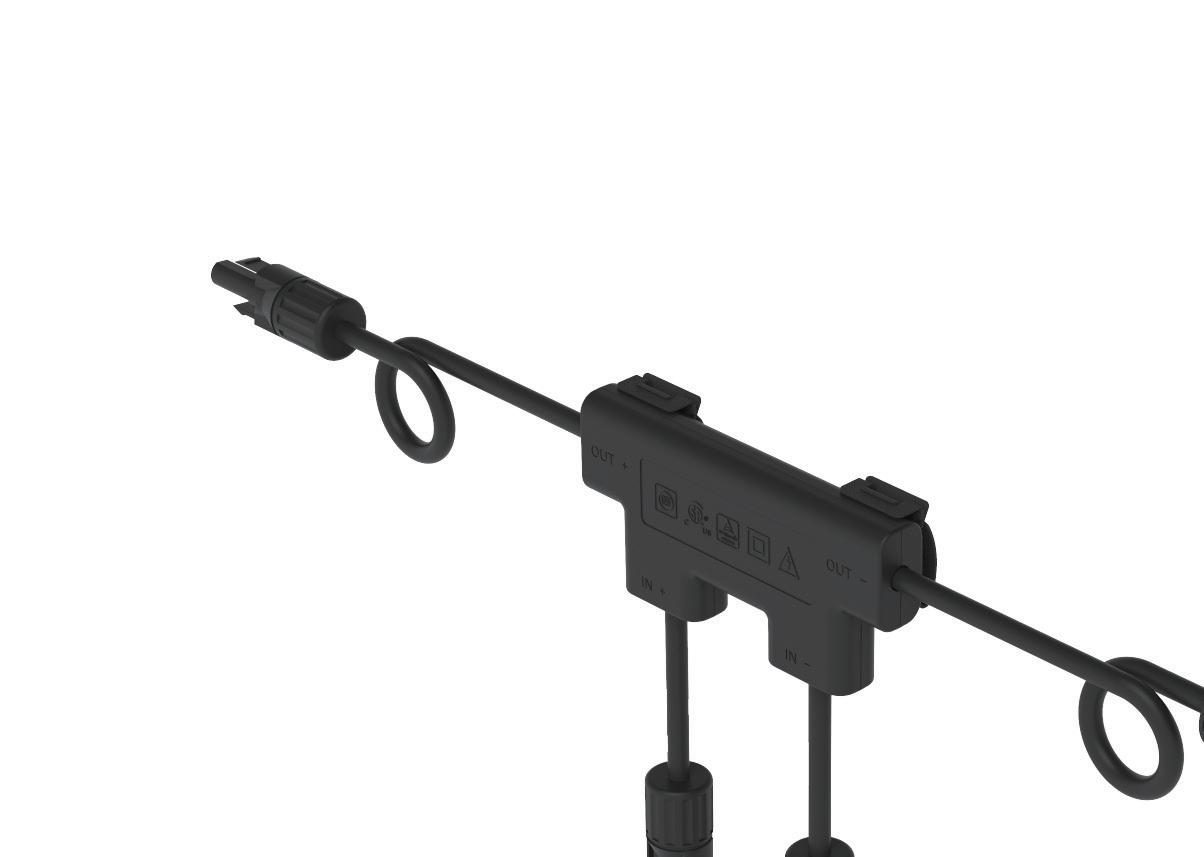







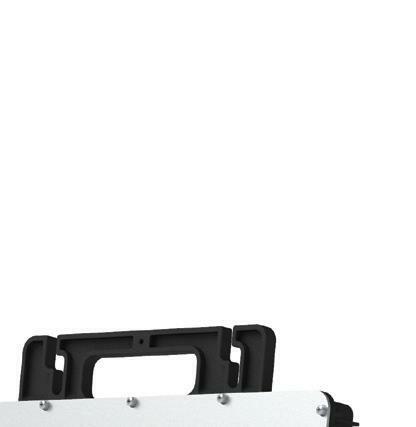


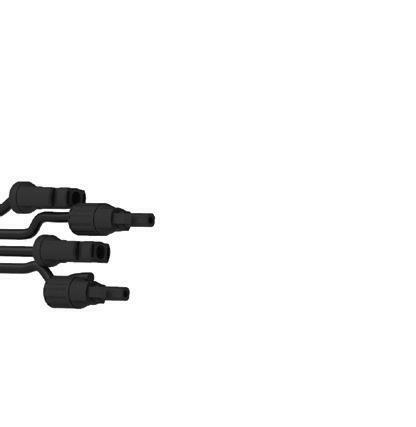
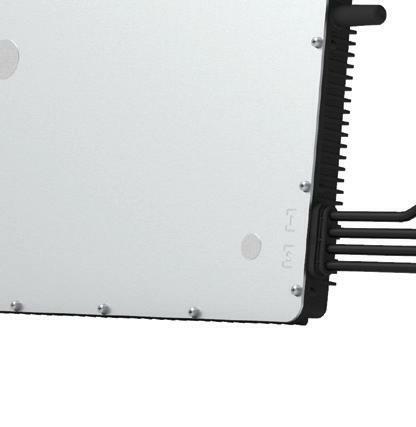








Jinko Solar remains committed to serving our customers and markets. As a result, we’ve produced more than 263 million modules and become the first PV module manufacturer to deploy 100 GW. Here’s how:
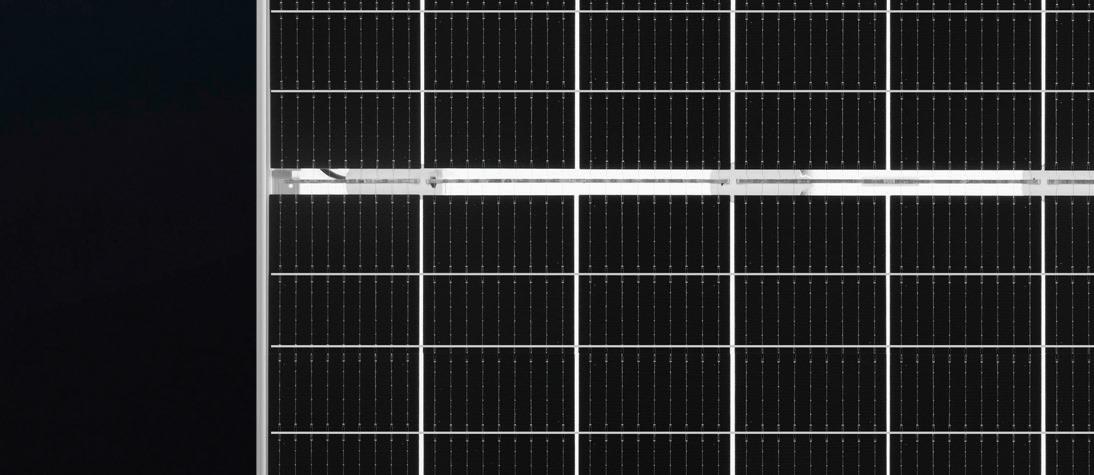

• We’re a stable, global company with local focus. We’re committed to service, on-time delivery, and working side-by-side with every single customer.
• We don’t cut corners. We build with high quality components to make the industry’s most reliable modules.
• By investing heavily in R&D, we’re able to provide best-in-class solar technology.
• We’re committed to serving global and US markets (more than 3,000 customers in 160 countries) through our global supply chain.
We couldn’t have done it without you!

Learn more at www.JinkoSolar.us/100GW
Placed end-to-end, Jinko modules would circle the globe 12 times! x12